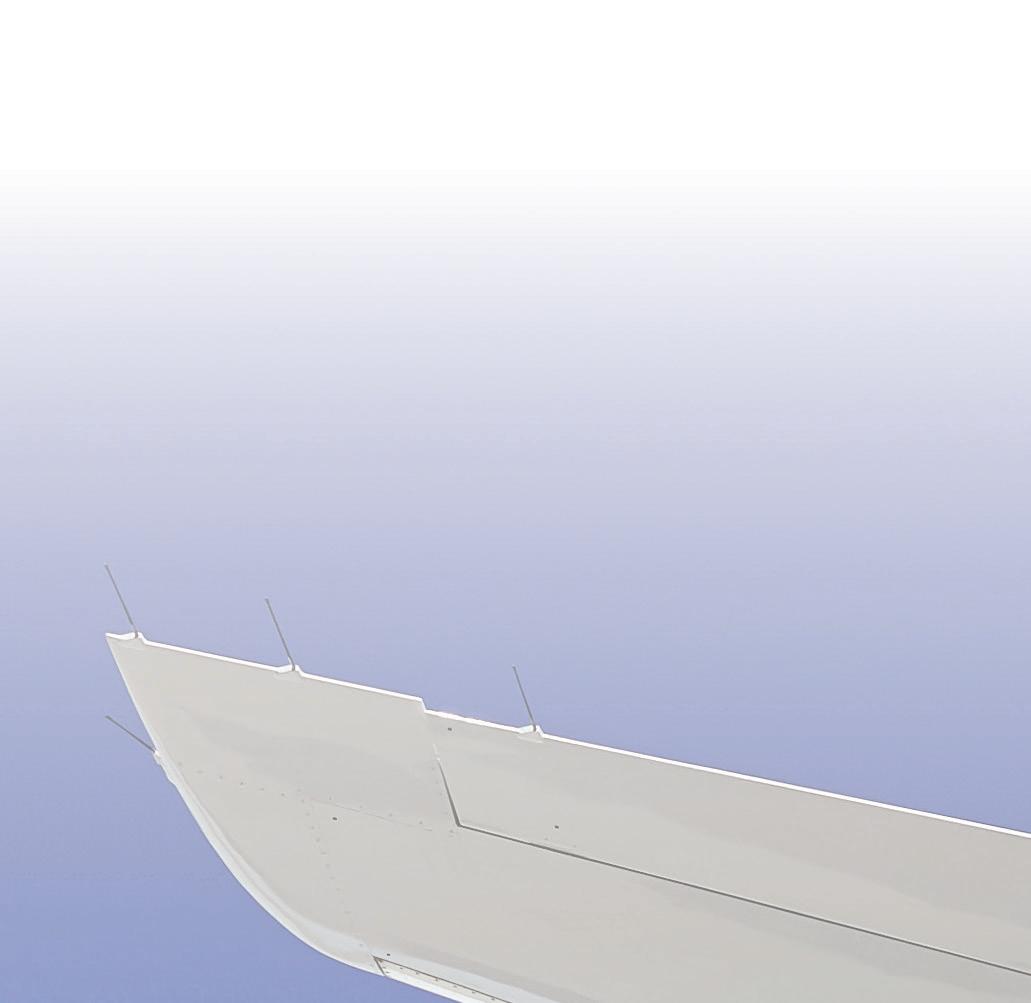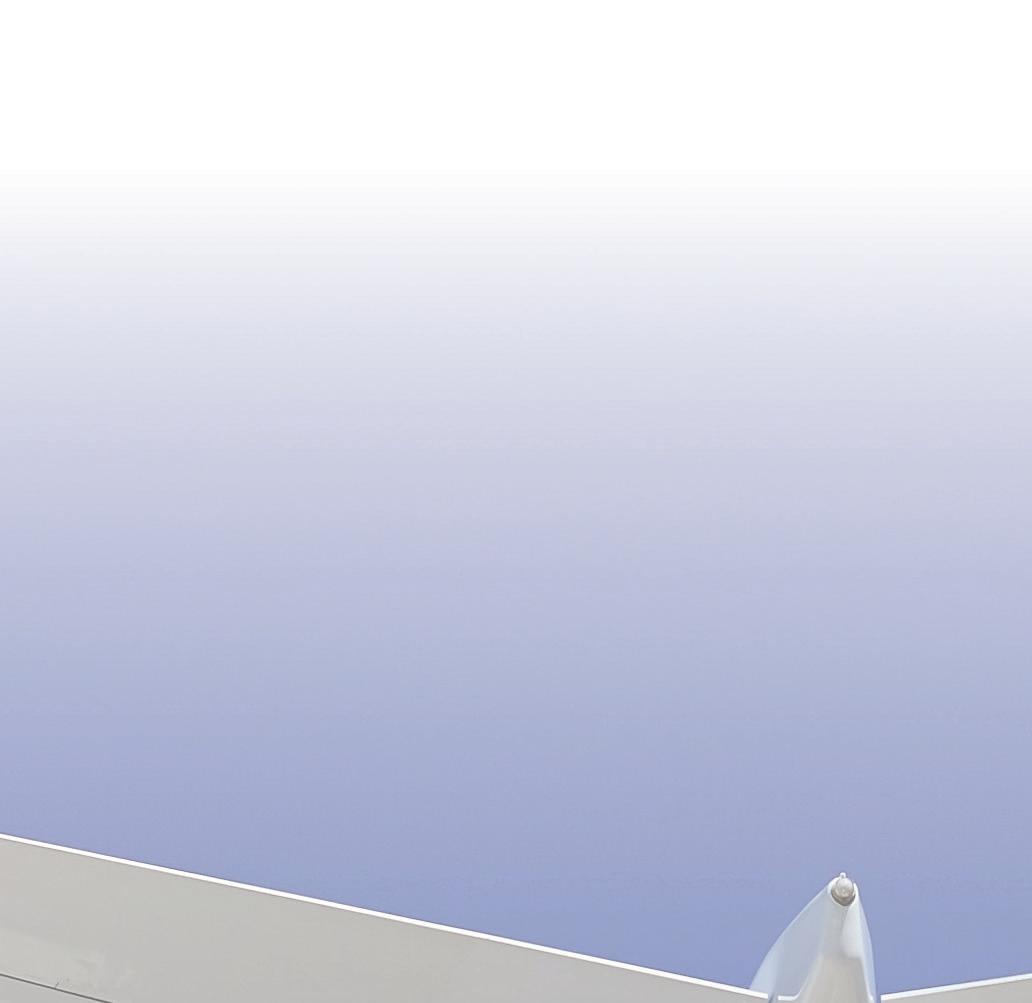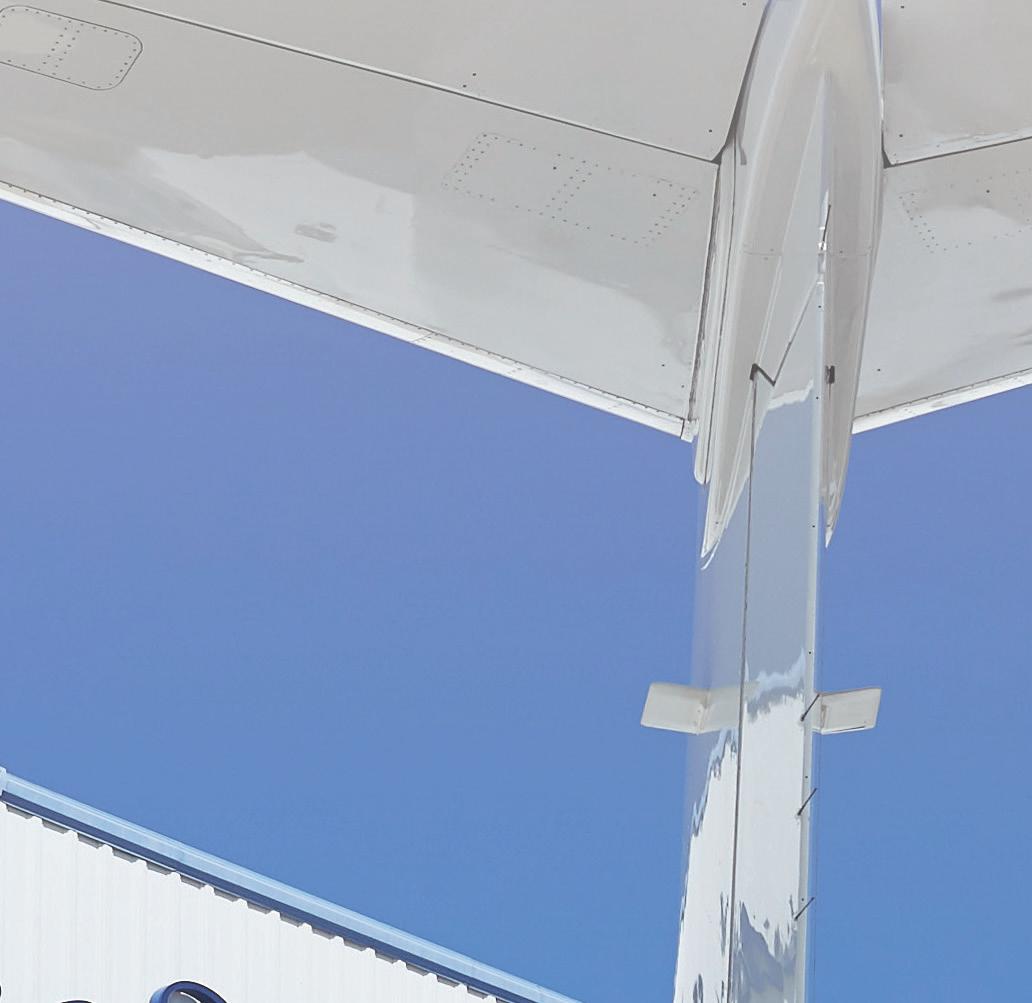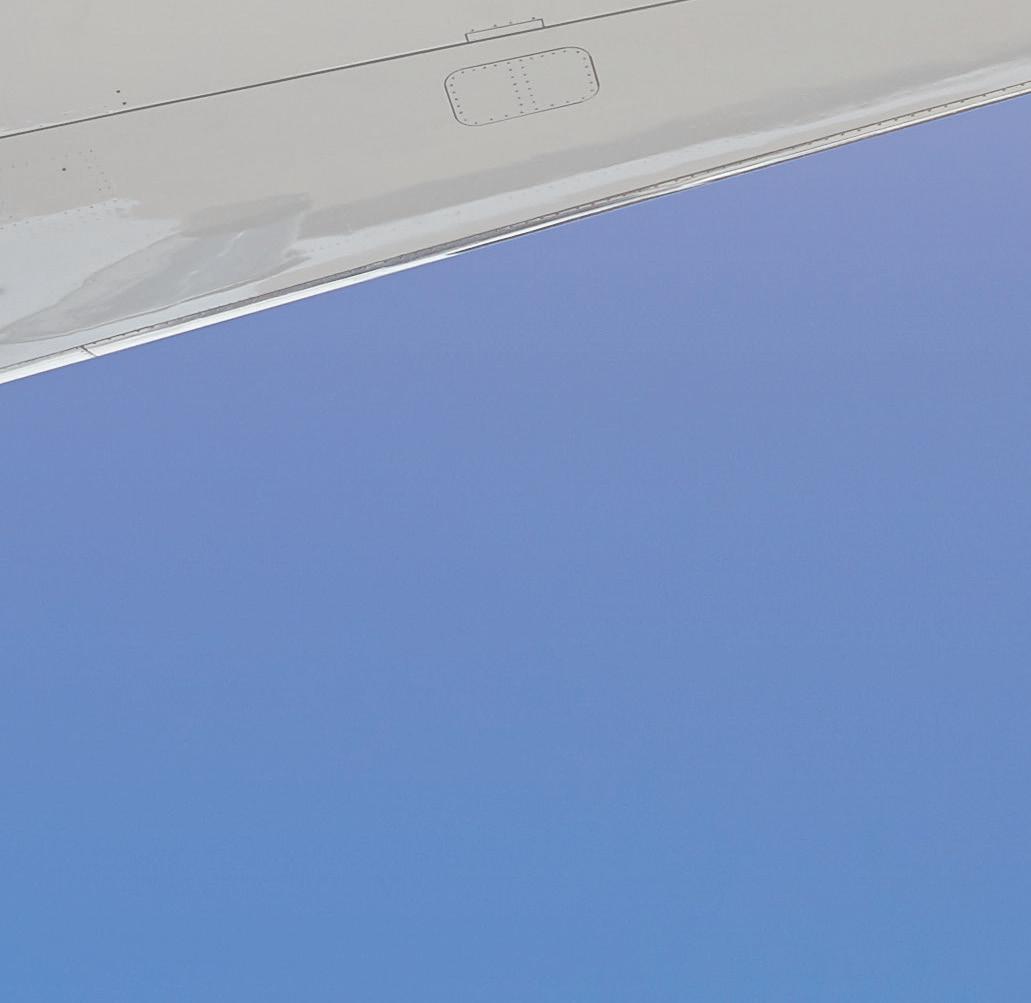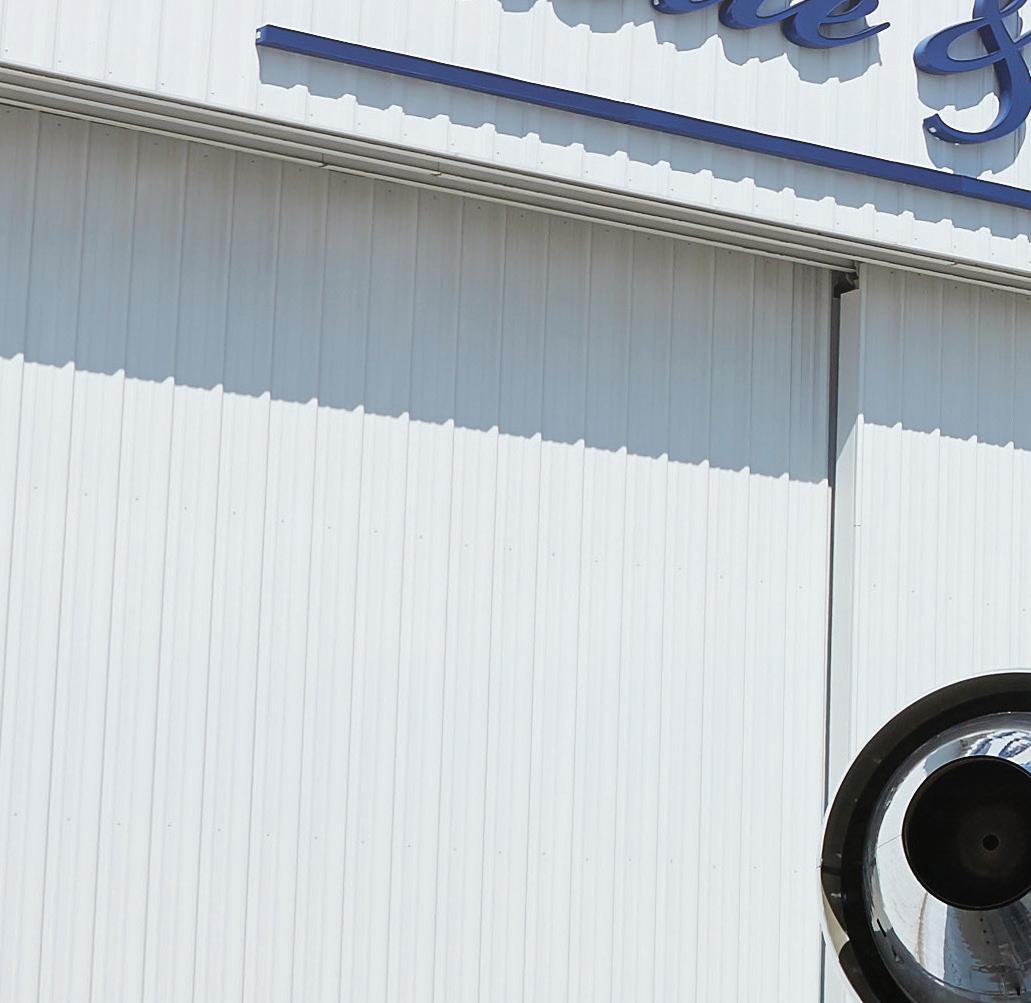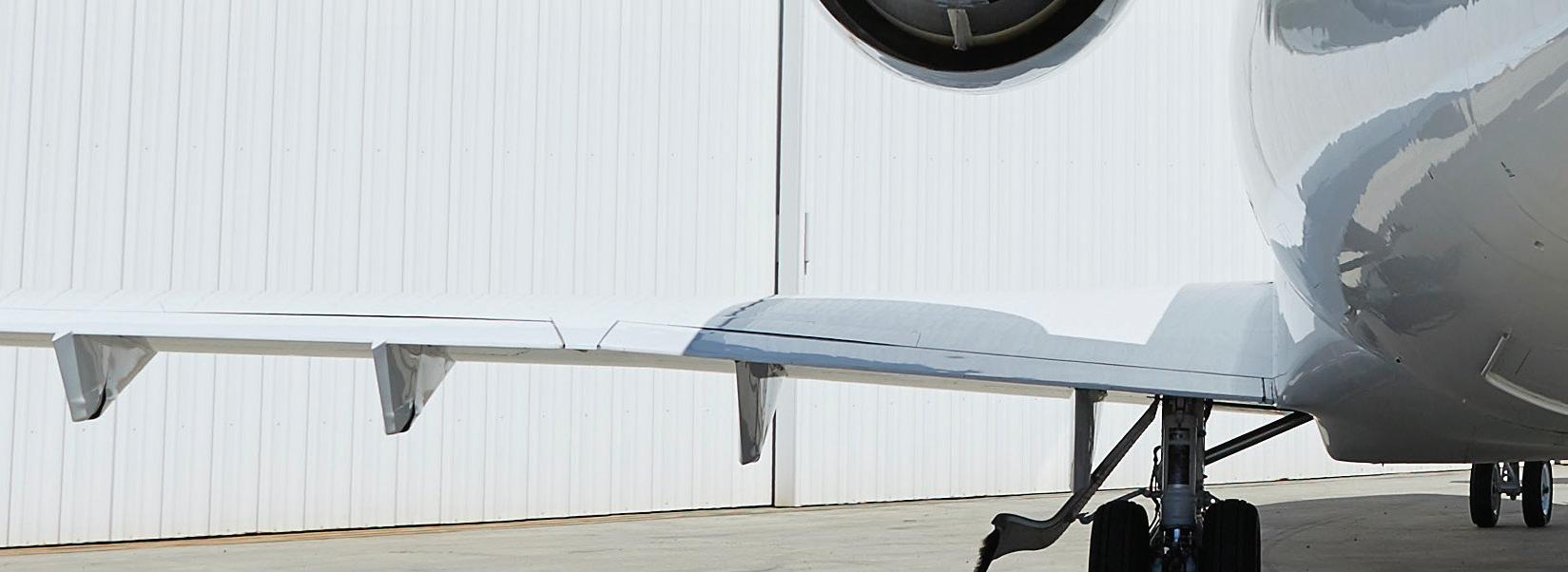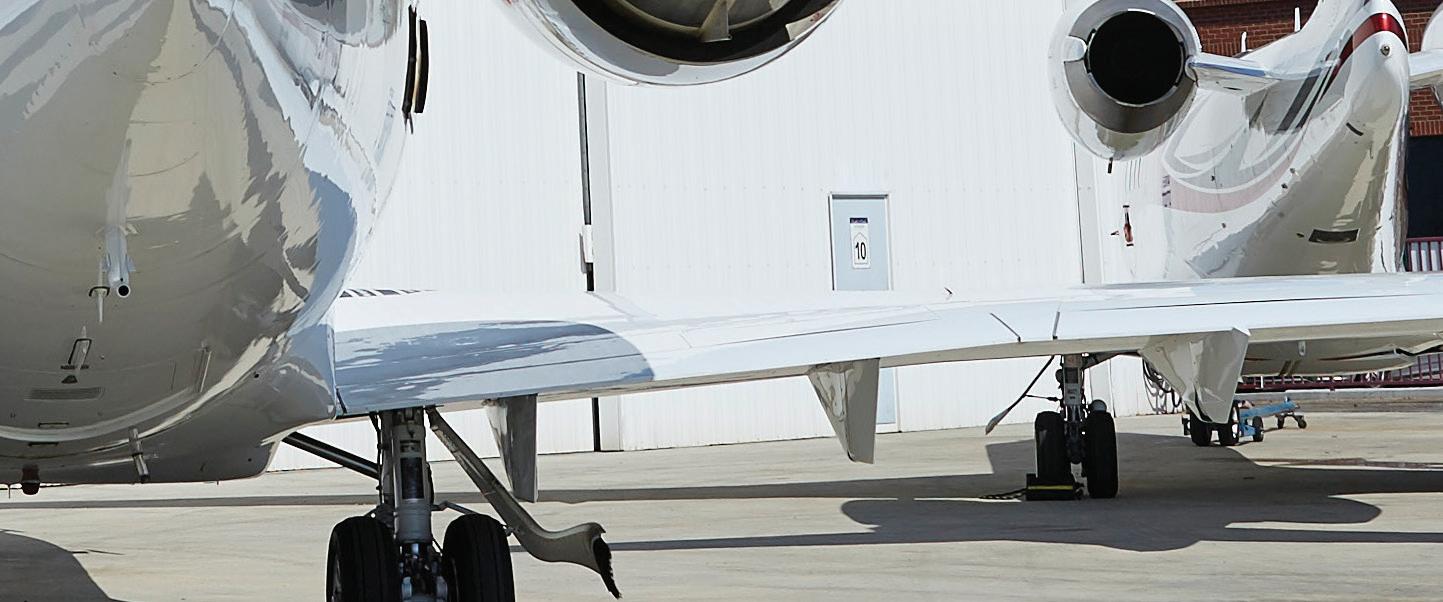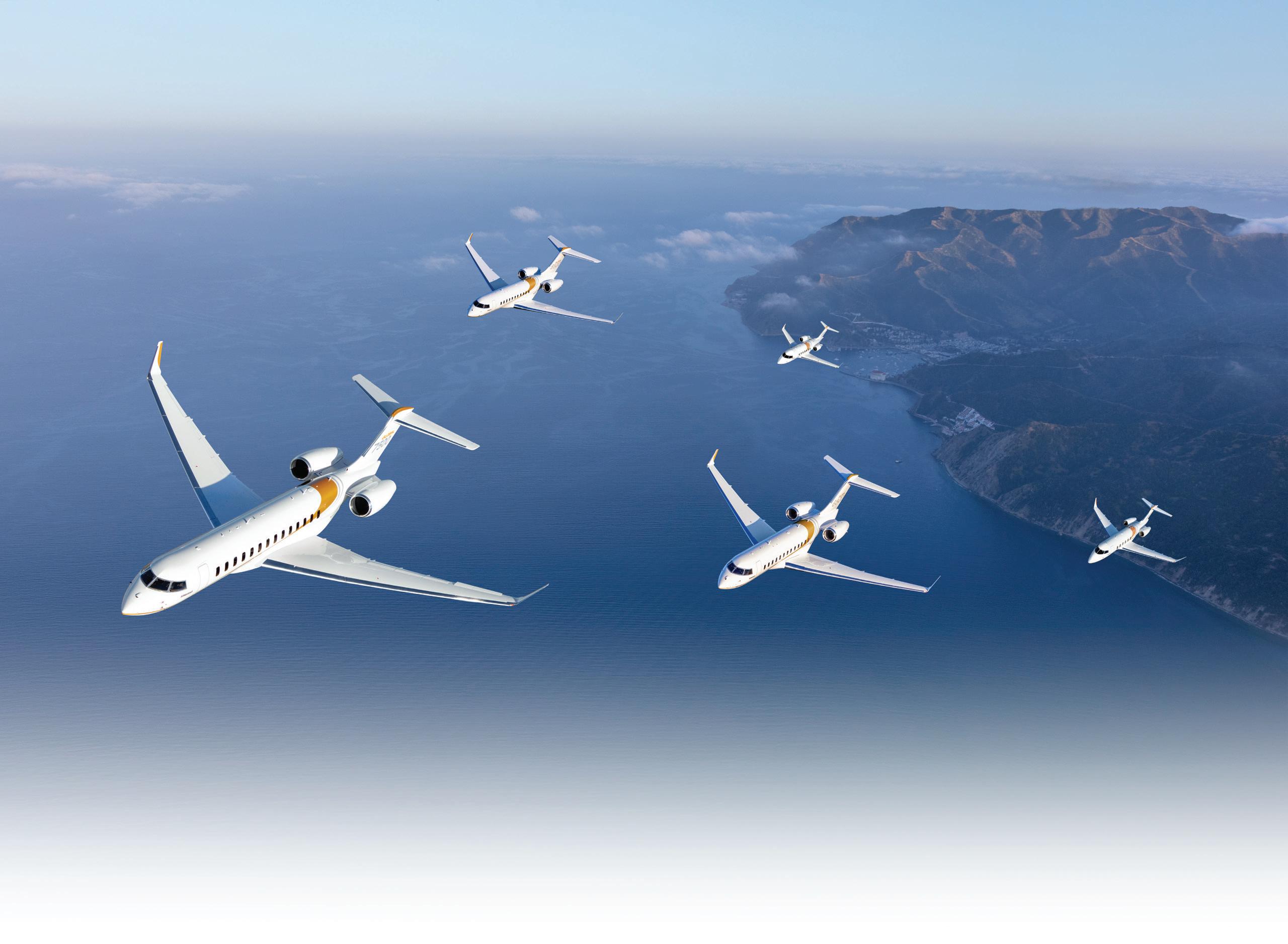Aviation







 ROBERT VEGA CHRIS MOORE
ROBERT VEGA CHRIS MOORE












 Raja
Raja









 ROBERT VEGA CHRIS MOORE
ROBERT VEGA CHRIS MOORE












 Raja
Raja


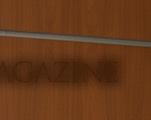
despite global supply chain problems





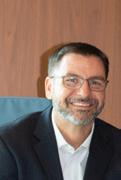





By now everyone is familiar with the way in which the pandemic has brought a whole new wave of first-time private jet users to business aviation. Moreover, despite the horrors of the Russian invasion of Ukraine, so far at least, the impact on business aviation has been minimal.
Demand for charter and flight hours in the US, and even in Europe, continues to rise. However, there is no doubt that the war will have far-reaching effects well beyond the borders of Russia and Ukraine. Already the price of jet fuel is following the soaring price of petrol and diesel at the pumps.
One effect we are already seeing is that along with the continuing strong demand for charter, for the first time in probably four to five decades, charter prices are ratcheting upwards at a surprising pace. From one perspective, this is great for operators and aircraft management companies. Owners are finally seeing decent returns from chartering out their aircraft.
Barton
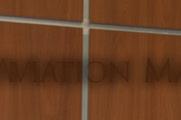
From another perspective, however, as Priester Aviation’s Andy Priester makes clear in this issue, one of the effects of the sudden sharp rise in charter prices is that customers are not as happy as they might be. They are finding that the same charter flight that they took two months ago, is now costing anything from 50% to 100% more.

Business aviation is going to have to do a lot of explaining and educating of charter customers going forward. Customers need to see that these price rises are a response to real circumstances and are not about the industry getting greedy.


The conflict is also already adding to the snarl-ups that have been affecting the global supply chain since the start of the pandemic. Again, the industry will need to do its best to minimise any inconvenience to customers.
Stanbury
With EBACE approaching, here at BAM, we are keeping our fingers crossed that no strange COVID variants appear from left field to cast a shadow over one of the biggest events on the business aviation calendar. We really enjoyed the opportunity to meet so many of our supporters and friends at CJI in London, and we are looking forward eagerly to EBACE. We’ll see you all there!

innovation
Luigi Celmi, CEO of IDAIR, on the company’s strategy in 2022 and beyond
Sergio Aguirre, president and COO, Dave Glenn, SVP customer operations, and Mike Syverson, SVP operations, on Gogo’s 5G service
Roger Buenter, CEO of Aersolution Interior, on the company’s philosophy of continuous innovation
Peter Landquist, VP Sales and Marketing at CTT Systems, on keeping aircraft from getting too wet or too dry
Katharina List-Nagl, CEO of F/LIST, on the company’s rise to the top rank of interior design and materials innovation
Derek Thomson, Commercial Director and Accountable Manager at Air Charter Scotland, on the company’s fleet of 11 business jets
Youssef Mouallem, the Executive Vice President of XO, on the company’s ground-breaking technology
Chris Moore, President, Satcom
Direct, on the progress of SD’s Plane Simple TM network strategy
Clay Healey, owner of AIC Title Service, on aviation transactions through and after the pandemic
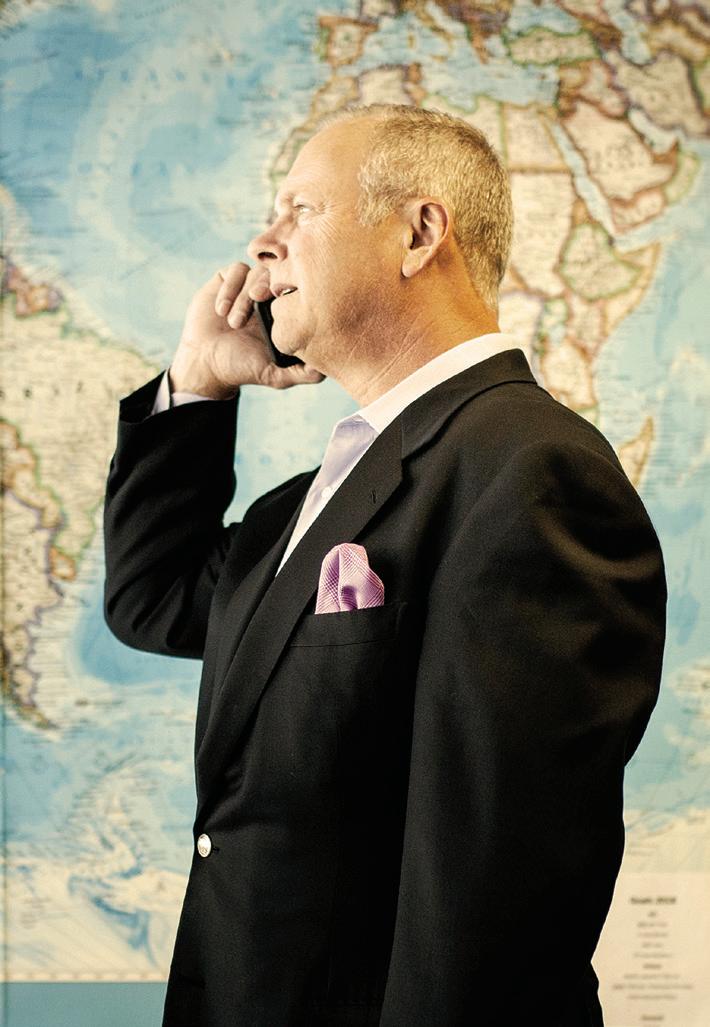
Andy Priester, Chairman and CEO, Priester Aviation, on the company’s plans and future vision
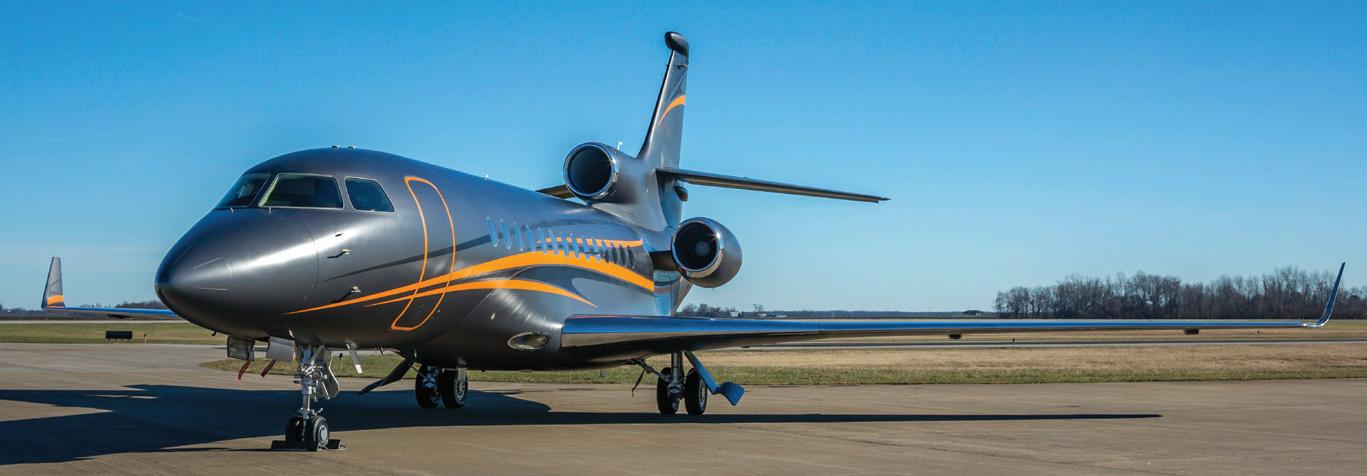
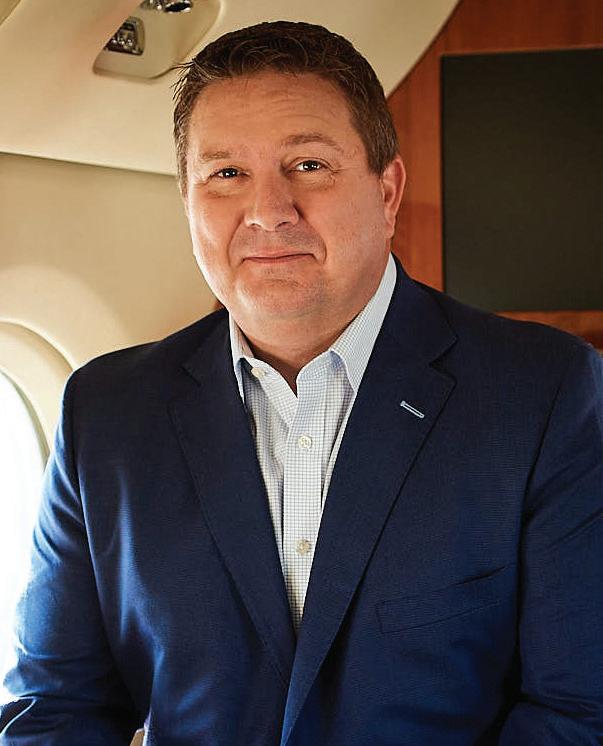
Air bp’s Andreea Moyes, global aviation sustainability director, on the company’s sustainability initiatives

Andrew Tarry, Head of Sales at JetMS Completions, London, on the company acquiring RAS Completions and RAS Interiors
Christian Schusser, CEO, Q.C.M. design, and Erika Guillaume, Compliance Verification Engineer, Cabin Safety, on cabin safety design
Emilie Harbour, Corporate Aircraft Lead Designer, Interior & Paint, at West Star Aviation, and Julie Voisin, Aerospace Coatings Global Marketing Manager at The Sherwin-Williams Company, on a unique paint job
Richard Smith, Director-General of the Civil Aviation Authority of the Cayman Islands (CAACI), on the importance of recent developments
Jay McGrath, CEO, Spectrum Networks, on the revolutionary new communications system, Laser based LiFi and its implications for business aviation
CJI London reviewed by Anthony Harrington








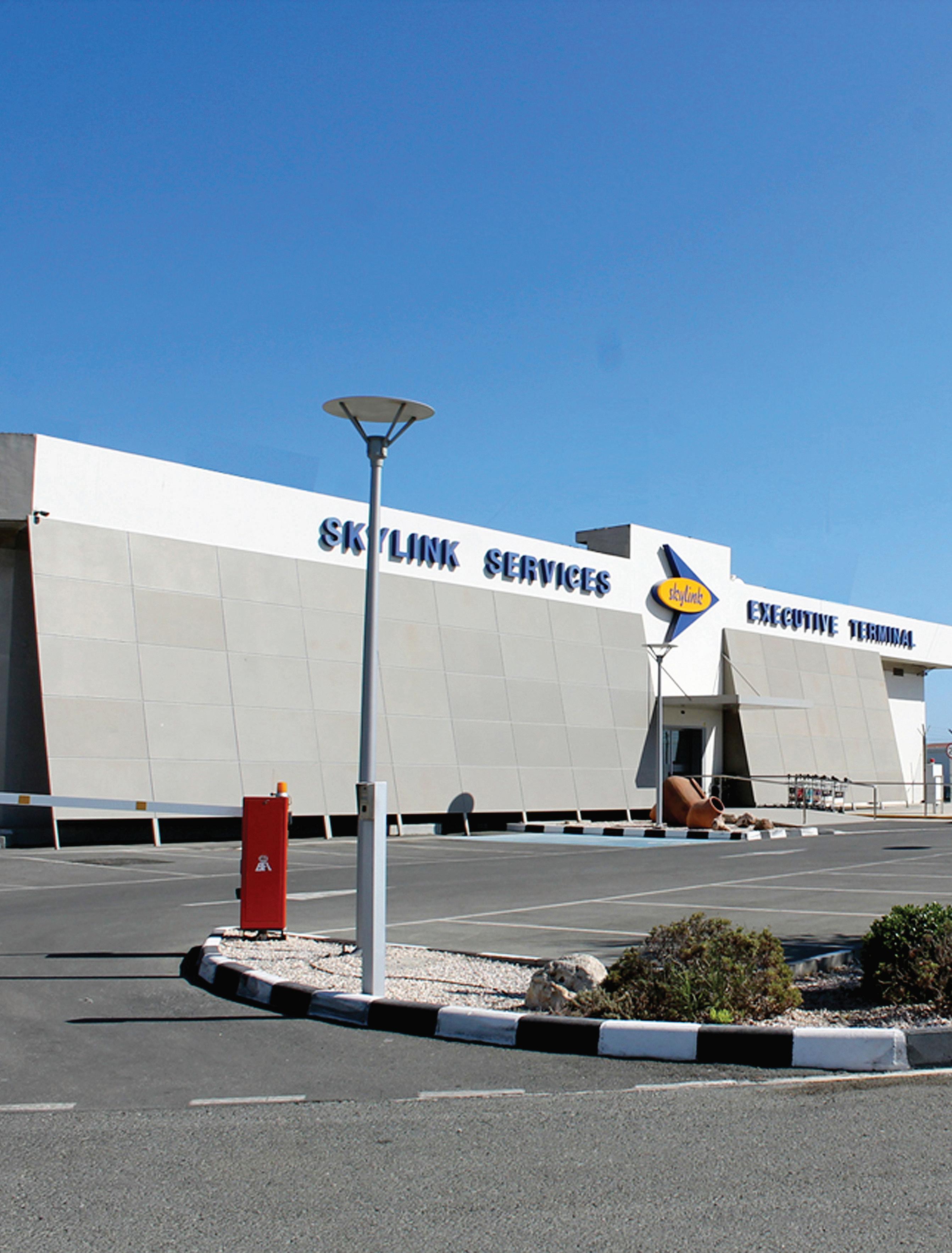








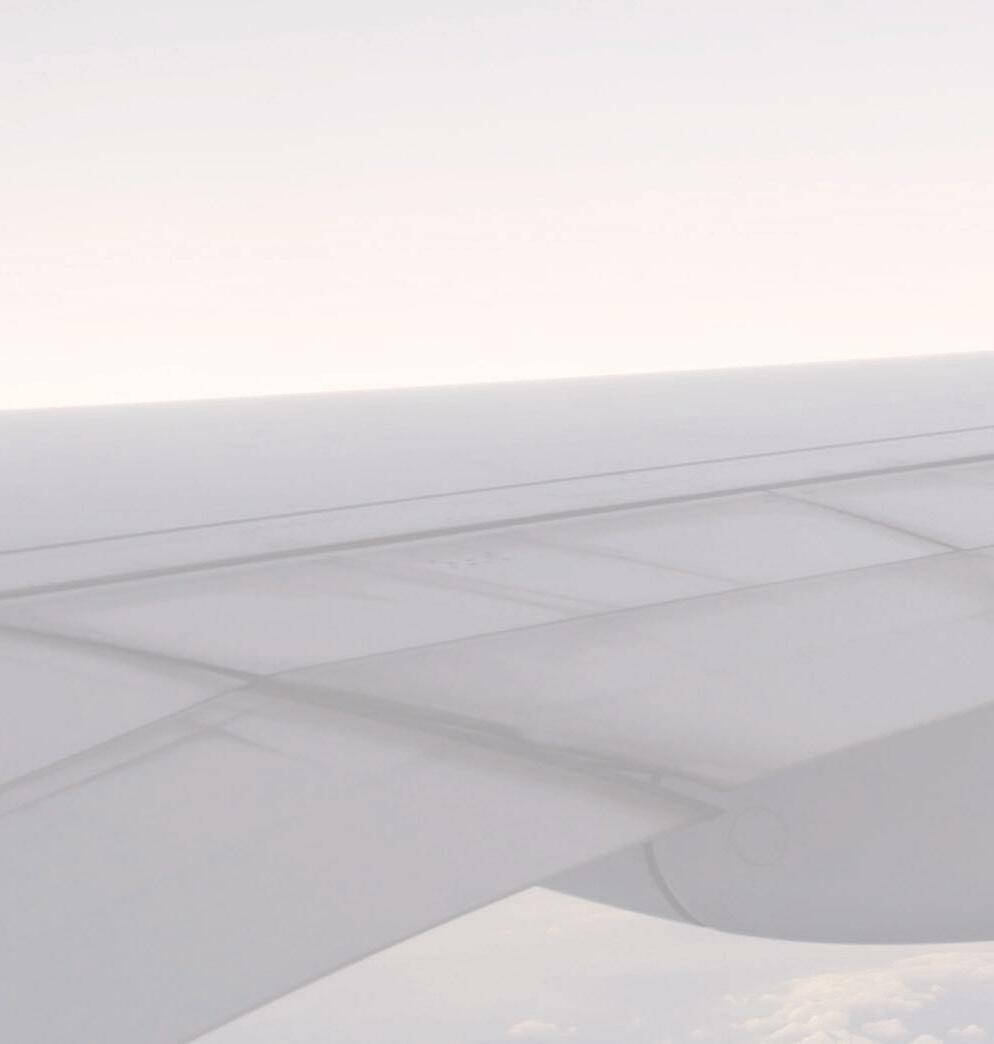


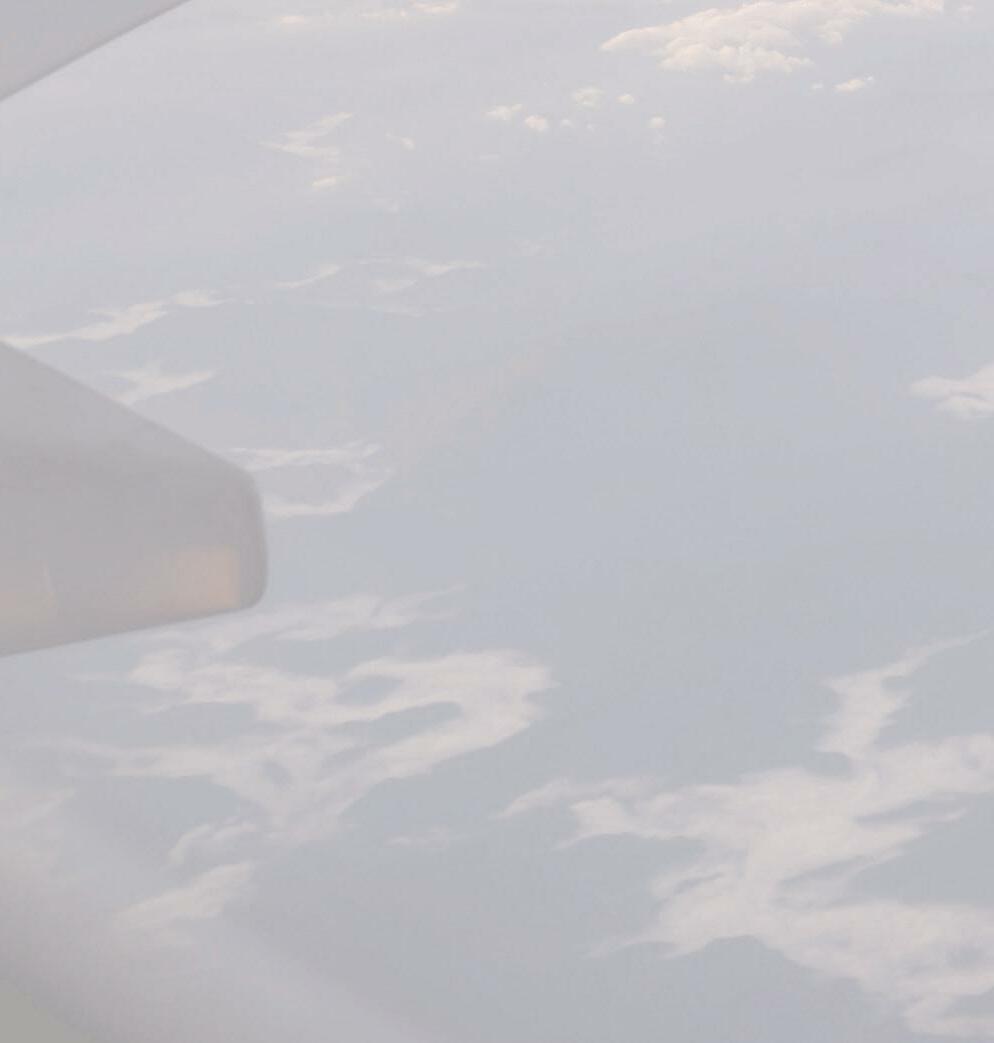



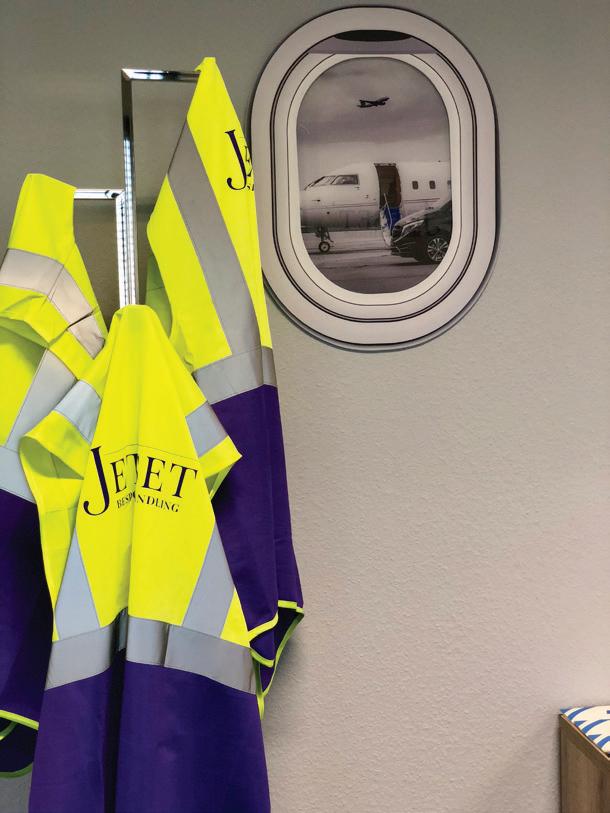
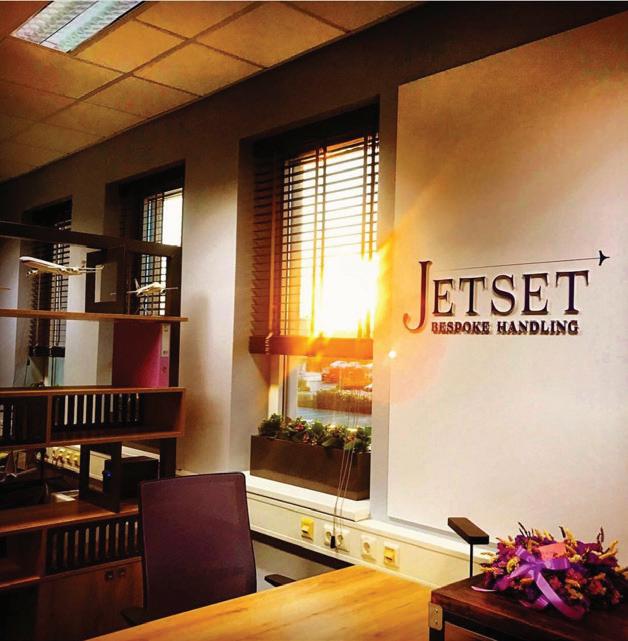

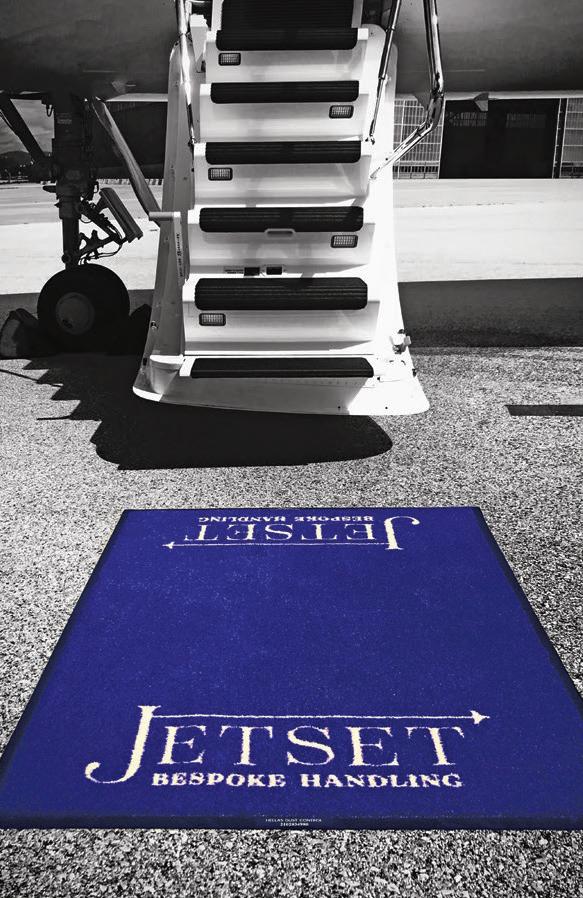









































































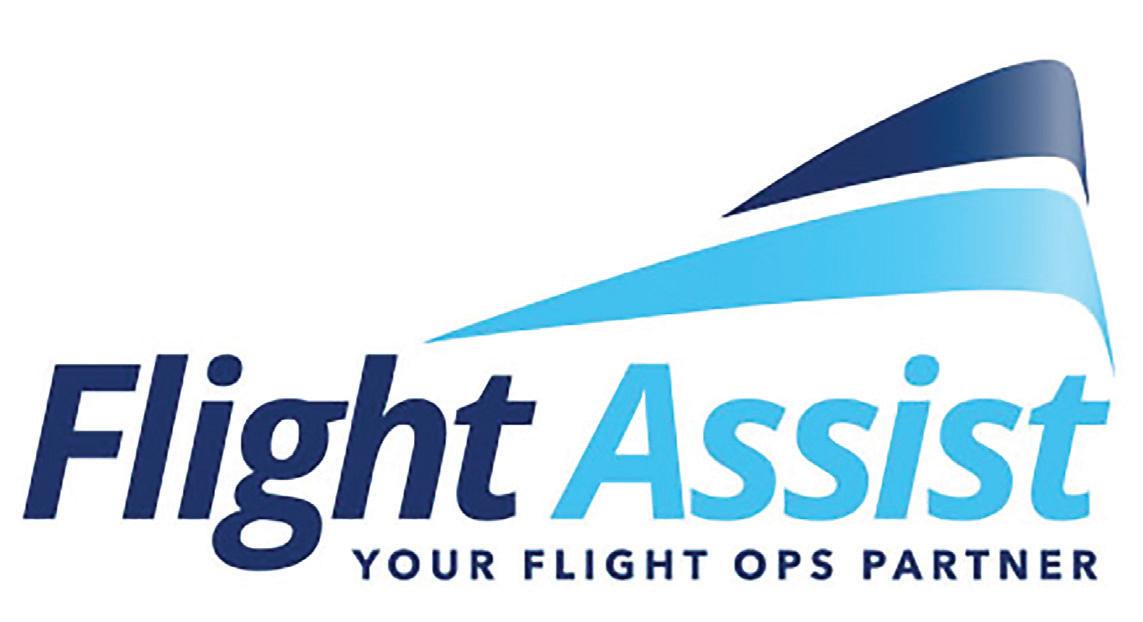














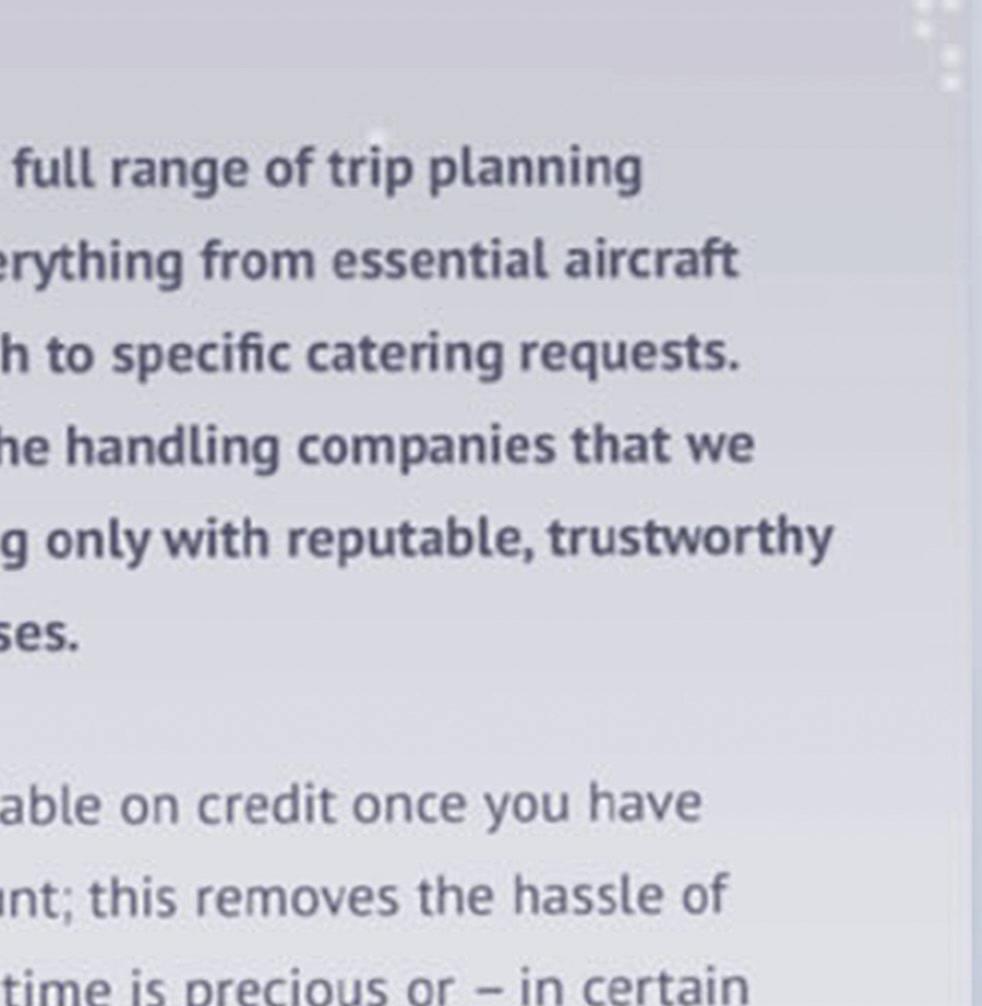







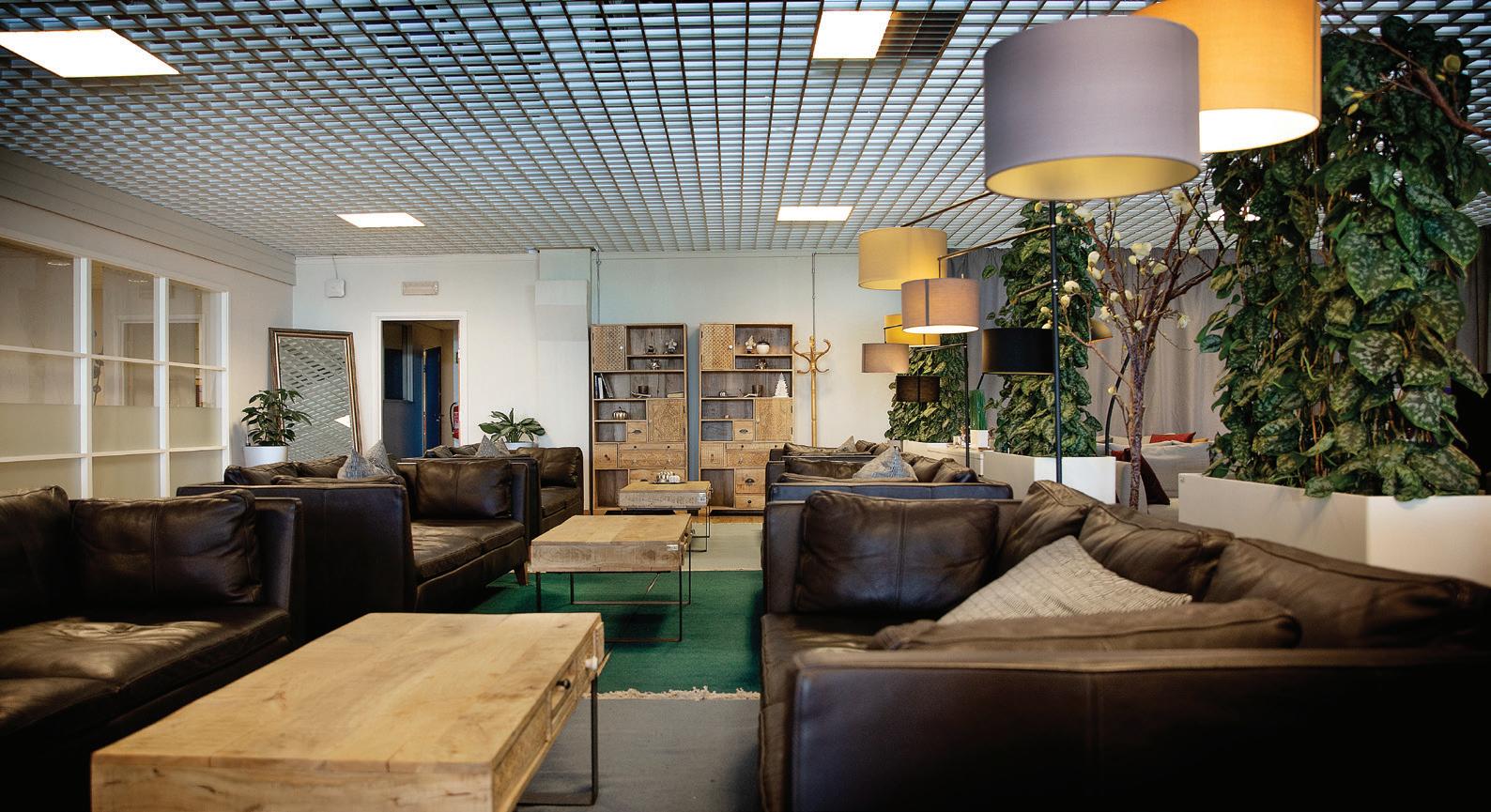
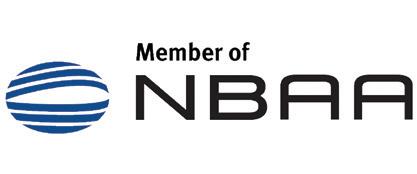

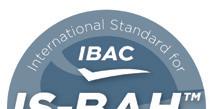

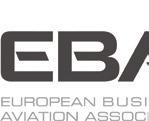









First

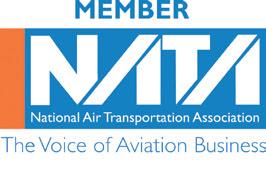



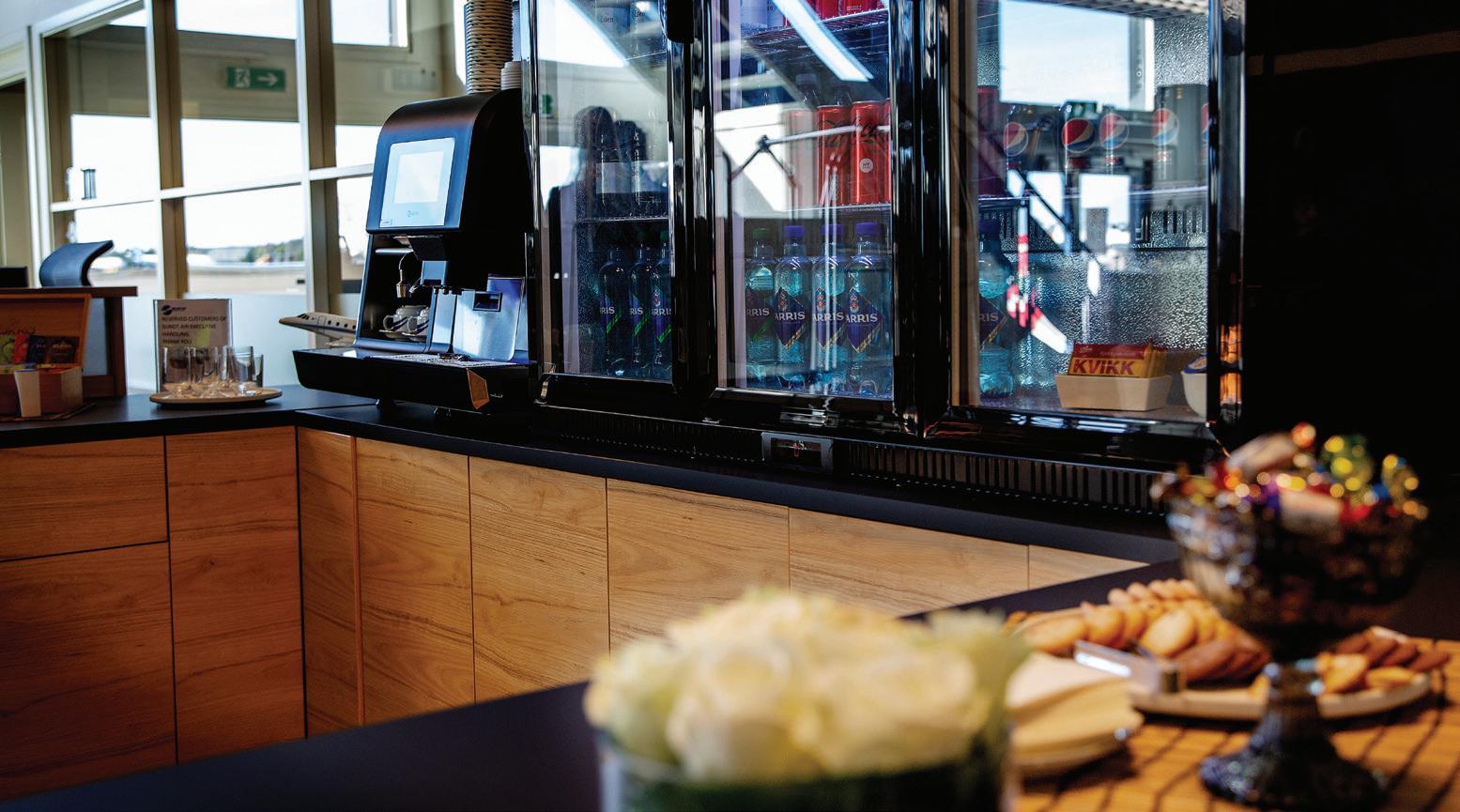









AH: Let’s start with COVID, Chris. Are we finally seeing its impact fading?
CM: Well, we at SD have come through the last two COVID-plagued years pretty well and things are really looking up. For example, on a single day on 27 February, we saw nearly a terabyte of data flow through our network. We are now at pre-pandemic levels as far as business aviation flights and data throughput are concerned, so I’m hopeful that the worst is behind us as far as COVID is concerned.
AH: Are you seeing different patterns of usage for corporate versus HNWI flights?
CM: We have an excellent view of the data usage profiles on aircraft using our systems. With corporate flights, we are seeing a level of streaming that is mostly video conferencing using MS Teams and other systems. People got used to communicating this way through COVID and they want to keep doing it when they are flying.
I would say about 75% of the data usage we are seeing across all business aviation flights these days stems from video conferencing. The pandemic really drove usage in this space and it is no surprise to see those habits and requirements continuing during flights.
AH: In February, SD confirmed DO 160 approval for its Plane Simple™ advanced tail-mounted terminal for Intelsat’s FlexExec. What can you tell us about that?




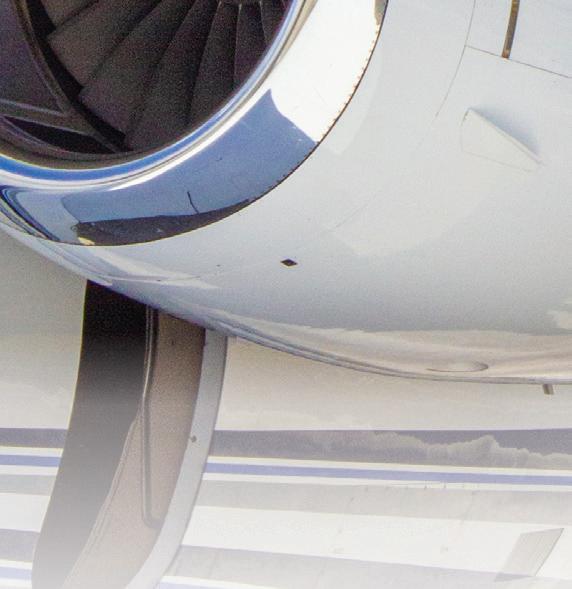

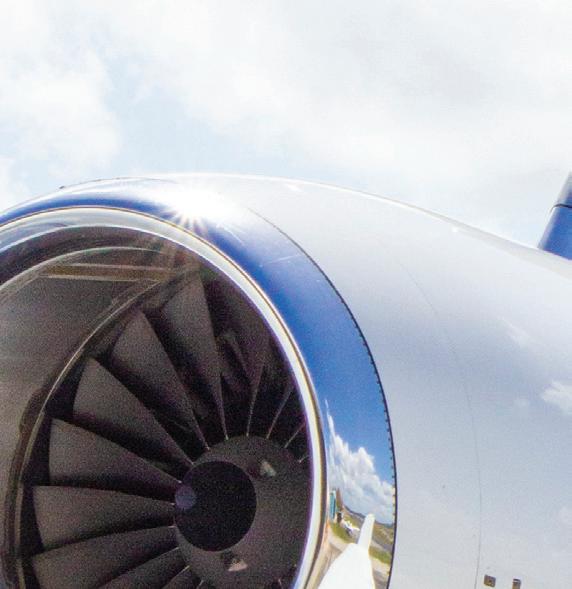
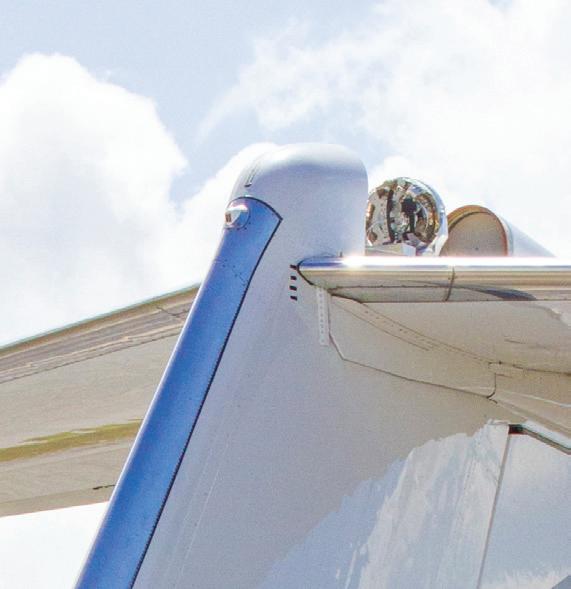
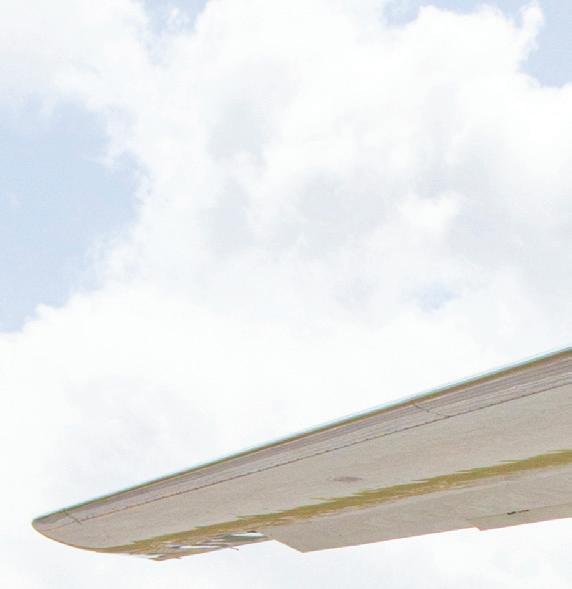
CM: Our relationship with Intelsat continues to go from strength to strength. We announced the confirmation of our DO 160 approval at our annual “Connecting with Customers” (CwC) 2022 event in Orlando.
We’ve had over 250 trial flight hours with the SD Plane Simple terminal. The FAA has conducted extensive environmental testing that includes heat, weight, weather and vibration testing and has officially confirmed that the terminal is approved for commercial use. The first Supplemental Type Certificates, (STC) are anticipated to be confirmed by the end of April.
Antenna installedWe’re really pleased to be able to offer Intelsat’s global, multilayered, high-throughput satellite network to our customers. Combined with our Plane Simple antenna system, it enables all the inflight connectivity that customers want. This includes video conferencing, streaming and uninterrupted access to cloud-based applications.

AH: What do you think of Air-to-Ground (AtG) systems like Gogo and SmartSky? Are they competition for SD?
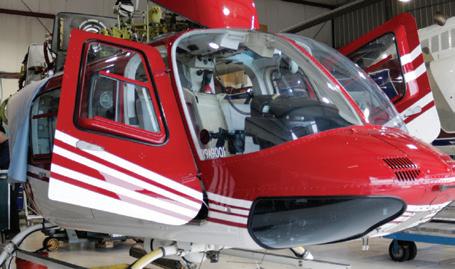




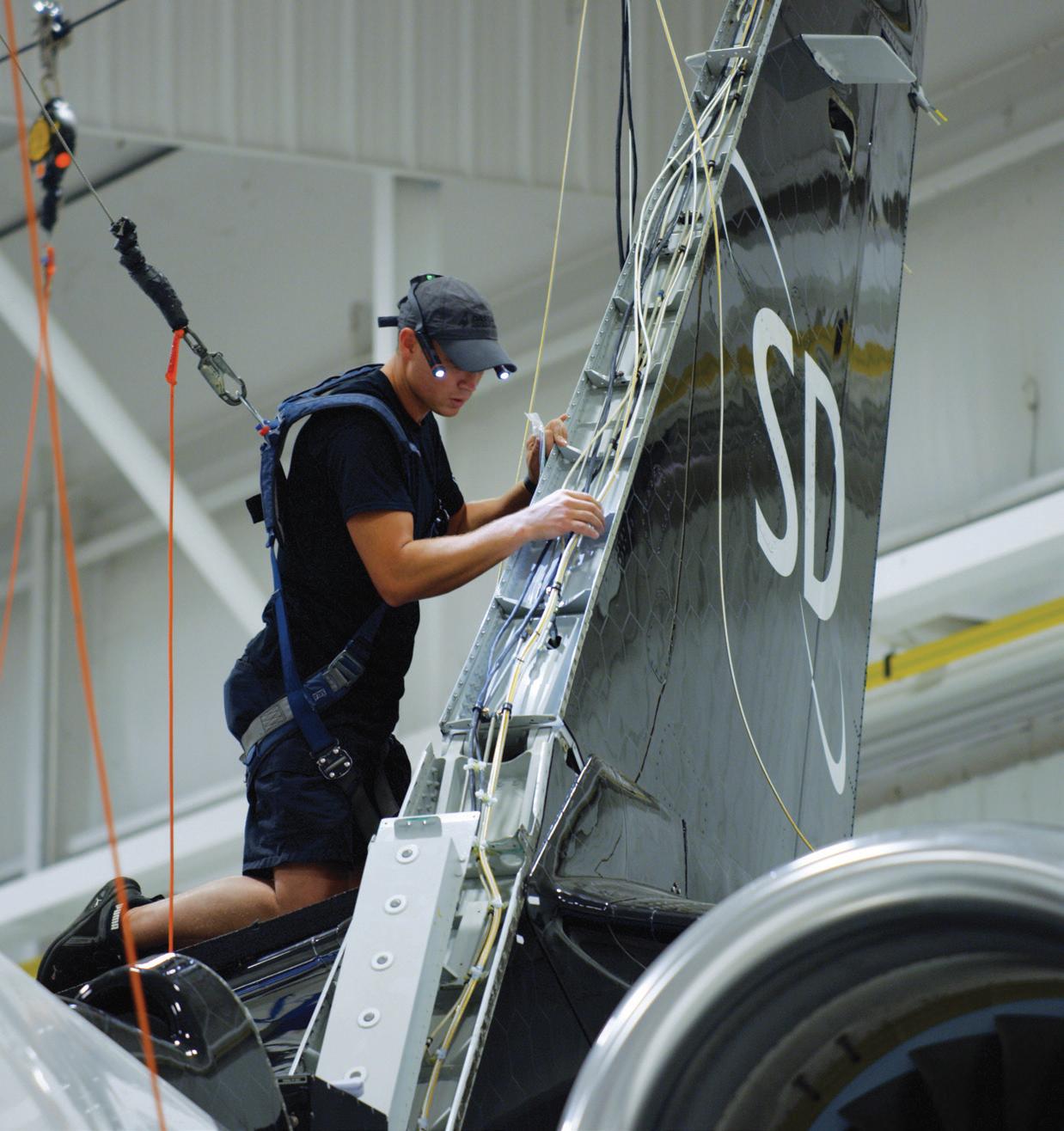



CM: There’s no doubt that Gogo offers services that we do not. They have done a good job and they continue to
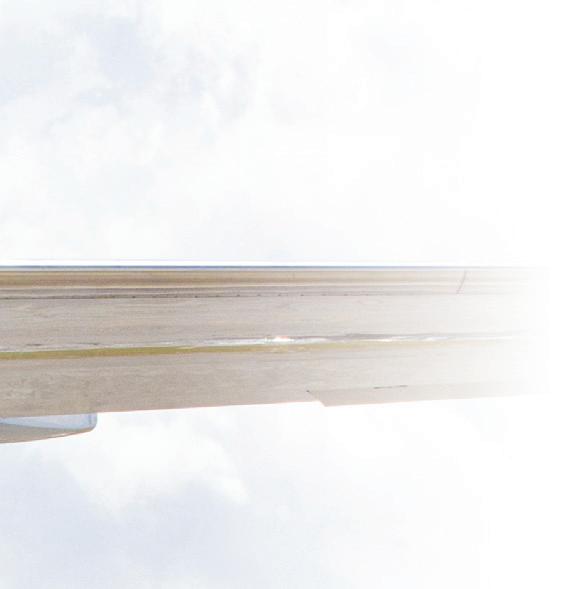 Preparing for the SD Plane Simple™ Ku-band tail mount antenna install
Preparing for the SD Plane Simple™ Ku-band tail mount antenna install

focus on their AtG network. From our long-term strategy though, it is not a good fit. Satellite providers are just going to continue to put more and more pressure on AtG networks.
In general terms, people are looking for 20 to 25 Mb, minimum, as far as connectivity to the aircraft goes. We just do not see that there is any space for AtG to offer services at that level.
We are developing our own flat panel, fuselage mounted, electronically steered array antenna working with LEO constellations. That technology, being global, will be far superior to AtG. Inmarsat and Iridium are very important partners for us, and we already represent a significant amount of their aviation business.
Once we bring our flat-panel technology to market, it will support high-speed connectivity for aircraft of Embraer Phenom 300 size, and deliver 40Mb and more to the aircraft. By 2025 we will be in a totally different technology realm. We’re going to be seeing eVTOLs and urban lift mobility services springing up everywhere.
It does not take much foresight to see that if the bulk of these new eVTOLs are linked to AtG services, the cell usage is going to get really crammed. Our flat panel technology linked to satellite services doesn’t have cell density problems. Satellite providers can add massive capacity and their networks are inherently more flexible. So, overall, in our view, if you are comparing AtG and satellite services, the correct play for business aviation has to be satellite.
AtG has a price advantage going for it, but low fees are not necessarily an advantage in this space. People fly in private jets because their time is precious. When they fly, they want great connectivity, all the time, no matter where they are travelling. AtG is unable to support that growing need.
AH: You recently had a big announcement with respect to Inmarsat. How significant was that?
CM: It was a great milestone for us and represents the next phase of our Plane Simple antenna series development. The prototype unit of our Plane Simple Ka-band Antenna System, which is scheduled for completion later this year connected with Inmarsat’s Jet ConneX airtime service in midFebruary. The next steps will be design verification, testing and certification. We expect to see the system introduced into commercial service in 2023.
This system is designed to meet both the current and longterm connectivity needs of our business aviation customers, particularly in the super-mid to large-size jets. It will use Inmarsat’s current and upcoming Ka-band satellites.
Just like the Ku-band terminal, the modern lightweight design consists of two, line-replaceable units and has simplified wiring which enables a rapid install and makes for easier maintenance. We’ve designed it so that aircraft supporting either variant can easily transition between the two bands to always meet the operators’ mission needs.
We’ve worked very closely with Inmarsat throughout the development process, from the initial design concept right through to this prototype. The result will be a simple, costeffective and future-proof solution for our joint customers.
We were pleased that at our CwC event, Kai Tang, Inmarsat’s Head of Business Aviation, emphasised the key role SD has played since Jet ConneX was first launched five years ago. He emphasised that we will be continuing to work closely together as Inmarsat introduces its game-changing new capabilities.
These include the launch of six further satellites, four in geostationary orbits, and two in highly elliptical orbits. These will enable the world’s only commercial mobile broadband services for aircraft flying in higher elevations and across the Arctic.




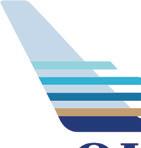





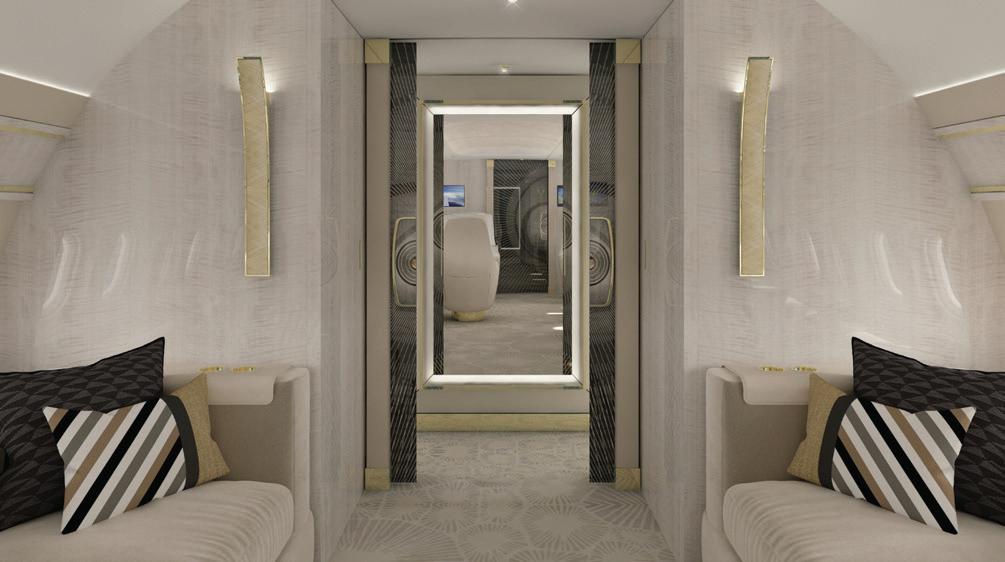
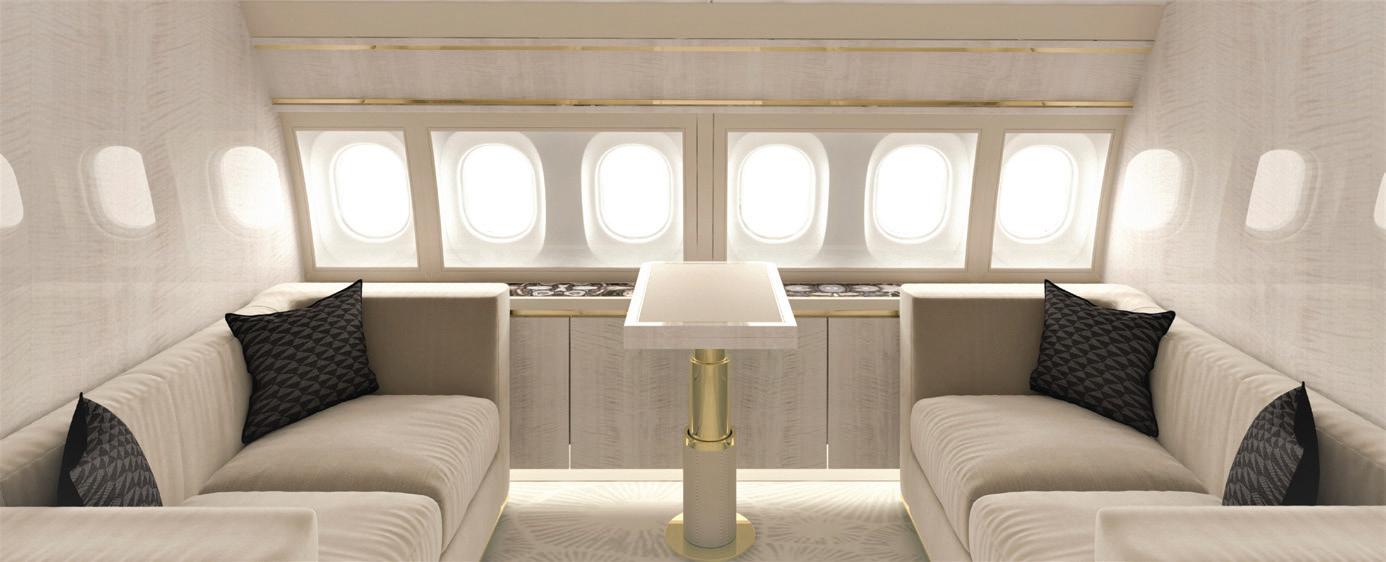
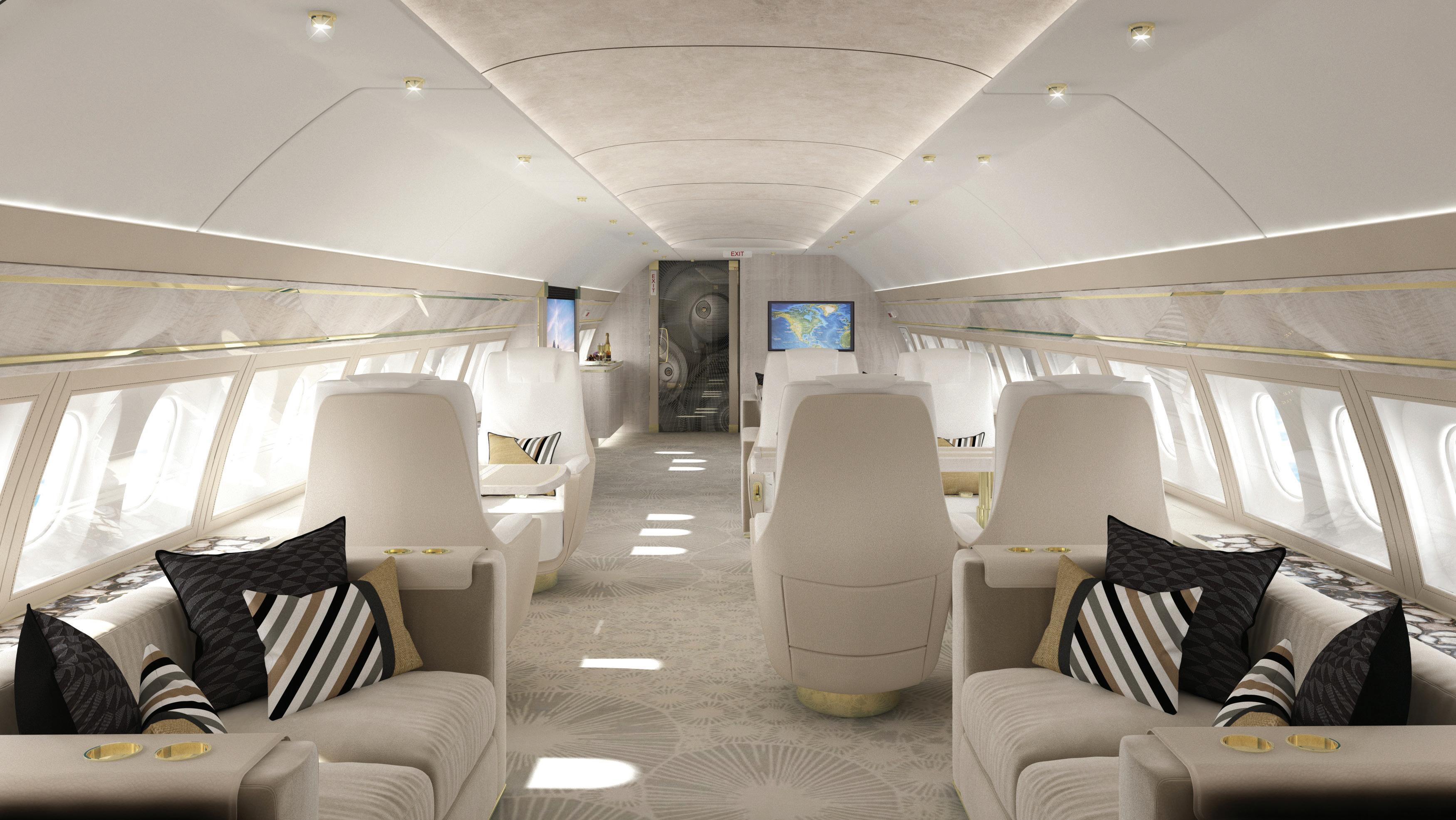
With the client's sense of style and vision

and artistic
and required
 Rendering Courtesy of Massari Design
Rendering Courtesy of Massari Design
Being one step closer to securing type approval for use on the Inmarsat network is huge for SD. We are celebrating twenty-five years of business this year which simultaneously means we’re celebrating the 25th anniversary of our successful partnership with Inmarsat, this is significant for both organisations.




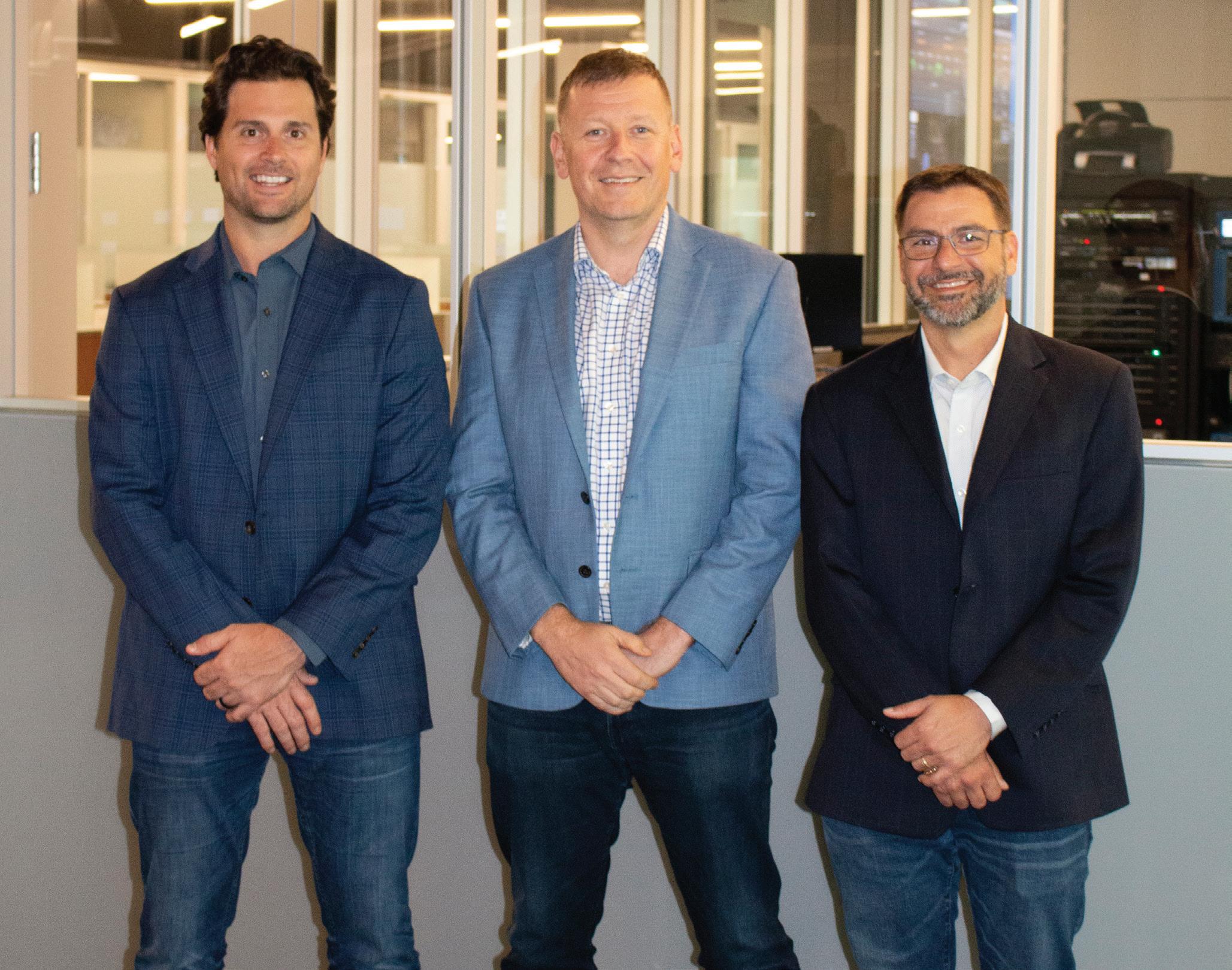
AH: How are things progressing with your Plane Simple Antenna project?

CM: We’re full speed ahead with this project right now. This is t he first-ever terminal in business aviation that puts the modem unit in an unpressurised vessel. We’ll be able to fit it in any aircraft that can support a 12-inch antenna in a tail radome. Both the modem unit and the antenna are very easy to get at from a maintenance standpoint but are completely invisible to the customer. The unit has been designed so that it doesn’t need to take up any useful pressurised space in the aircraft. We’ll be able to get these onto smaller jets, such as a Phenom 300, which means owners will get a connectivity experience that is just not available to them today.
Our team did an amazing job of getting our Ku-band Plane Simple offering to the market and we are now well

down the road with our Ka-band offering. The point is that we are totally agnostic as to the technology choice, we can deliver which ever system makes most sense for our customer.
What is key for me is that with our tail antenna we are not developing a commercial airliner product that will then have to be squeezed onto a business jet. This was developed from the ground up with a focus on business jet needs from the outset. We are currently working on in service evaluations and the roadmap to entry into commercial service is looking good for Q3 this year.
The flat panel phased array antenna is more distant. It is still probably about 36 months out. If we can get it out and have it certified by mid-2025 we will be doing very well indeed. There are a lot of moving parts in that technology. This has not yet been achieved and we intend to be first to market with this ground-breaking technology. We are working very closely with the OEM community to ensure that our technology really will be a true business aviation product and a total game-changer.
“The Intelsat FlexExec qualification, and the subsequent DO 160 approval from the FAA, represent significant milestones as we ramp up our STC generation and in-service-evaluations. We’re making the Plane SimpleTM antenna concept a reality!”-Colin Quarless Vice President Product Management and Strate gy, SD
“Introducing the first ever connectivity terminal designed specifically for business aviation is a game changer. We are delivering a connectivity experience that is not available to operators today.”
Robert Vega Sr. Director Product Management, SD
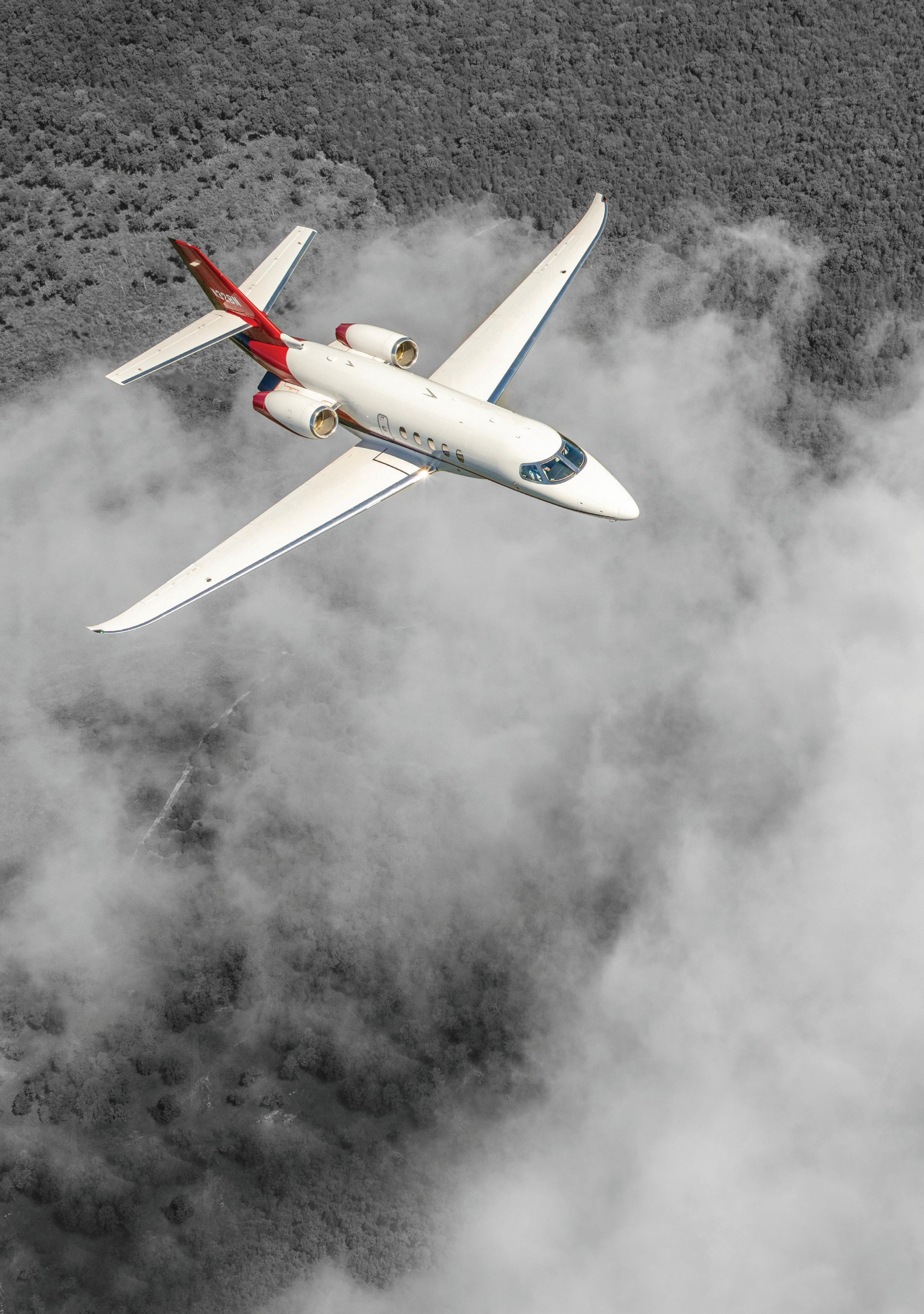











AH: What does the $4 billion takeover of Inmarsat by Viasat mean to SD?
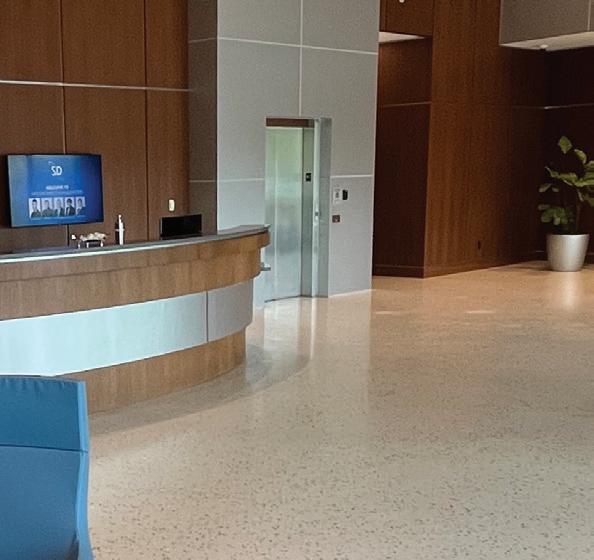
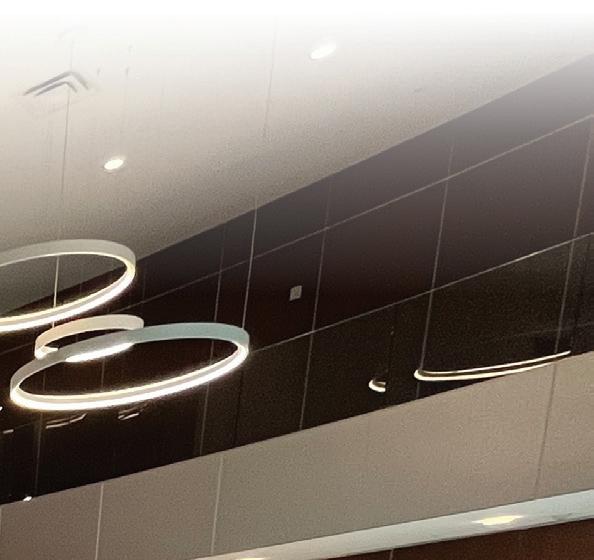
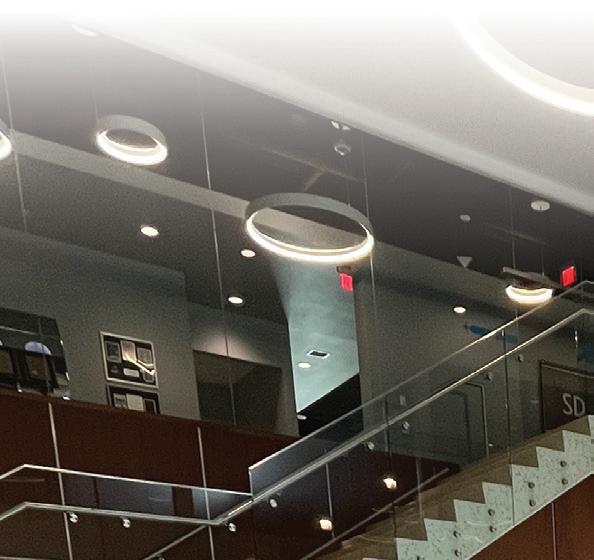
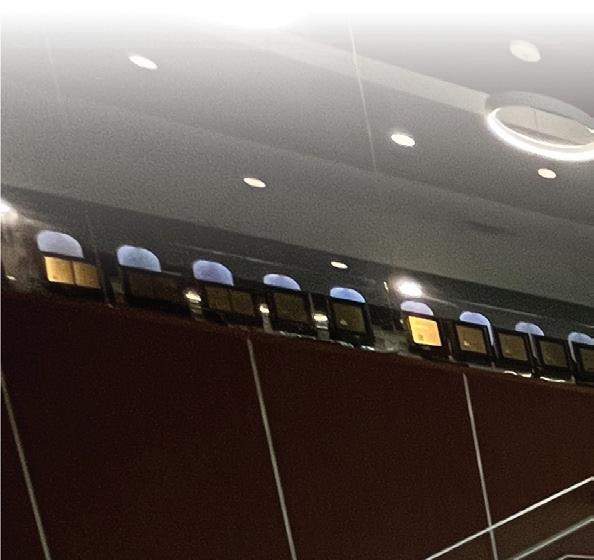
CM: It is a huge acquisition but it does not change things for us particularly. We are already Viasat’s largest customer and we represent 50% or more of Inmarsat’s aviation business.
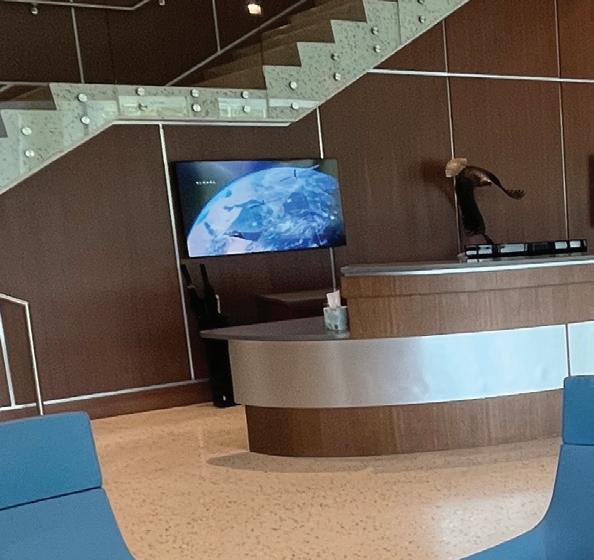

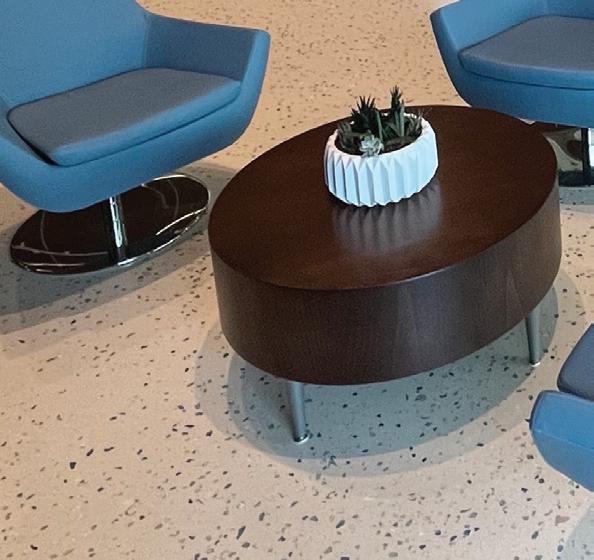
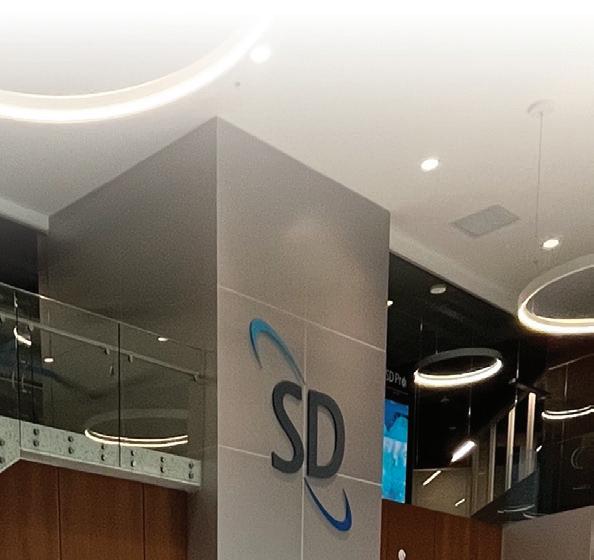
AH: You recently came out with SD Marine. What is that about?
CM: We already work with the maritime sector, but now we are expanding our offering to support connectivity for customers who own super and mega yachts, and/or sports fishing vessels who want the same kind of connectivity services at sea, that they do in the air. We’ve developed the SD Marine Router and the SD Marine Rack to add to our hardware portfolio . The low profile, rack-mounted router is based on the established SD Router family. We are taking 25 years of experience providing best-in-class aviation connectivity solutions, and adapting and modifying that knowledge to give customers a similar experience at sea.

CM: Our feeling is that we are very positive on the market. Charter is up 15% on the 2019 pre-COVID market already, Part 91 flights are up 21%. Inventory is a huge issue right now, with the pre-owned market at extraordinarily low figures. Even new jets are hard to come by. There is currently a two and a half year waiting list for new Phenoms, for example, and much the same story goes for the other OEM models. This continued demand means we are happy with the way things are looking.

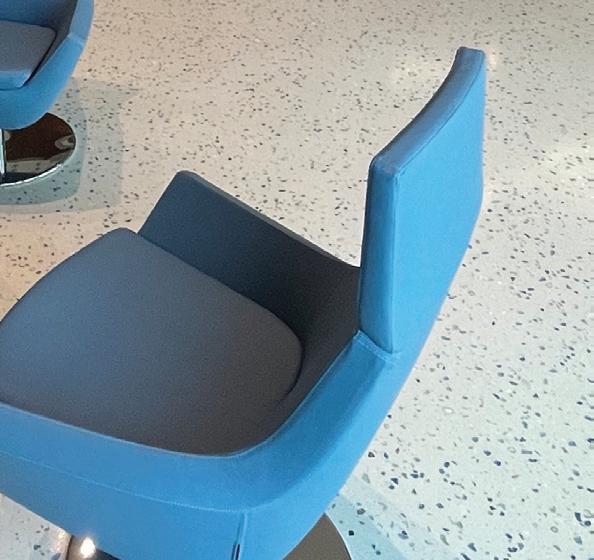
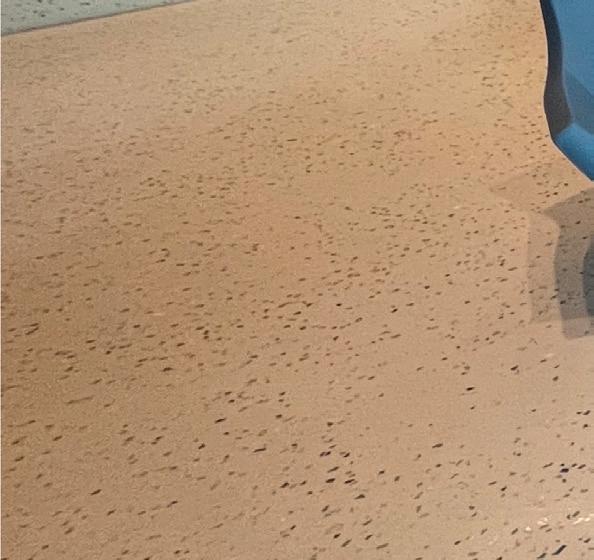
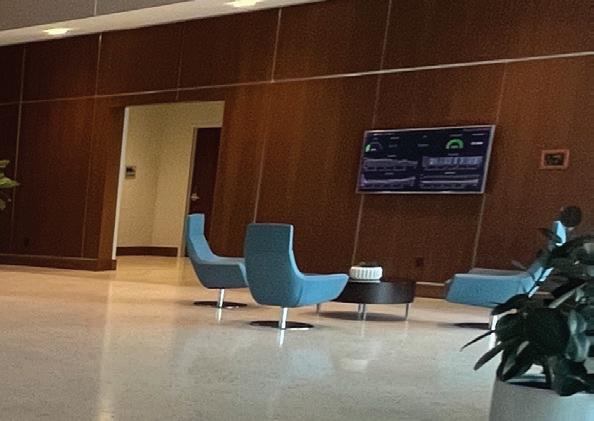
|BAM
“ We already work with the maritime sector, but now we are expanding our offering to support connectivity for customers who own super and mega yachts, and/or sports fishing vessels.”


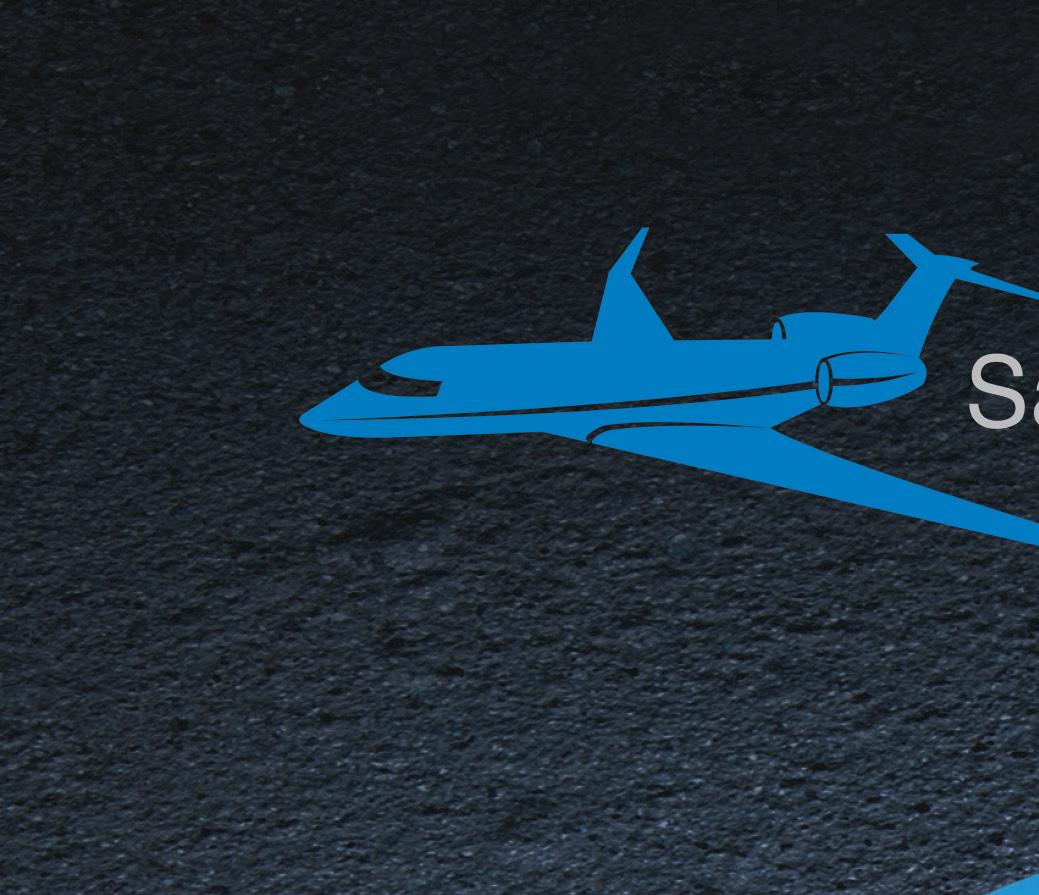


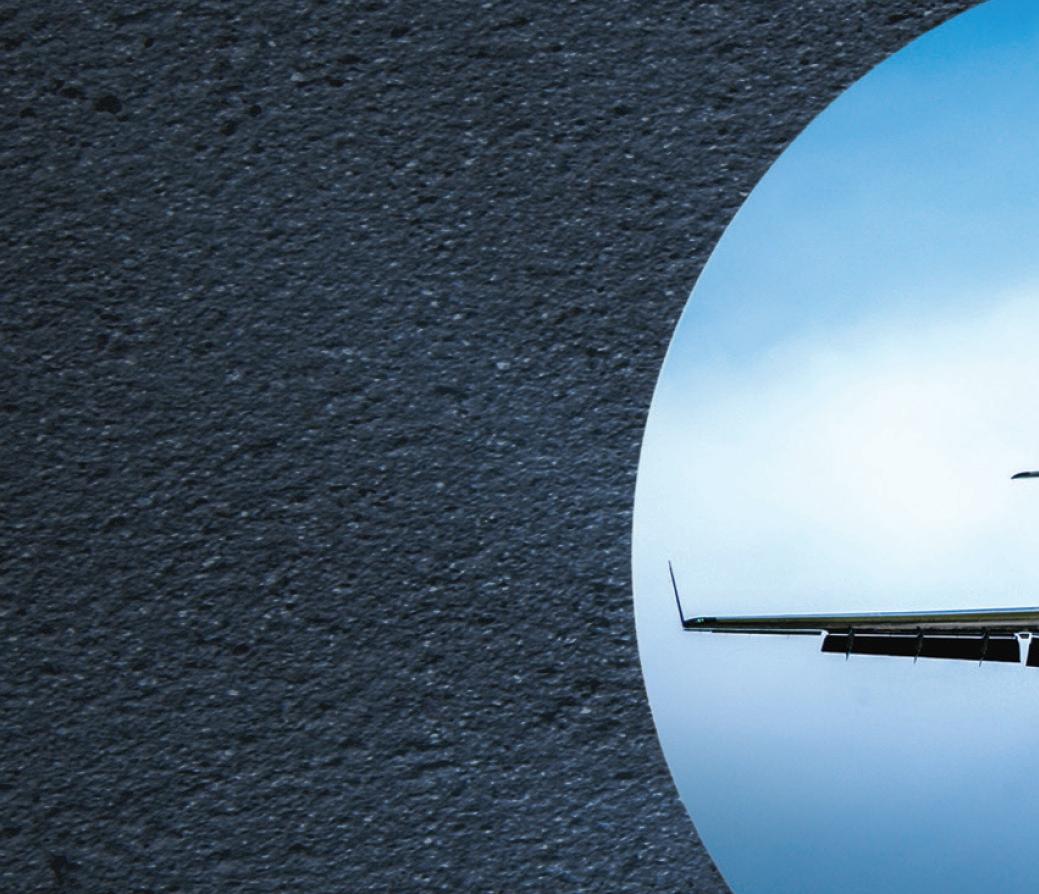






change

AH: Clay, has AIC Title been enjoying the boom in business aviation from 2021 to the present?






CH: Well, I have to say that we did pretty darn good through 2021. We were up 22% on total escrow numbers and up 52% in dollar terms, by comparison with 2020. So that was very significant for us. Title searches were up 10%, our document department was up 10% on volumes done, and the total number of international registry contacts went up by almost 20%. By any reckoning, that makes for a really great year.
AH: Are you seeing that momentum continue into 2022?


CH: The change from 2020 to 2021 was very significant and it is very pleasing that we are staying above our 2021 levels at present. We were 12% up on 2021’s January figures, which until then had been our best month ever. February was dead flat, year on year, but we have already done 70% of our March numbers with a chunk of March still to go.
So, by any count, we are staying strong. Everyone says the market is going to go down and we could possibly be heading

Clay Healey, the owner of AIC Title Service, talks to Anthony Harrington about aviation after the pandemic
“







The change from 2020 to 2021 was very significant and it is very pleasing that we are staying above our 2021 levels at present. We were 12% up on 2021’s January figures, which until then had been our best month ever.”
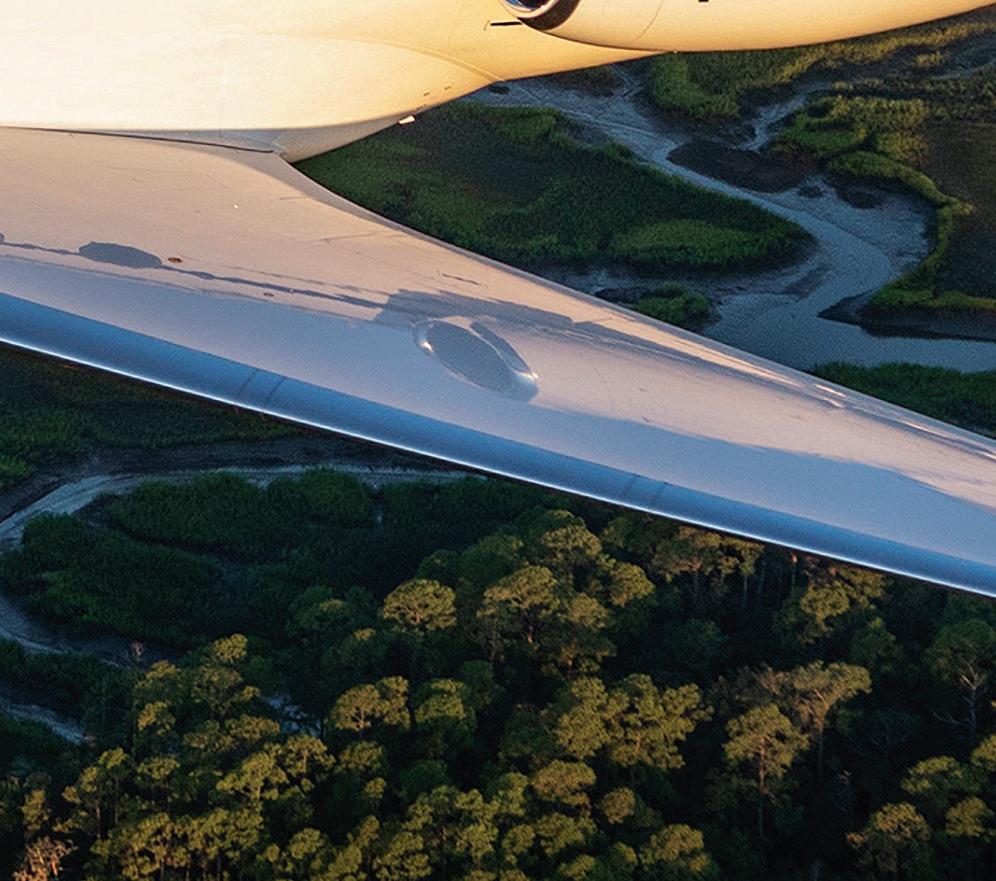
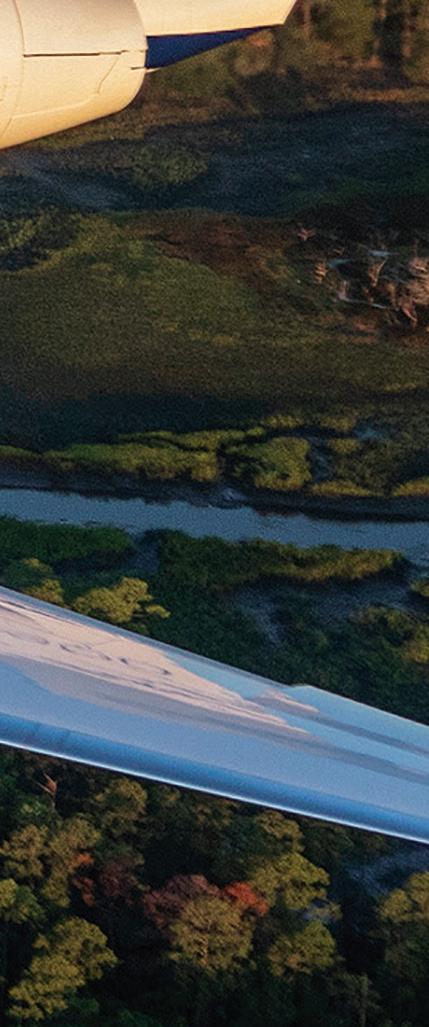


“Everyone says the market is going to go down and we could possibly be heading for a recession, particularly in the light of the sanctions on Russia hitting the global market. However, frankly, I am not seeing it.”

for a recession, particularly in the light of the sanctions on Russia hitting the global market. However, frankly, I am not seeing it. Obviously, at some point, we expect things to slacken off a bit, particularly given how low aircraft inventories are at the moment. But what has to be said is that here in the US people are still trading aircraft, swapping older for new, and it just keeps going. Of course, the European industry is still shackled with closed borders, but in the US we still maintain the ability to get things done.
AH: What impact do you think the Russian invasion of Ukraine will have on business aviation?

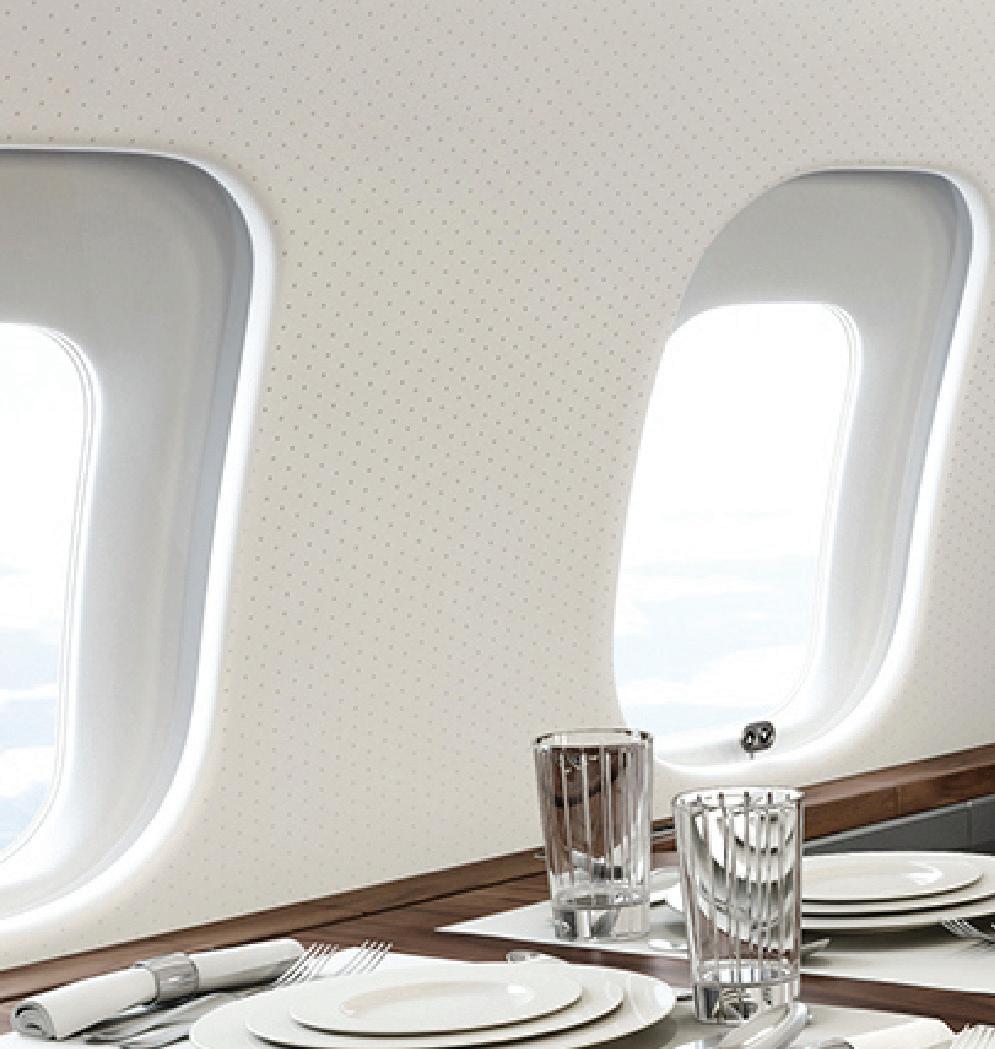
CH: These things tend to take everyone by surprise. Eighty years ago, very few people thought that Germany would try to take over the world. Then you get someone like Putin doing something like this, that seems entirely unreasonable and unprovoked and everyone takes a step back. However, in reality, there are not that many Russian business jets, so the impact on the industry as a whole is unlikely to be that great. This is not going to turn the needle. It has an effect and a few companies that handle a lot of flights into and out of Russia will be significantly affected. But most of us will not, in my opinion.
If we are talking about the war’s impact on oil and gas, and ultimately on jet fuel prices, that is an entirely different conversation. However, aeroplane transaction volumes out of Russia are just not big enough for this to impact much.
AH: Turning aside from Russia and from the pandemic, AIC Title has benefitted hugely from the investment you have put into technology and systems. Can you explain a bit about that?




CH: Well, this is not entirely aside from the Russian issue. One of the big things at present is how good your Know Your Client (KYC) systems are. You do not want to go breaking sanctions unwittingly. We have put a huge amount of effort into automating KYC. If you put any name into our system as part of an aircraft closure or registration, the system does a large number of automatic checks and searches.
No one has to type that in. This gives us an unrivalled ability to transact all around the world and to know that we are doing so in complete compliance with all the rules. Other firms try to do this but it bogs down the whole process if you try to do it manually. If it is not automated, you really are behind the times, and so many are.

CH: We have some really cool AI stuff that we are going to be upgrading our systems with. I’ve been working on this approach for 10 years now and we have got it down to about 98% efficiency, which is far ahead of the competition. We will soon have all our title searches automated in the US. This is huge since getting the title report back to the clients is one of the biggest bottleneck points in an aircraft transaction.











The right partner is just one step away.
We employ a really good consultancy firm on this side. They produce the algorithms and software that creates the title report, then our staff follow up and ensure that the report is 100% complete.
AH: You have been getting quite a bit of large asset and big-ticket business that has nothing to do with aircraft How is that going?

CH: This is moving along very nicely. We have a number of companies that we are dealing with that are not in the aviation industry. This is not something we are really pushing sales on yet, but a number of transactions are finding their way to us. People are realising that we have a platform that is very conducive to big-ticket transactions.

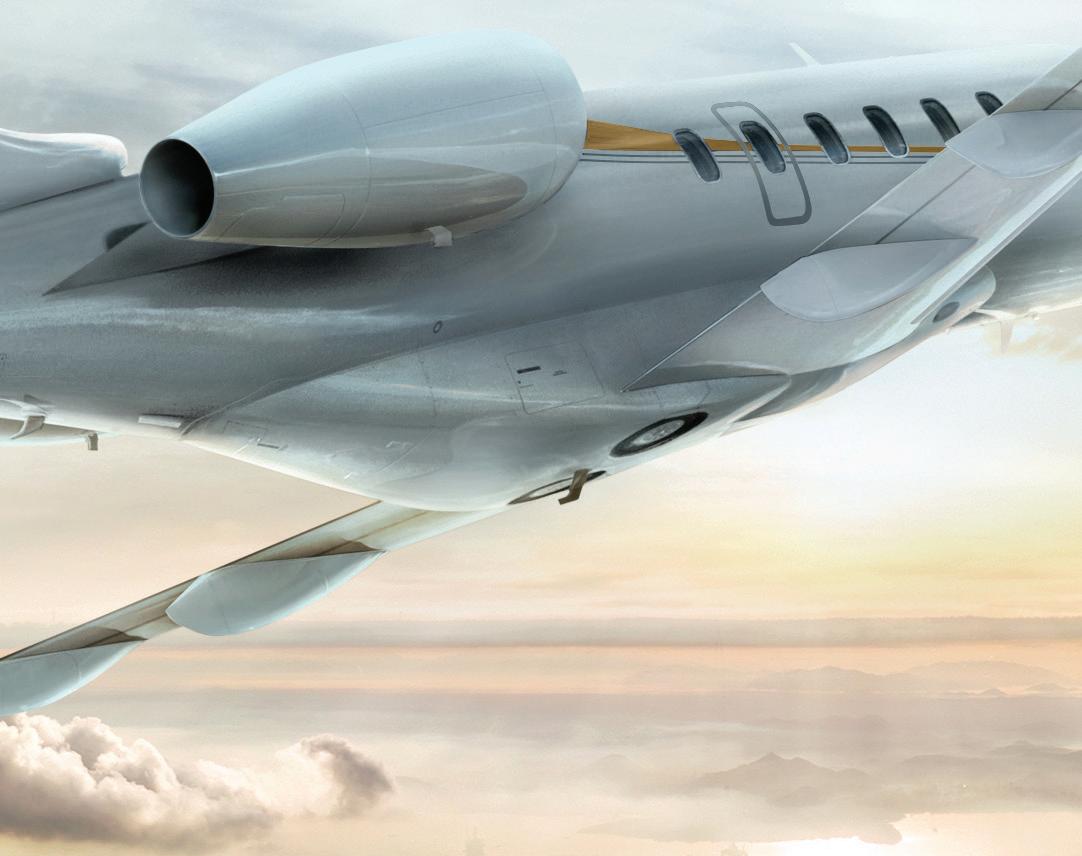
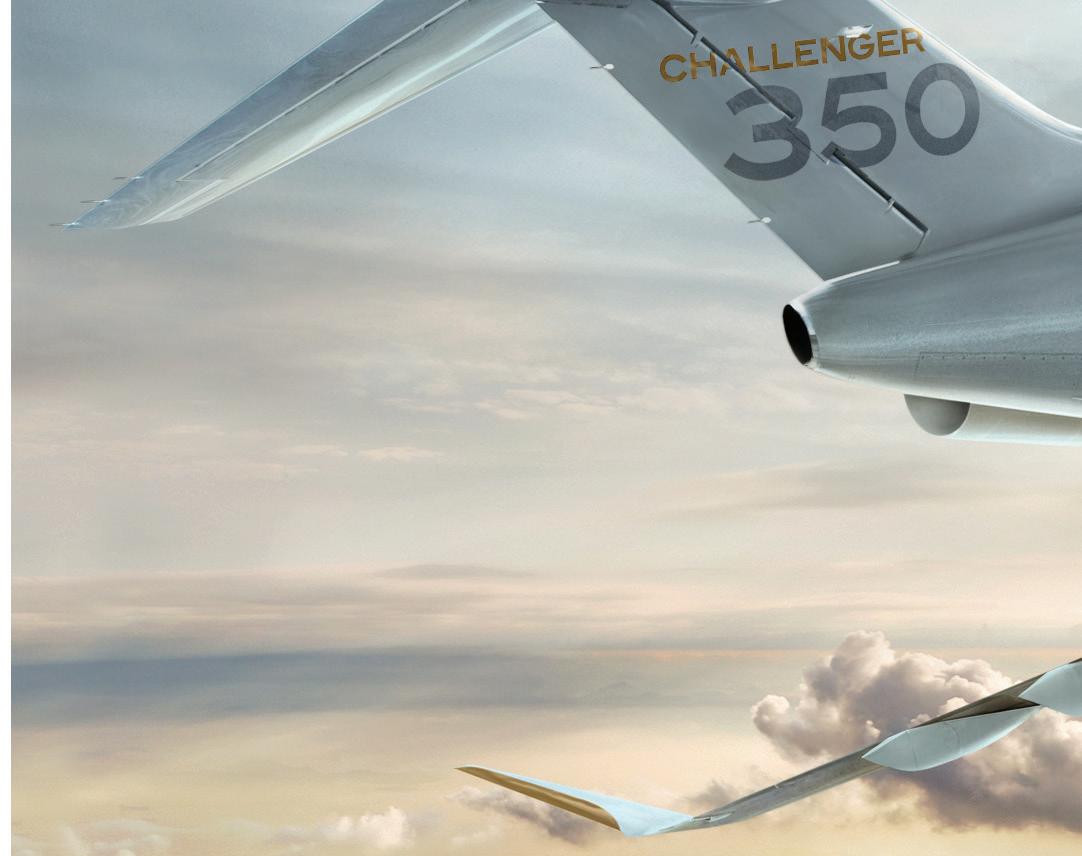

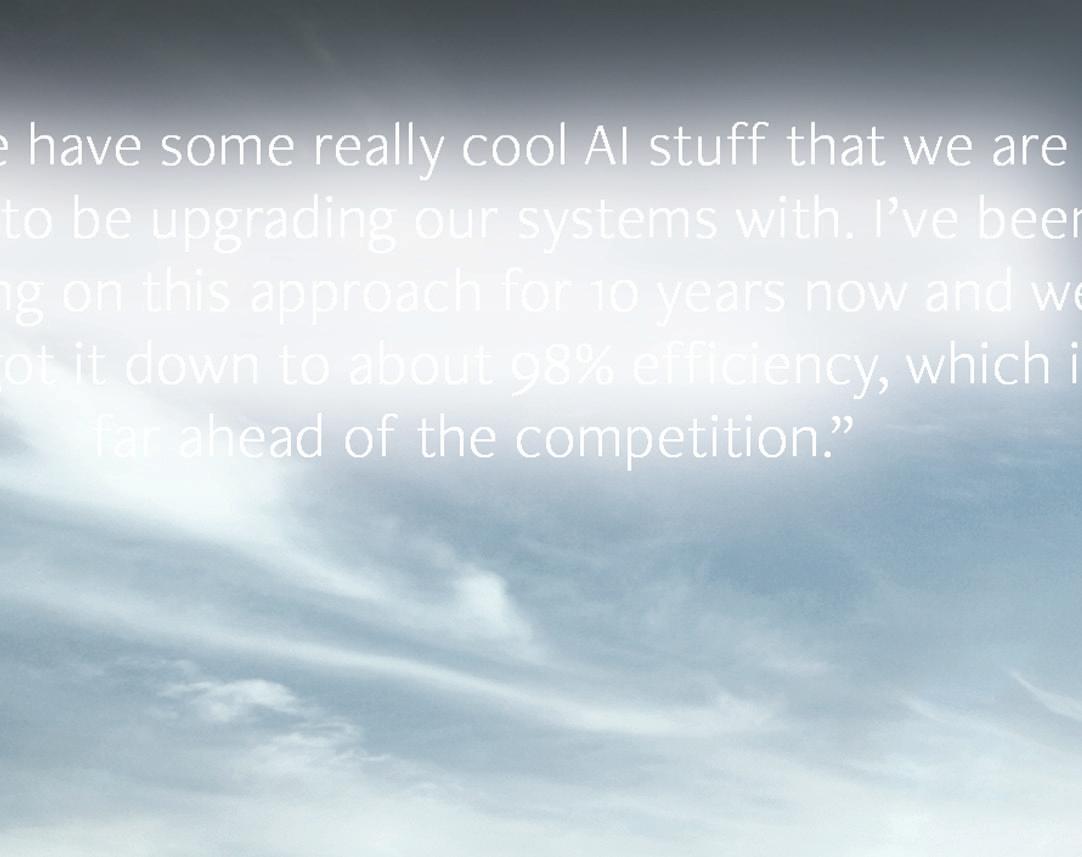


You have to remember that AIC Closing is totally different to AIC Title Service. This system caters extremely well for non-aviation industry closings, and we do
transactions ranging from building sales to heavy plant and equipment.

Say you are buying 20 containers of t-shirts, or whatever. Normally the buyer and seller have to put their trust in each other and if things do not happen correctly, the result is a messy argument. With a third party like ourselves holding the funds, both the seller and the buyer have confidence that the money is there. The buyer knows he can get his funds back if the seller does not transfer ownership, and the seller knows the buyer has the funds. This lets everyone get the deal done.
AH: How do you think you are doing now? Are you growing faster than the market?


CH: I think we are definitely taking business from the competition and we are going to do a lot more of that thanks to the technology platforms that we have built. The simple fact is that we make it easy for folks to get things done! |BAM

“We have some really cool AI stuff that we are going to be upgrading our systems with. I’ve been working on this approach for 10 years now and we have got it down to about 98% efficiency, which is far ahead of the competition.”







Andy Priester, Chairman and CEO, Priester Aviation, talks about the company’s vision for the future







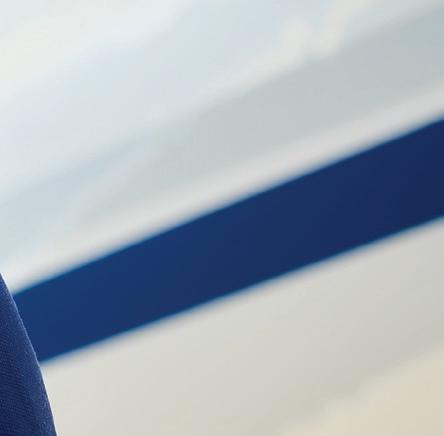



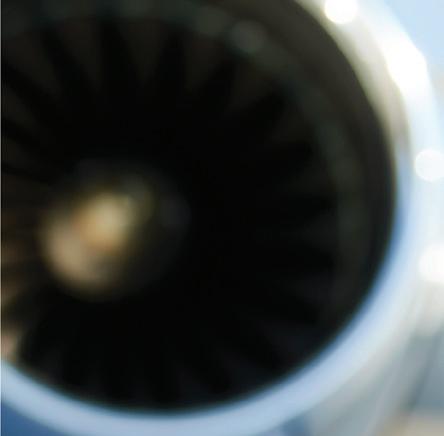


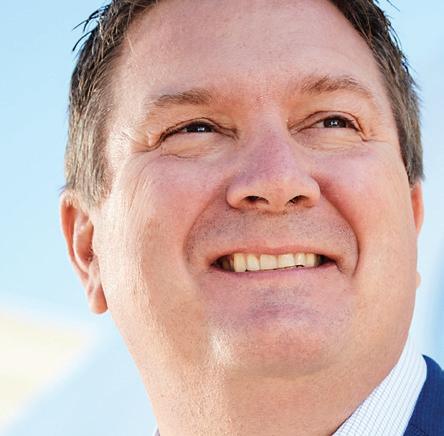






Priester Aviation was founded by George Priester in 1945 as a flight training school that eventually evolved into the multi-disciplinary aviation service company that it is today. As the aviation community developed and businesses began to expand globally, George Priester saw that the aeroplane was going to become the business vehicle of choice and anticipated the growth of the market.
The need for flexible point-to-point travel became a necessity and alternatives to commercial airline services were imp erative. Priester’s goal was to provide executives and other discerning travellers with premium aviation services, tailored to fit the individual needs of each client. Today, Priester operates a fleet of world-class aircraft and has a proud tradition of providing its clients with the same commitment it held 75 years ago.


“ On the management front, we have been seeing accelerated growth, primarily because there is now so much stress for owners who try to go it alone.”

AH: Andy, you head up a company that has been highly respected in business aviation for three generations. Not many can say that. What are your thoughts about where business aviation is today, and how things are going to develop from here?

AP: Well, you and I were both at CJI London in early March, where a number of leading industry figures expressed their views on this theme. There was not much that was hugely surprising or Earth-shattering. However, it is always very useful to hear the themes that are dominating the industry discussed in some depth. This is what I enjoy about the major conferences and exhibitions our industry puts on. You get a good sense of how people are looking at the future.
I have to say that I heard a lot of positive things and it was great to interact with colleagues. You have to take some stuff with a grain of salt because there are some folks out there that spout nonsense. Typically though, one gets any number of honest and open conversations with colleagues and that is always good.
Obviously, the Ukraine – Russia war is dominating the news headlines. However, here in the US, its actual impact has been low. We are paying close attention to it because it has the
potential to impact the global economy negatively. We need to keep a finger on the pulse. However, right now, even despite rising interest rates, things are still very strong for us. We see this continuing for at least the next six to eight months.
AH: Managing aircraft for owners is now a really key part of your business. How is that developing?
AP: On the management front, we have been seeing accelerated growth, primarily because there is now so much stress for owners who try to go it alone. It is getting much more difficult now to book aircraft for charter purposes because there is just so much demand, and only so many aircraft that are available at any one point in time.
Because of this, people who used to charter, have now started buying aircraft – always assuming they can get them. The preowned market is now really tight and manufacturers have at least an 18-month delay in their order books. However, despite this, we are seeing more first time buyers than ever before.
AP: The iron law of supply and demand means that tight supply on the charter side is pushing prices to levels we have
Stabilize your maintenance budget. Enhance your aircraft’s residual value.


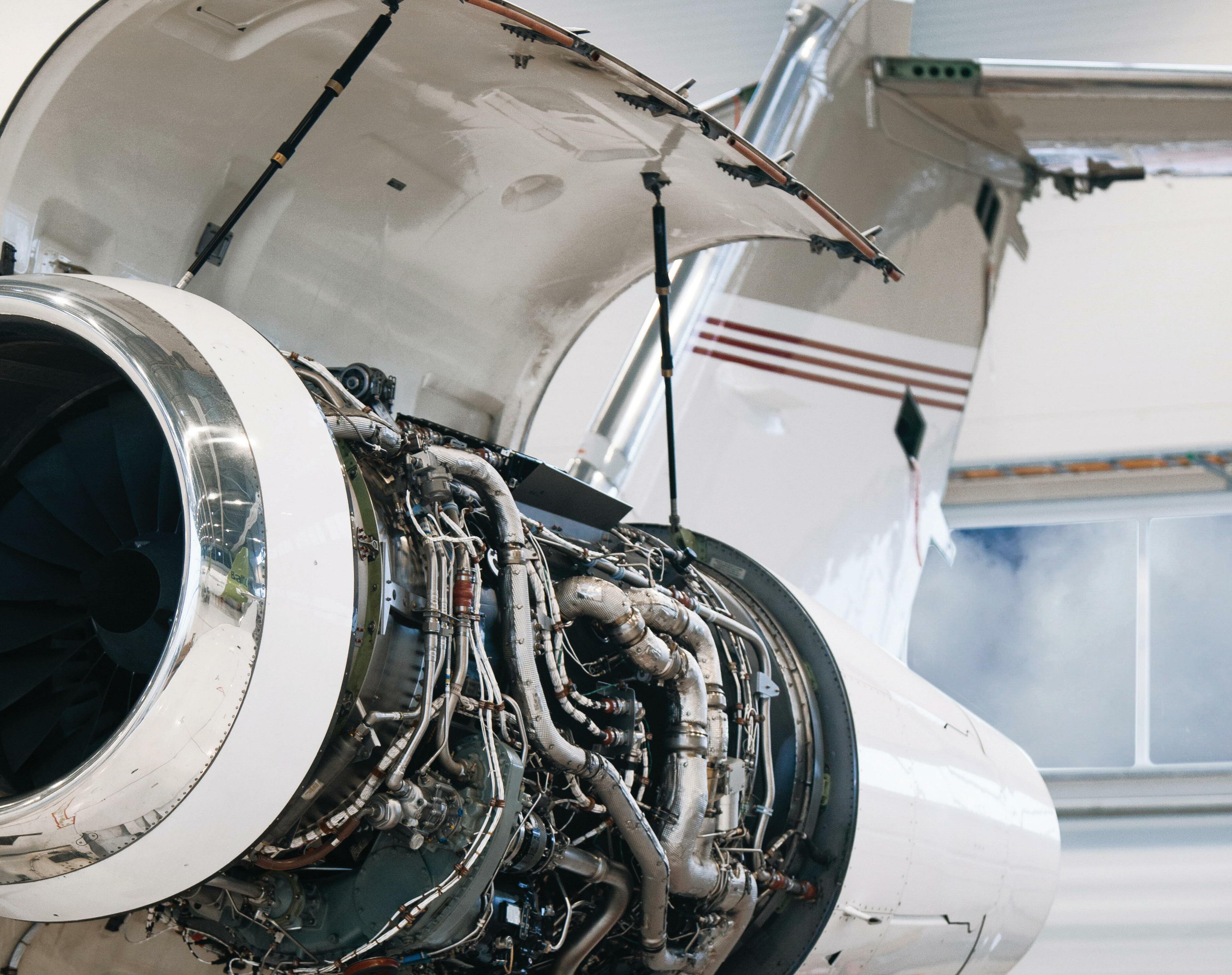
24/7 worldwide support from local technical advisors and product line specialists.



Hourly Cost Maintenance Programs for virtually all makes and models of turbine-powered aircraft. AIRFRAME. ENGINES. APU.
Extensive selection of 45,000+ lines of aircraft parts and 40+ lease engines/APUs available immediately.

Personal service from an experienced team with a deep understanding of your aircraft’s components.
Procurement expertise and pricing data to reduce repair costs and improve turn time.
We’re standing by to rapidly quote or source the quality aircraft parts you need. PARTS. ENGINES. SUPPLY CHAIN.

not seen for two or more decades. This is great in one sense for charter operators, but it is bad in another because you have a lot of angry customers.
They find it very difficult to understand why they can’t continue to get the rates they’ve been enjoying for twenty years or more. Prices have really gone up a lot and availability is way down. So charter right now is a take of two stories. From a volume and pure business standpoint, it is wonderful. From a customer relations standpoint, it is really difficult and we are having to do a lot of patient explaining to folks.
At the same time, everyone in the industry knows that prices for charter have been far too low for far too long. The price of fuel, crew costs and maintenance have gone up and up and charter prices have stayed virtually static.
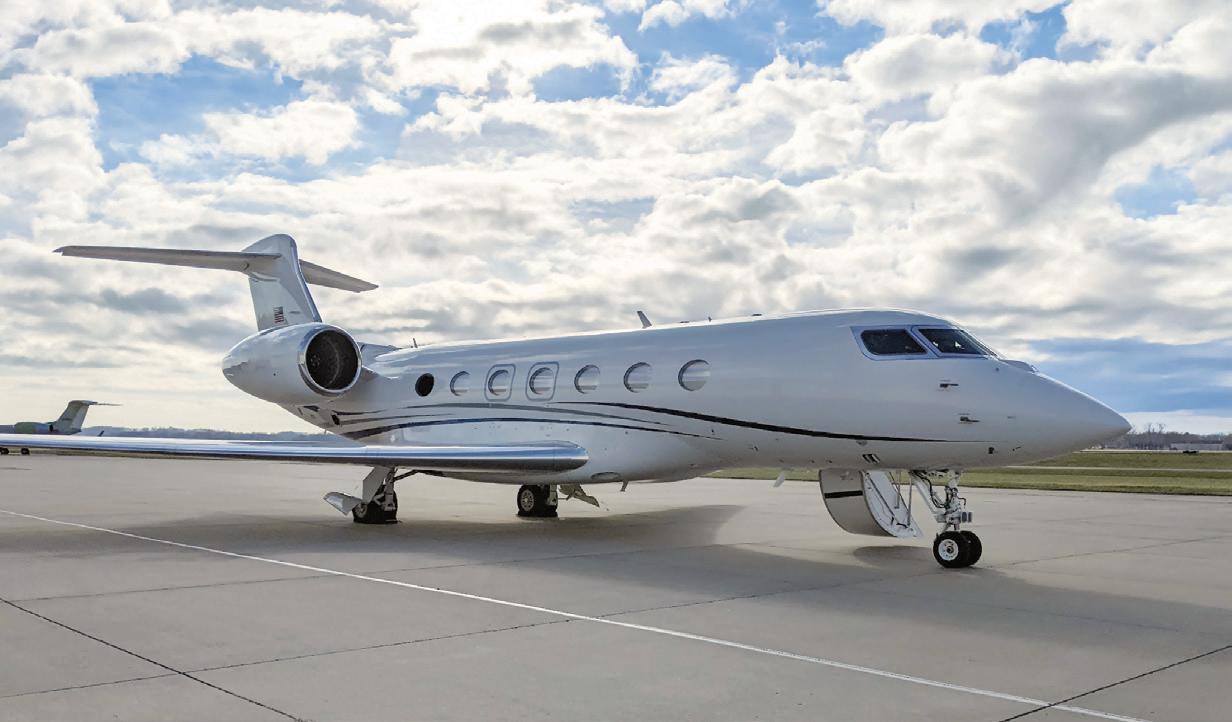
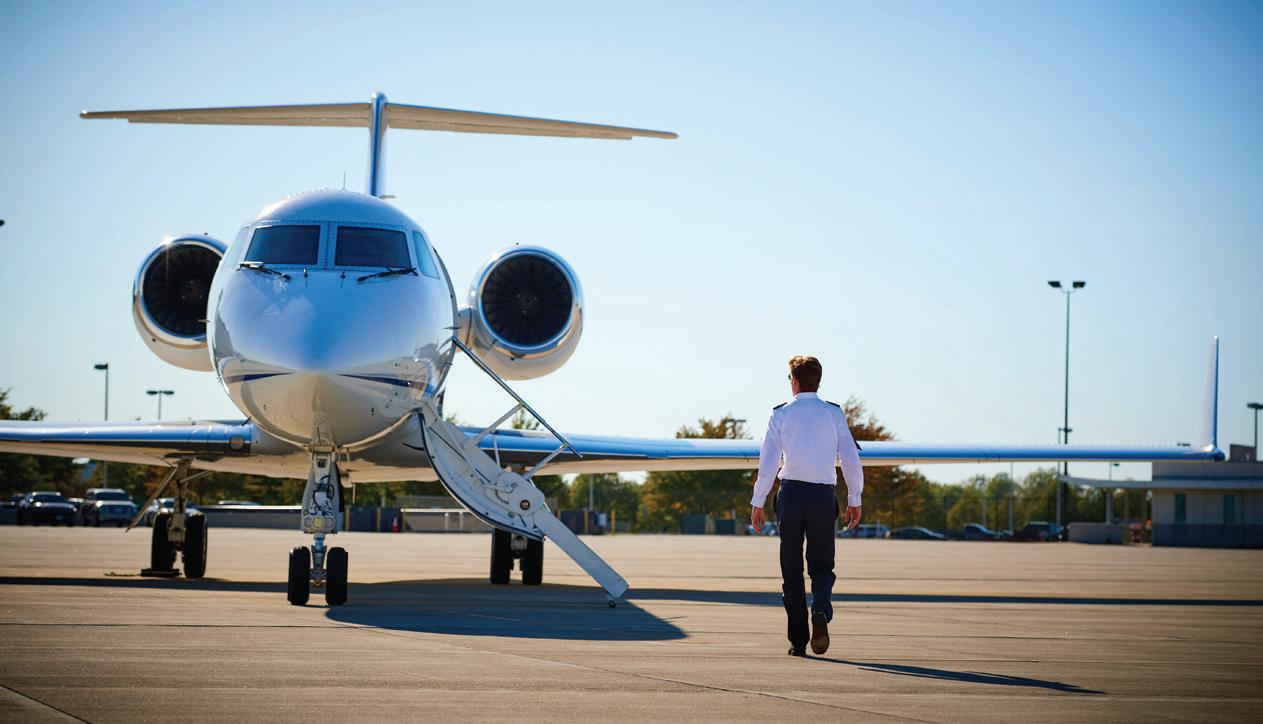

AP: There are basically two types of owners, those who need charter to make their business model work, and those for whom charter is just a nice extra to defray some portion of their expenses. However, with the rates going up and up a lot of people are now getting into the charter market and that is making things more complex. Supply and demand is really ‘business 101’ as every university student learns in first-year economics, but consumers don’t like it.
AP: I used to be a science teacher for six years before I came into the family business here at Priester and teaching, or sharing my experiences with young people, continues to be a driving passion of mine. What excites me particularly
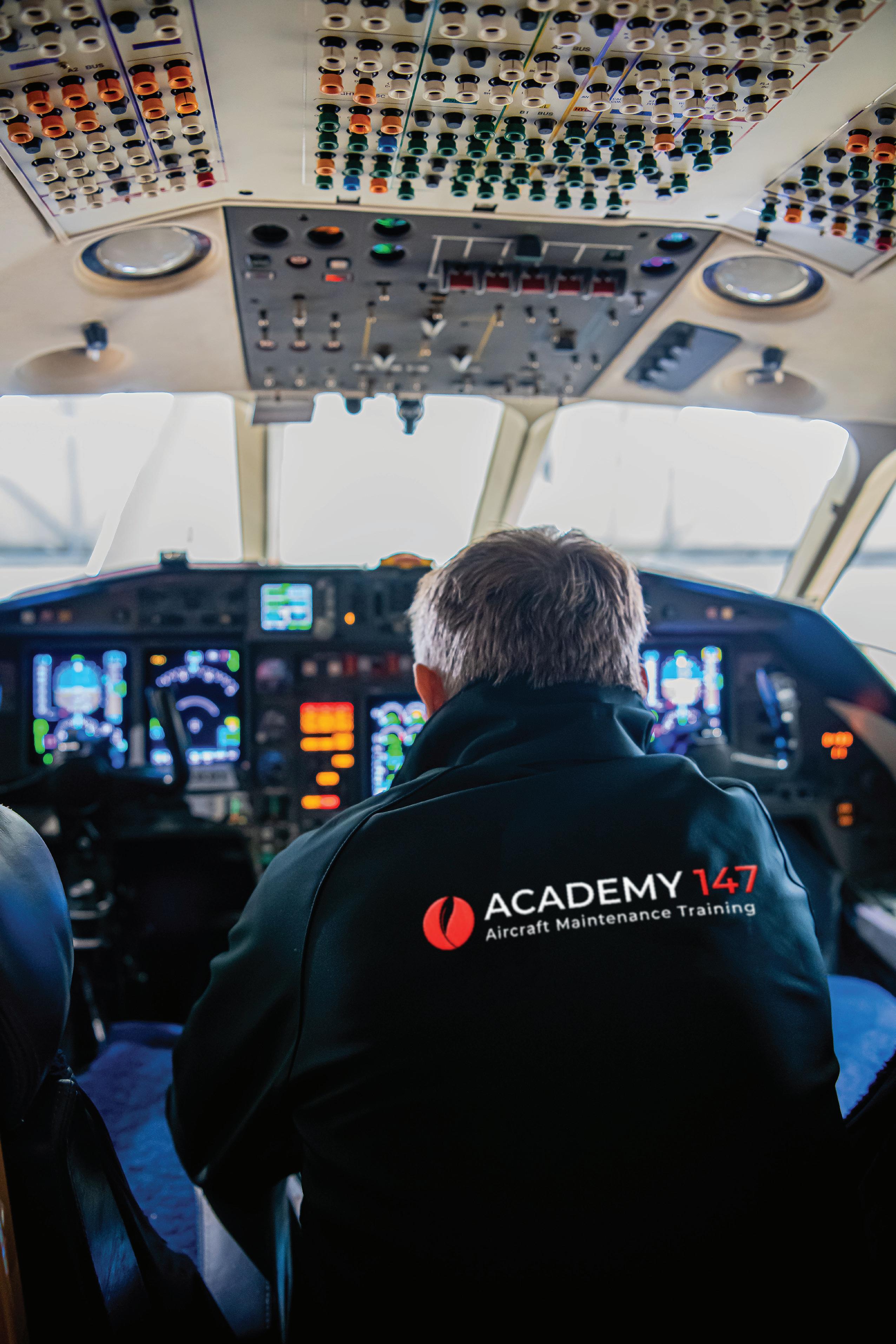
about Embry-Riddle is the way they are seeing to reach out to draw in talent from communities that have not, traditionally, even thought about a career in aviation.


One of the biggest challenges our industry faces is finding highly capable, qualified, passionate employees. There are just not enough of them out there who are even thinking of corporate aviation. If youngsters think of aviation at all, they dream of being airline pilots. There is very little out there that can open their eyes to the wide range of fulfilling careers that business aviation offers.


If we want to make a big impact on underrepresented communities and promote an inclusive and diverse talent pool, we need to be reaching out. This is exactly what EmbryRiddle is now doing. Priester has partnered with EmbryRiddle via a $75,000 sponsorship to enable something called Project Liftoff. The goal of the program is to enhance the success of bringing high-quality underrepresented young adults into the aviation industry.
“ The iron law of supply and demand means that tight supply on the charter side is pushing prices to levels we have not seen for two or more decades. This is great in one sense for charter operators, but it is bad in another because you have a lot of angry customers.”
We have the first recipient already, an African-American student named Jerry Bracey II, who is beginning a four-year scholarship at Embry-Riddle and is also on the basketball team at the university. I’ve met him and he is a wonderful candidate. For myself, I see this as a chance to give back to the industry I love. I plan to do more work with Embry-Riddle, perhaps take on a guest lectureship, plus serving on advisory boards.
Perhaps the main reason I can do this is that we have been fortunate enough to have Rich Ropp join us as our president. I’ve been juggling day-to-day operational things along with plotting out strategy and handling the business development side.
Now with Rich on board, with his 30 plus years of experience in the industry, I’ve been able to hand over day-to-day operational issues to him. That has freed up some of my time so I can now look at doing some external things that are very close to my heart, while still handling things on the strategic initiatives front. I look forward to helping more students find their way to a career in business aviation. |BAM

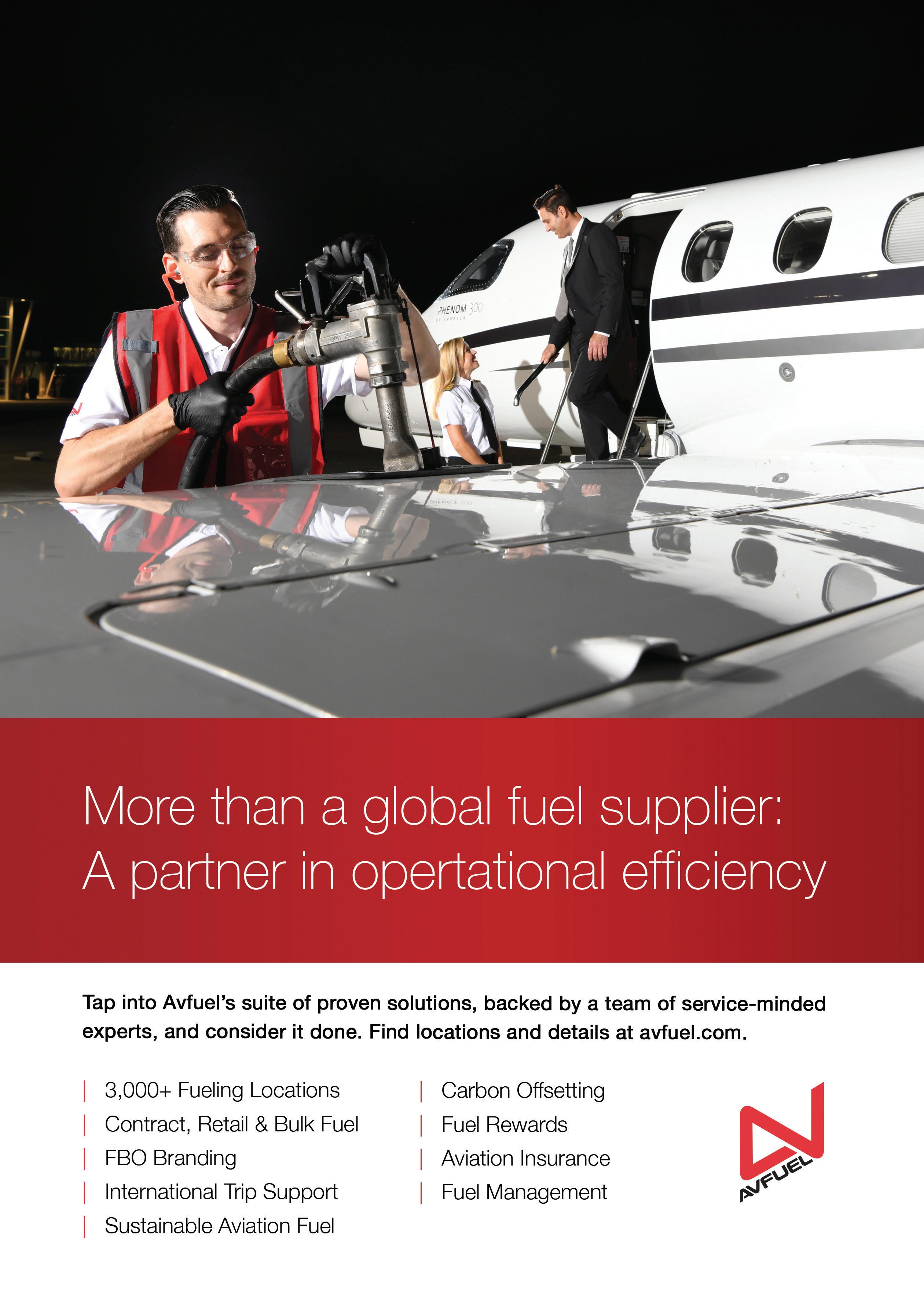



Air bp’s Andreea Moyes, global aviation sustainability director, on the company’s sustainability initiatives



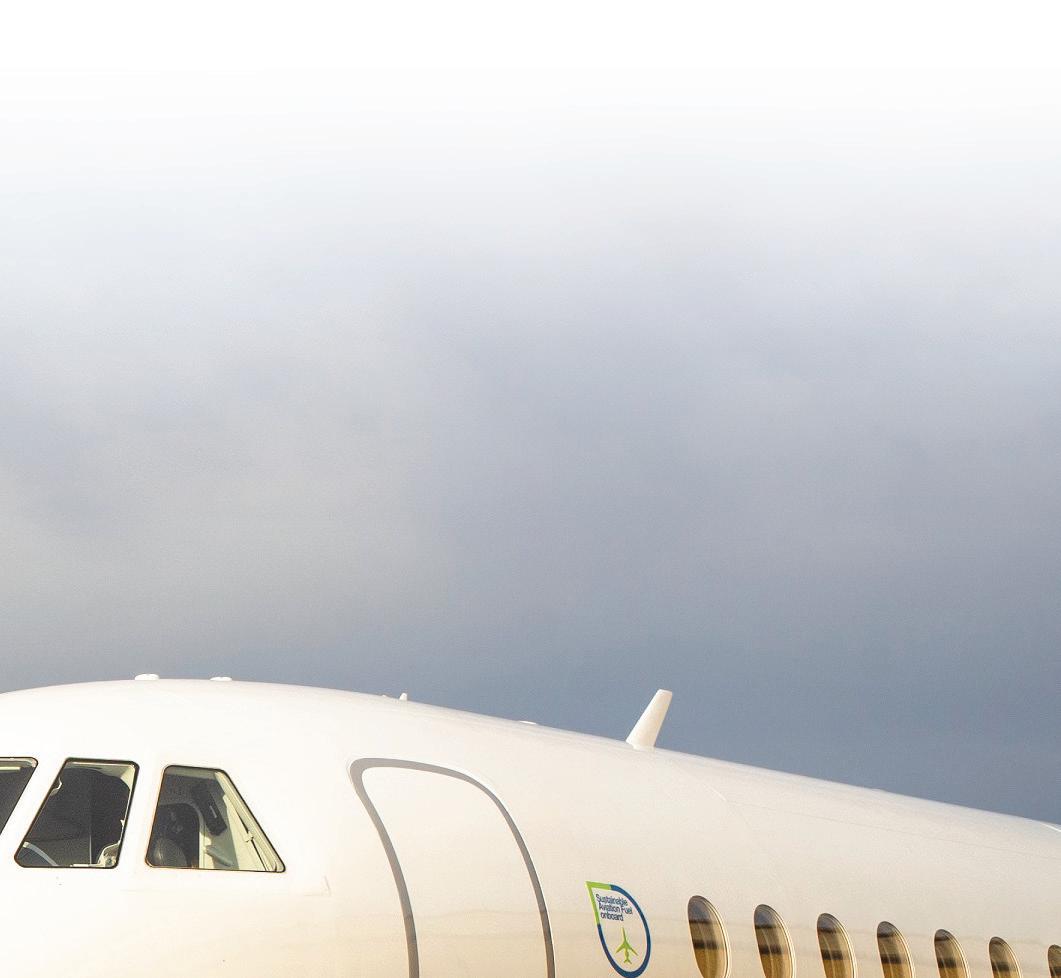










Q: Andreea, what has the history of sustainable fuels been, from Air bp’s perspective?








AM: At bp, we’ve been taking steps to help contribute to shaping a lower carbon aviation industry for over a decade. We were involved in fuelling the first SAF flight by an airline in February 2008 and since then we’ve been enabling groundbreaking test flights and investing in sustainable alternatives. To date, we’ve supplied SAF to over 20 locations across three continents.
OEMs, operators and airports within the business aviation sector have been leading the way with the introduction of sustainable aviation fuel. In 2021 Air bp started supplying SAF to customers, including London Biggin Hill airport, Centreline FBO Bristol, and Airbus owned Hawarden (CEG) airport in Flintshire, North Wales, as well as to operators in France and Germany.

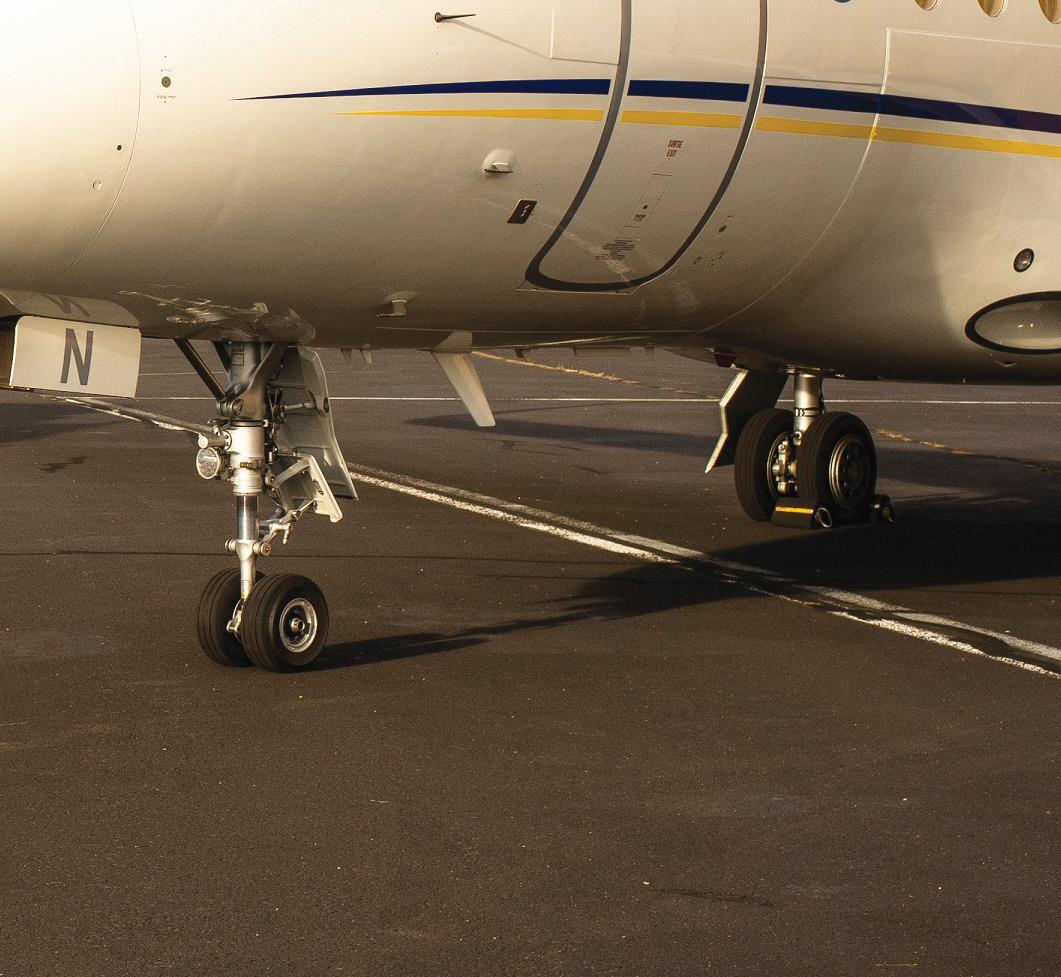
NetJets Europe became the first customer to purchase Air bp’s ISCC PLUS certified SAF in Spain. More recently, Rolls-Royce announced an agreement with Air bp for SAF that will reduce lifecycle carbon emissions for gas turbine tests carried out at three sites. This supports one of the organisation’s key sustainability commitments.
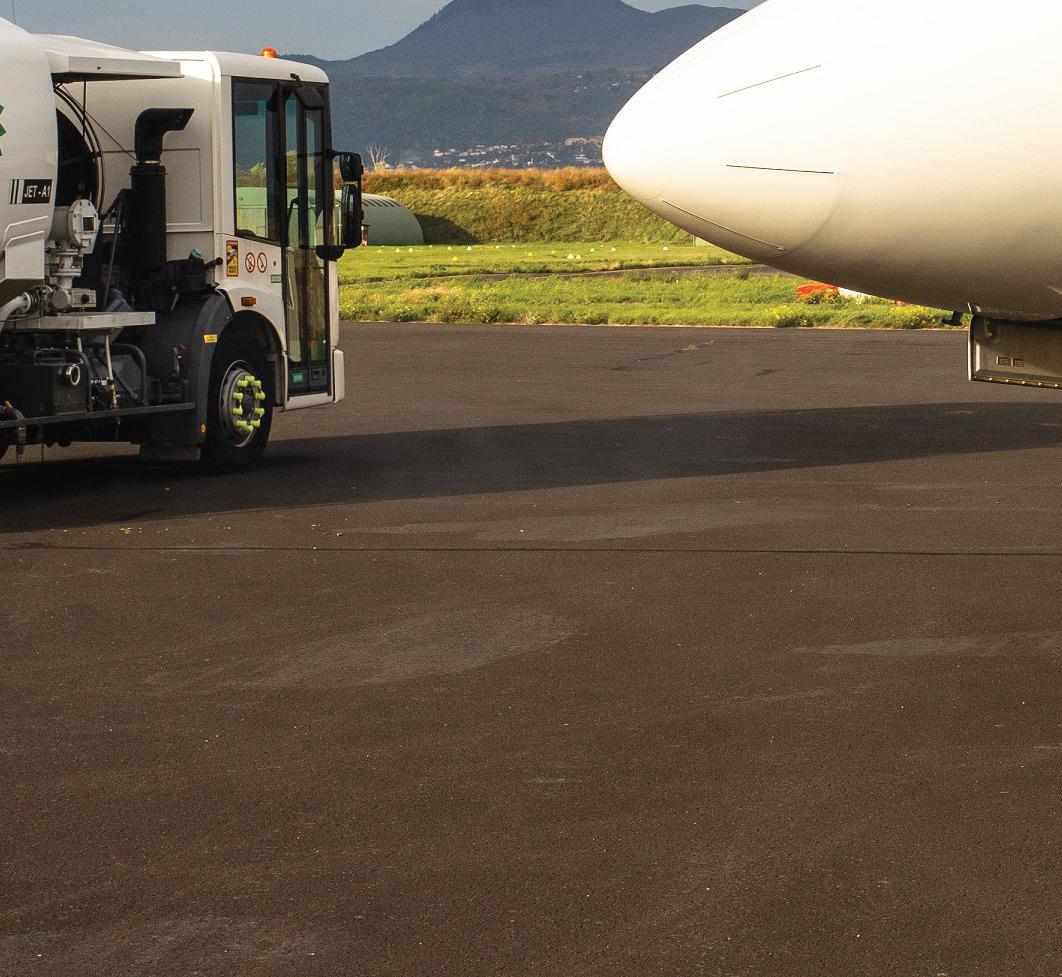







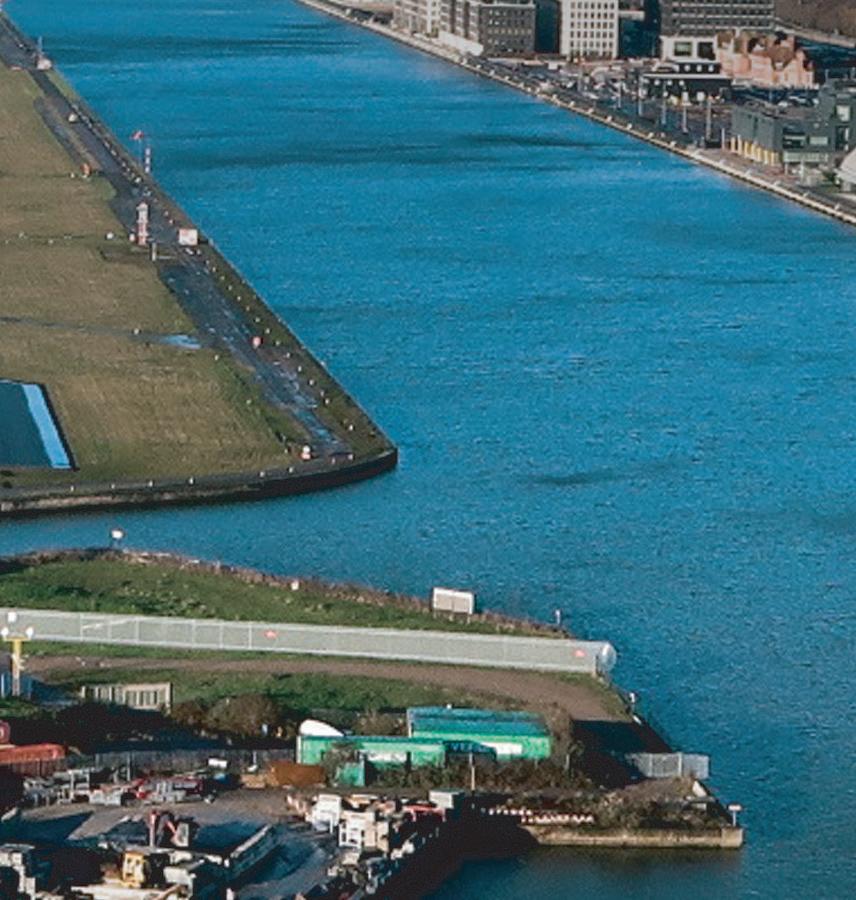
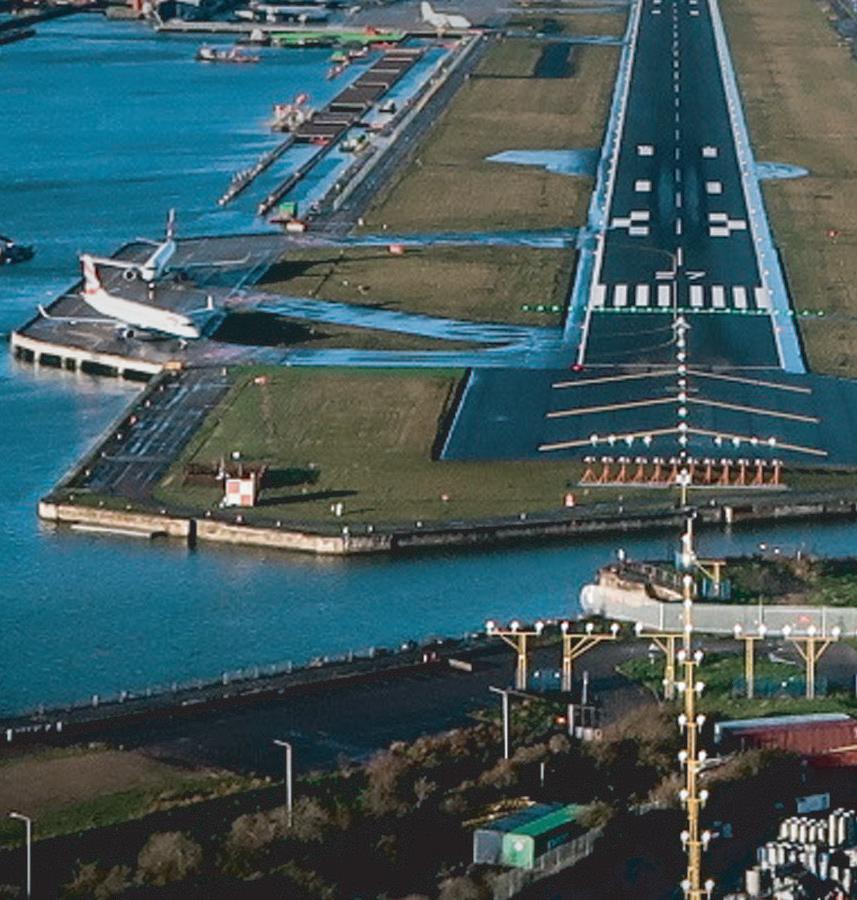









In the commercial airlines sector, bp and Qantas announced a strategic partnership to further advance their shared netzero ambitions. In January 2022, Qantas began purchasing from Air bp a 10 percent blended sustainable aviation fuel (SAF) for its flights from London. In March this year, parent company bp announced that it will supply DHL Express with sustainable aviation fuel until 2026 as part of a new strategic collaboration. The bp agreement is one of two deals comprising the largest sustainable aviation fuel (SAF) deals in aviation to date, with a combined volume of more than 800 million litres of SAF.
In 2021, Air bp launched the pilot of a ‘book and claim’ system to provide wider market access to SAF, particularly to business aviation customers. The initiative enables Air bp to deliver the SAF into the supply chain at one airport location and ‘book’ the carbon reduction associated with it into a registry.

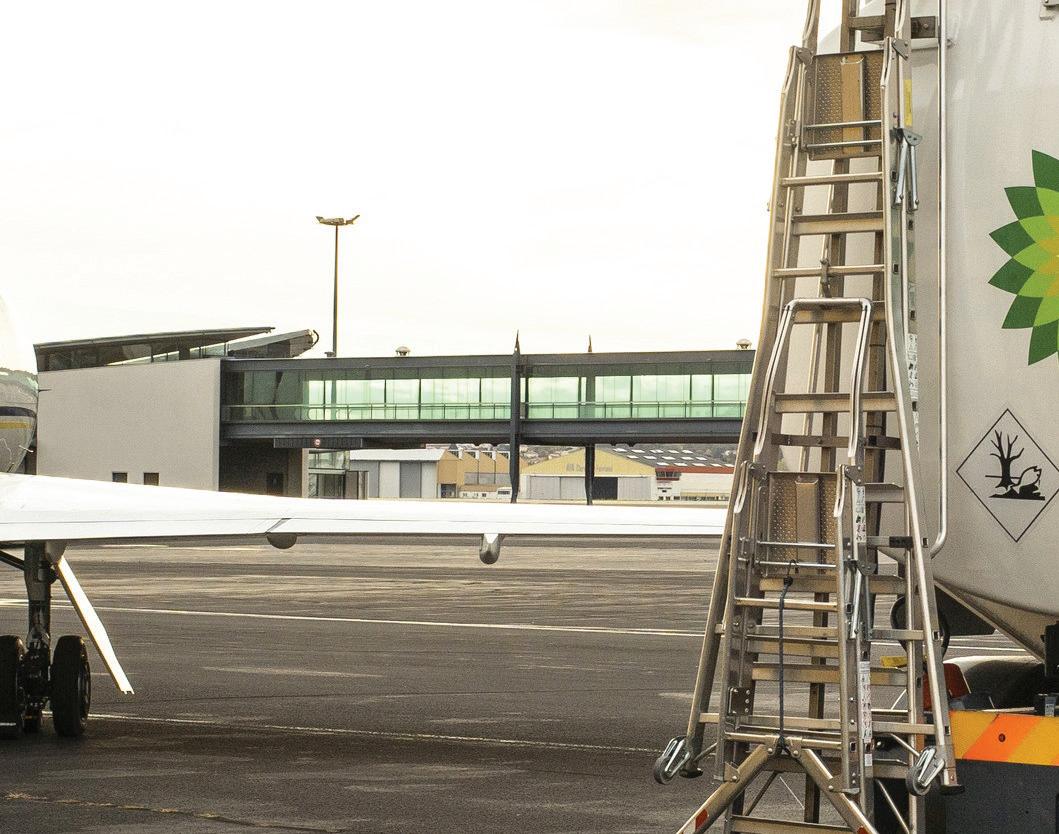





A customer at another location can then ‘claim’ those carbon reductions when purchasing their traditional jet fuel along with the benefit of the lifecycle carbon reductions that have been registered. We anticipate book and claim schemes to be more widely adopted going forward.
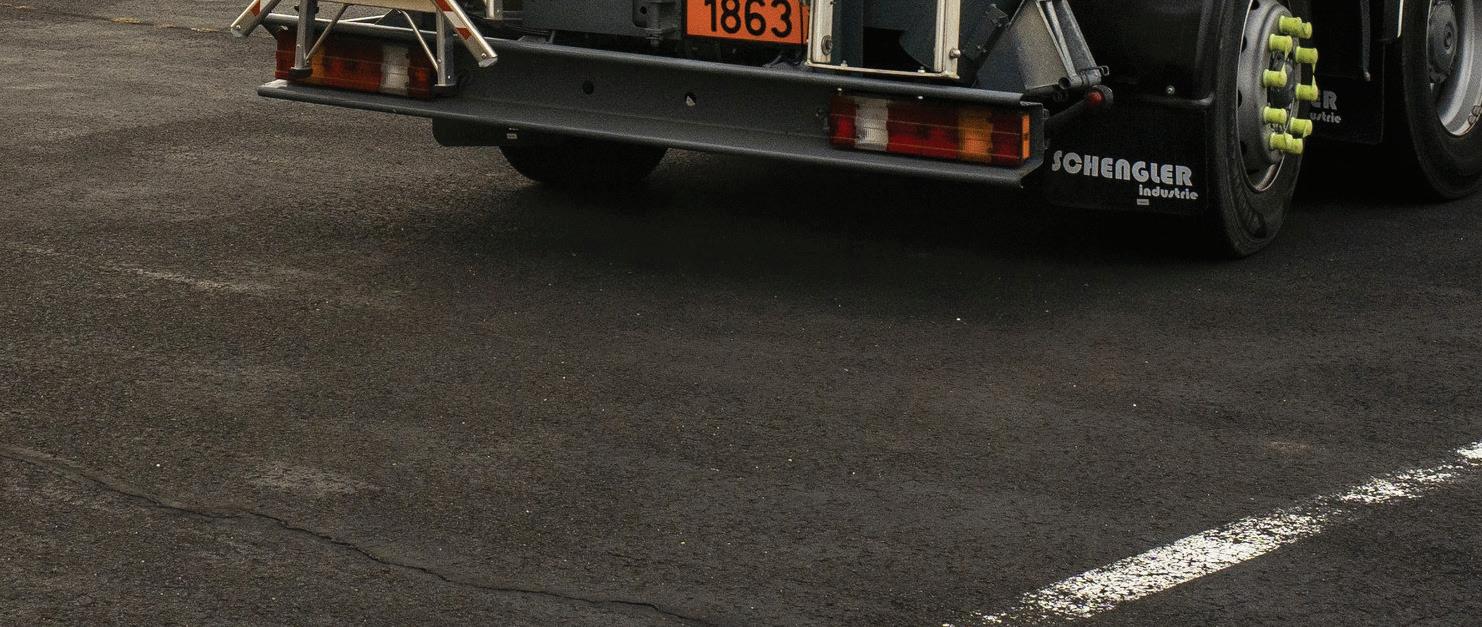

We will continue to play a vital role in the industry, working with airlines, fuel producers and trade bodies, to increase the supply and demand of sustainable aviation fuel.
Q: What is the current state of Air bp’s SAF supply and production?

AM: Air bp has a portfolio approach to our sourcing of SAF similar to what we do with traditional jet today. This includes:
• Agreeing off-take agreements with third-party producers - this security of demand can help third parties secure investment;
• Investing in third-party production facilities including off-take agreements. In 2016 Air bp entered into a strategic partnership with Fulcrum BioEnergy. The Californian company is building its first plant in Reno, Nevada, which will produce sustainable transport fuel made from household waste. Fulcrum intends to construct additional facilities and will supply us with SAF from several different plants;
• Investing in our own refineries and facilities. As mentioned above we collaborated with NetJets Europe when it became the first customer to purchase Air bp’s ISCC PLUS certified SAF in Spain. In February, bp the parent company of Air bp, announced the first industrial production facility in Germany to use co-processing to produce SAF from waste and residues. bp plans to invest in three stand-alone bioplants and convert up to two refineries to bio-refineries to meet demand for biofuels including SAF.
“ We will continue to play a vital role in the industry, working with airlines, fuel producers and trade bodies, to increase the supply and demand of sustainable aviation fuel.”












“ There are five different technologies to produce SAF which, together, Air bp believes can supply the volume of SAF required globally.”
Q: Producing sustainable aviation fuel from waste oil is just one option, what are the other options Air bp is looking at and/or exploring?
AM: There are five different technologies to produce SAF w hich, together, Air bp believes can supply the volume of SAF required globally.
The five overarching technologies are: Hydroprocessed esters and fatty acids (which makes up the majority of what is supplied today); Municipal solid waste (MSW); Alcohol to jet; Second generation biomass and eSAF (where SAF is produced from combining green hydrogen and carbon dioxide).
The choice of technology used will depend on the effectiveness in reducing carbon emissions, cost, feedstock availability in different parts of the world and society preference via policy which can also prioritise certain technologies and feedstocks.
bp plays a number of important roles to help scale up the supply of SAF both in the short and long-term:
bp plays an ongoing role in researching and developing the technologies required to bring the different SAF production technology options to commercial production. For example, bp and Johnson Matthey have developed a simple-to-operate and cost-advantaged Fisher-Tropsch technology that can operate both at large and small scale to economically convert synthesis gas, generated from sources such as municipal solid waste and other renewable biomass, into long-chain hydrocarbons suitable for the production of SAF.
As fuels and quality experts, Air bp plays a role in securing approvals for new SAF pathways, as part of the taskforces
within ASTM. For example, Air bp is leading the ASTM Task Force seeking to increase the sustainable aviation fuel content of traditional jet, available from refineries co-processing renewable feedstocks. The hope is to raise the limit from 5% to 30%, to benefit customers and global supply.
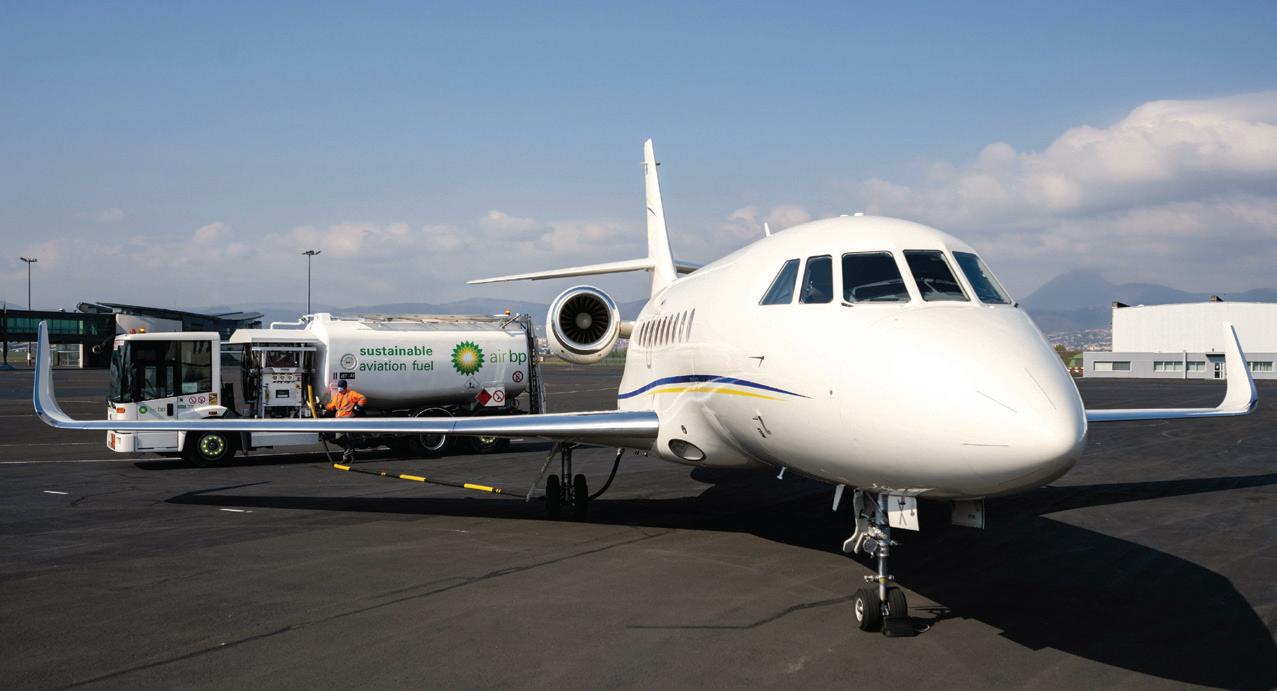
Q: How far off are we from business aviation running on 100% SAF?
AM: The continued education of all stakeholders about t he use of SAF is important. SAF, made from sustainable feedstocks and blended with traditional jet fuel, is certified as Jet A-1 or Jet A and therefore safe to use as a drop-in fuel. This means SAF can drop straight into existing infrastructure and aircraft and can be handled in the same way as a traditional jet fuel. So, no changes are required in the fuelling infrastructure, or for an aircraft wanting to use SAF. It has the potential to provide a lifecycle carbon reduction of up to 80% compared to the traditional jet fuel it replaces.
At the moment, production of SAF is limited as the higher cost for SAF compared to jet fuel is preventing wider uptake. A reduction in cost is the key to greater use SAF. Air bp is working with customers to create more demand in the short-term which will lead to more production and hopefully lower costs in future.
We believe that change will be driven from a multitude of angles. Changes in government policy or regulation (e.g., sustainable aviation fuel mandates and incentives); airports and aircraft operators recognising their need to play a role and the benefits (initially perhaps reputational but ultimately licence to operate given the preferences of passengers, corporate travellers and air freight customers); and suppliers –investing and developing technology and scaling up, e.g., fuel production technology; aircraft technology.
We support fully proven ambitious and achievable SAF blending targets, as well as policies which promote the development of SAF. Many of the SAF production technologies are still to be scaled up, but we believe the best way to make them viable is a stable long-term policy framework that gives confidence for investors to back these projects.
The highest blend of SAF possible today, is 50%, however there are many initiatives testing 100% SAF blends in ground and flights tests to determine if it will be safe in the future to increase these blending limits. Jet engine manufacturer Rolls Royce and aircraft manufacturer Airbus announced in November 2020 testing of 100% SAF blends, Rolls Royce confirmed their first test in a business aviation aircraft in early 2021 and United Airlines flew a passenger flight with an engine powered by 100% SAF in December 2021. Air bp will provide the fuel for the very first run of the Rolls-Royce UltraFan® demonstrator engine, which will be carried out entirely on 100% SAF later this year.
BAM





Andrew Tarry, Head of Sales at JetMS Completions, London, on the company acquiring RAS Completions and RAS Interiors, based at Biggin Hill
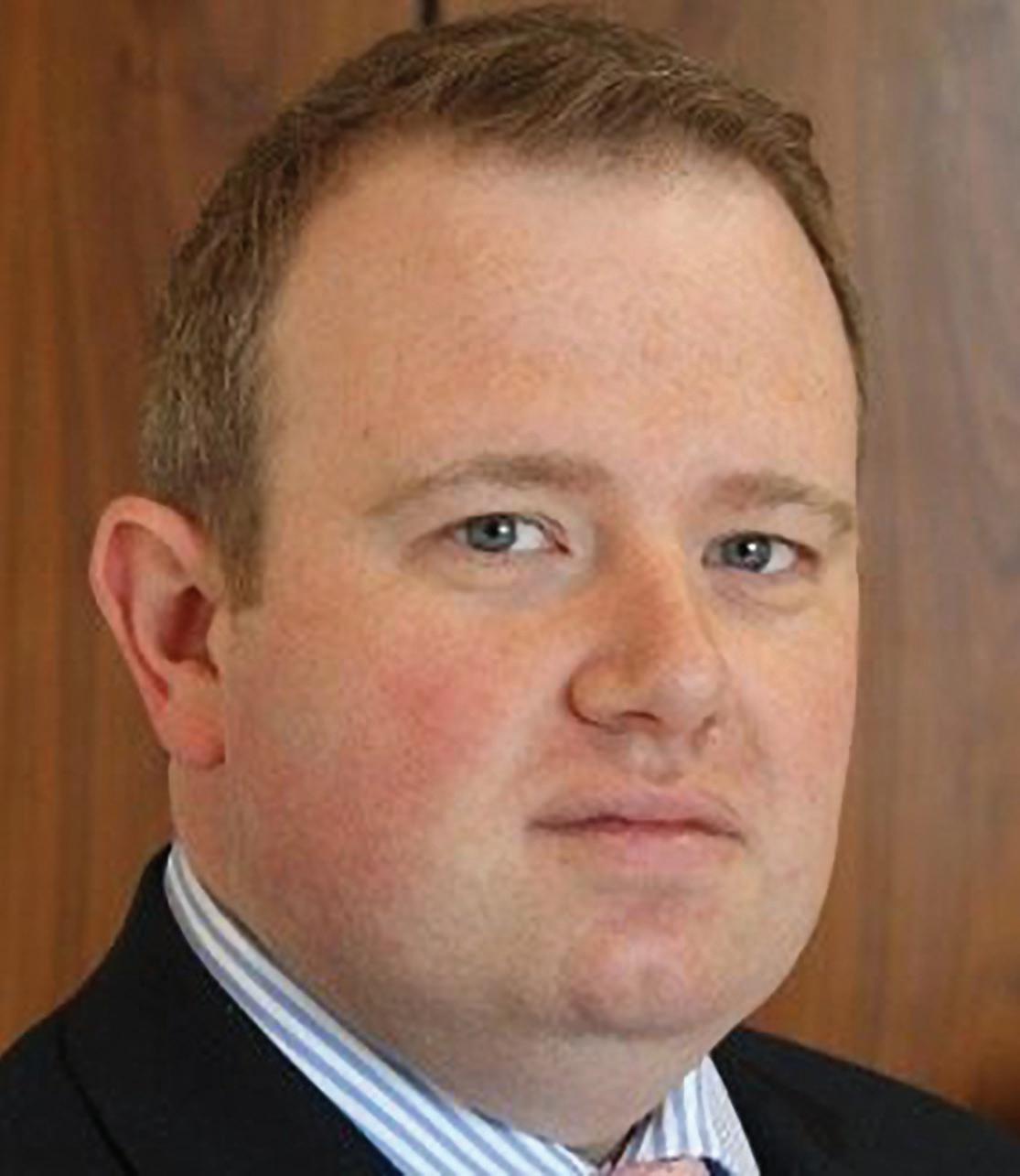
Q:
Andrew, what can you tell us about JetMS acquiring the RAS Group?

AT: At the start of March last year, JetMS, which is a global provider of base and line maintenance services, acquired the RAS Group, based at Biggin Hill. I was with RAS at the time and becoming part of a much larger group was great for us.
The parent company of JetMS is the global aerospace business group, Avia Solutions Group so that brought us into a worldwide network and has already been tremendous for business. JetMS has facilities at Vilnius, Lithuania, and now, here in London.

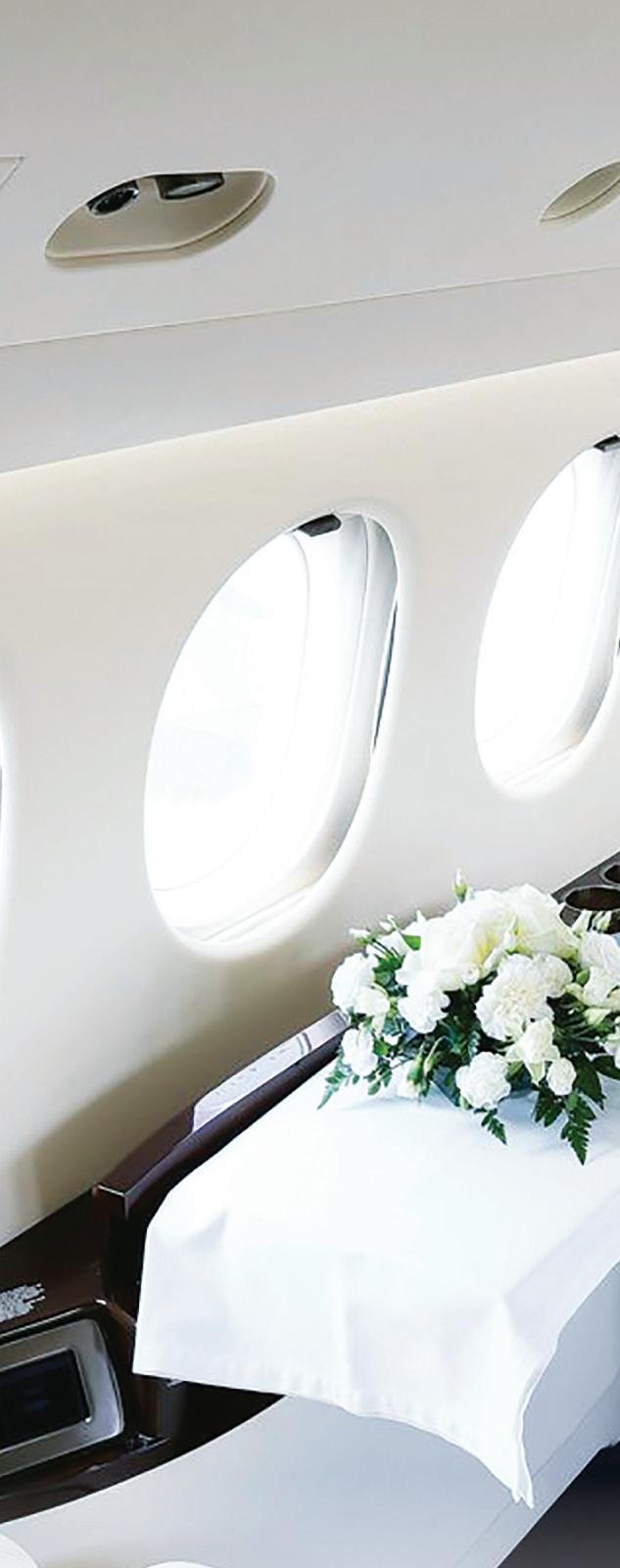
In total, Jet MS has some 15,800 square metres of hangarage and workspace. Our dedicated team of professionals are able to offer a wide range of maintenance procedures, interior and exterior refurbishments and paint, and AoG support. The company JetMS is based in Vilnius, Lithuania but is able to support customers worldwide









AT: RAS was founded 26 years ago, back in 1996 at London Biggin Hill Airport. The company specialised in providing aircraft painting services at the time. In 2011 it expanded to provide interior refurbishment services to both VIP and commercial jets.



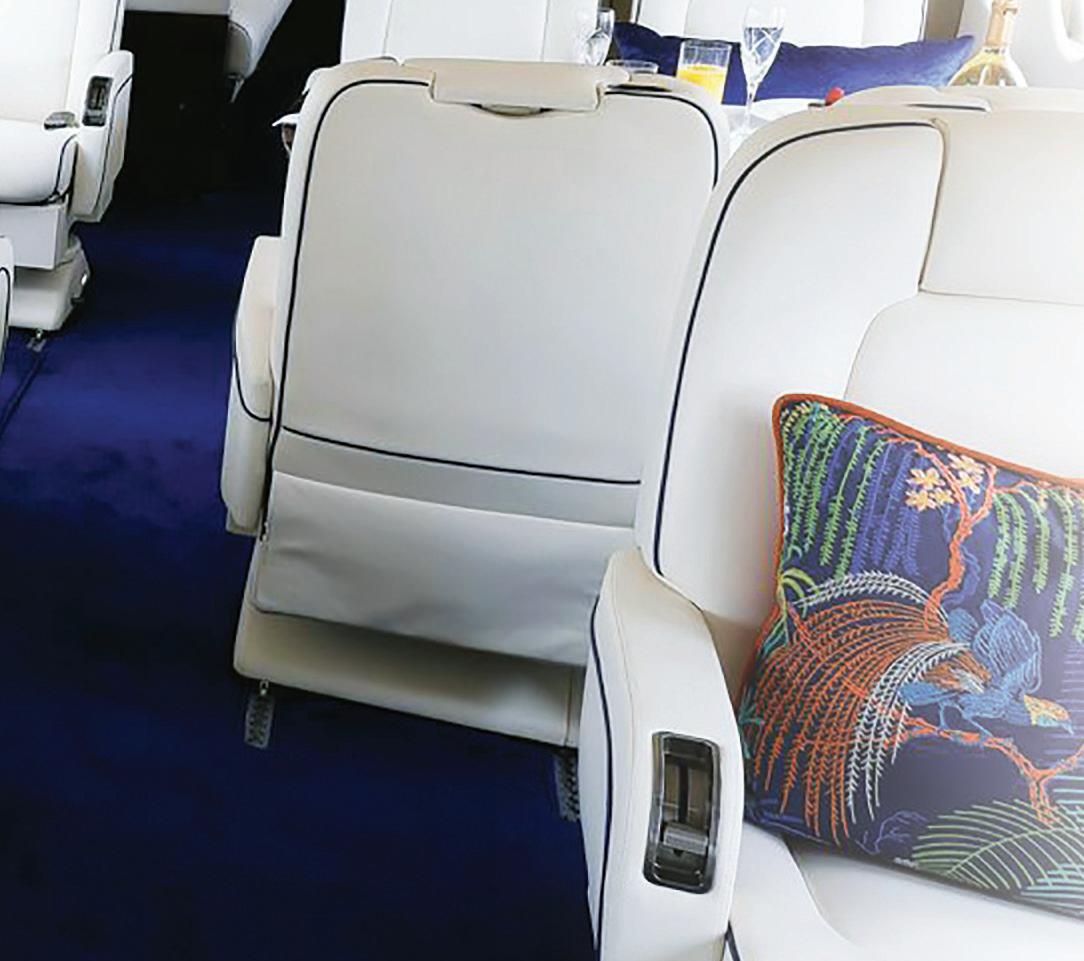
In March 2022, we rebranded as JetMS Completions. The aim of the rebranding was to make it clear to the market and to potential customers that we are one organisation across our various locations. We are able to offer a full range of turnkey solutions and services,

from aircraft painting to interior refurbishment, component and monument manufacturing, and interior design and certification services.

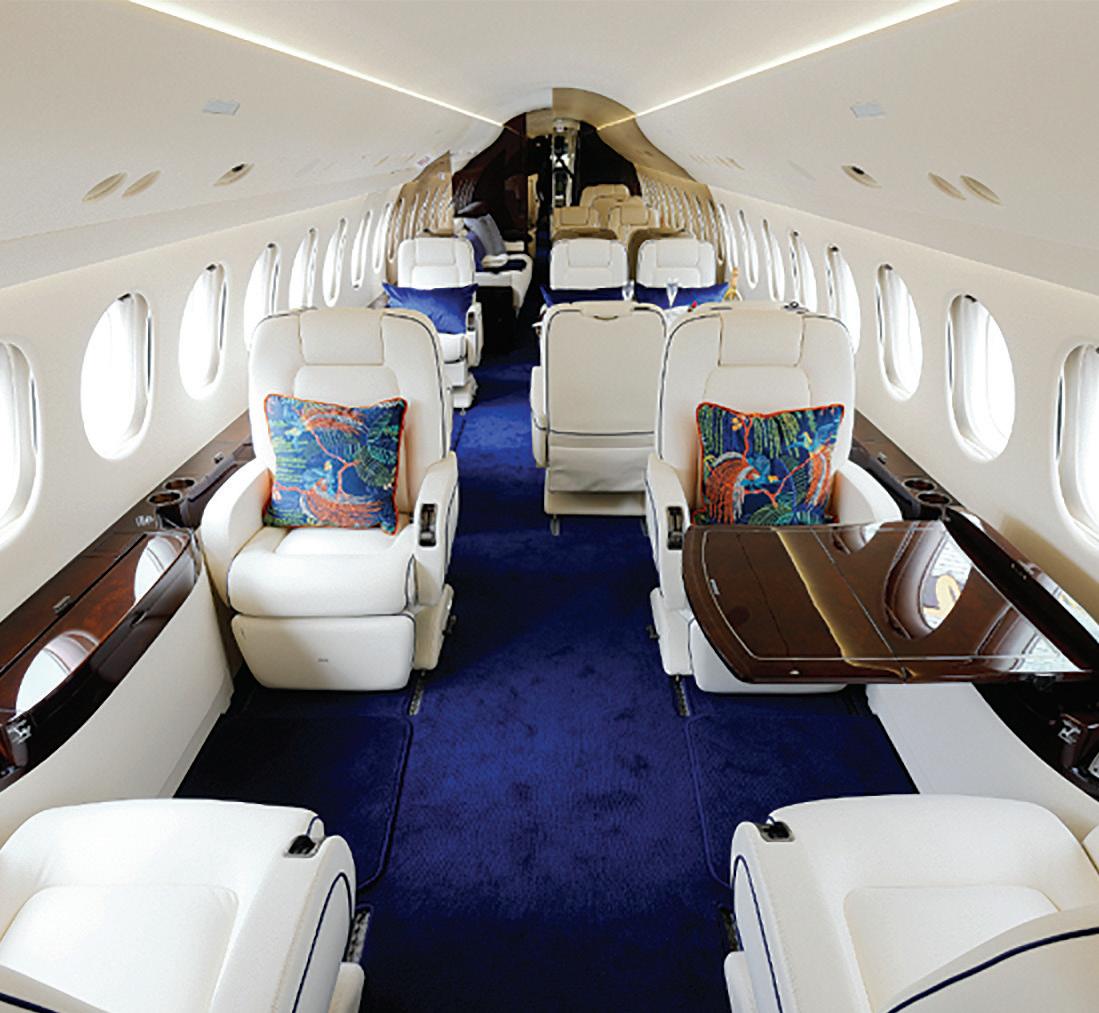
We also have a full MRO capability for regional and business jets. We can accommodate aircraft from the size of a Hawker up to a Boeing 747-8. The presence of JetMS Completions within the group allows us to offer a virtual completions centre network globally.
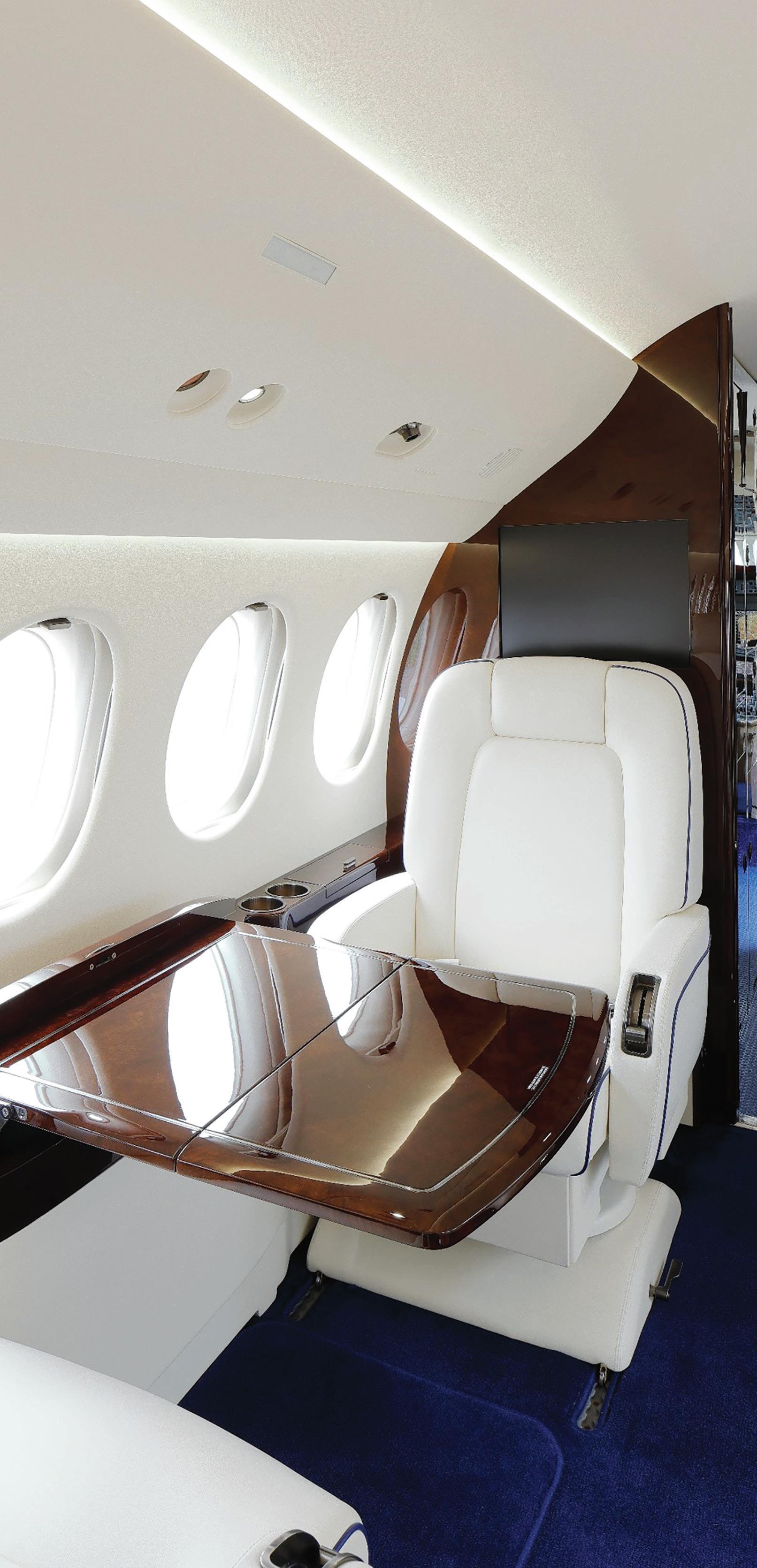
This means that the customer has a choice of location as to where they want to go for a maintenance check, for example. We will fly our technicians out to their site, wherever it is, and work on the jet in-situ to carry out a full cabin refurbishment service.
This is a tremendous advantage for owners and operators, as they do not have to waste additional downtime flying their jets to one of our locations. This is a real break from tradition and puts us in a very unique position to satisfy customer needs in a really efficient manner. We are very focused on going to the customer and servicing them in the location that is most convenient for them.
Q: What has the market reaction to the acquisition been like? Has it been very positive?
AT: Very much so. The market reaction has been very positive indeed. We are very proud of the job that our marketing team, headed by Akville Bakunaite, has done in rebranding us. She and her team have produced a fantastic brand and backed it with strong publicity through both traditional and new media channels.
“ We are able to offer a full range of turnkey solutions and services, from aircraft painting to interior refurbishment, component and monument manufacturing, and interior design and certification services.”
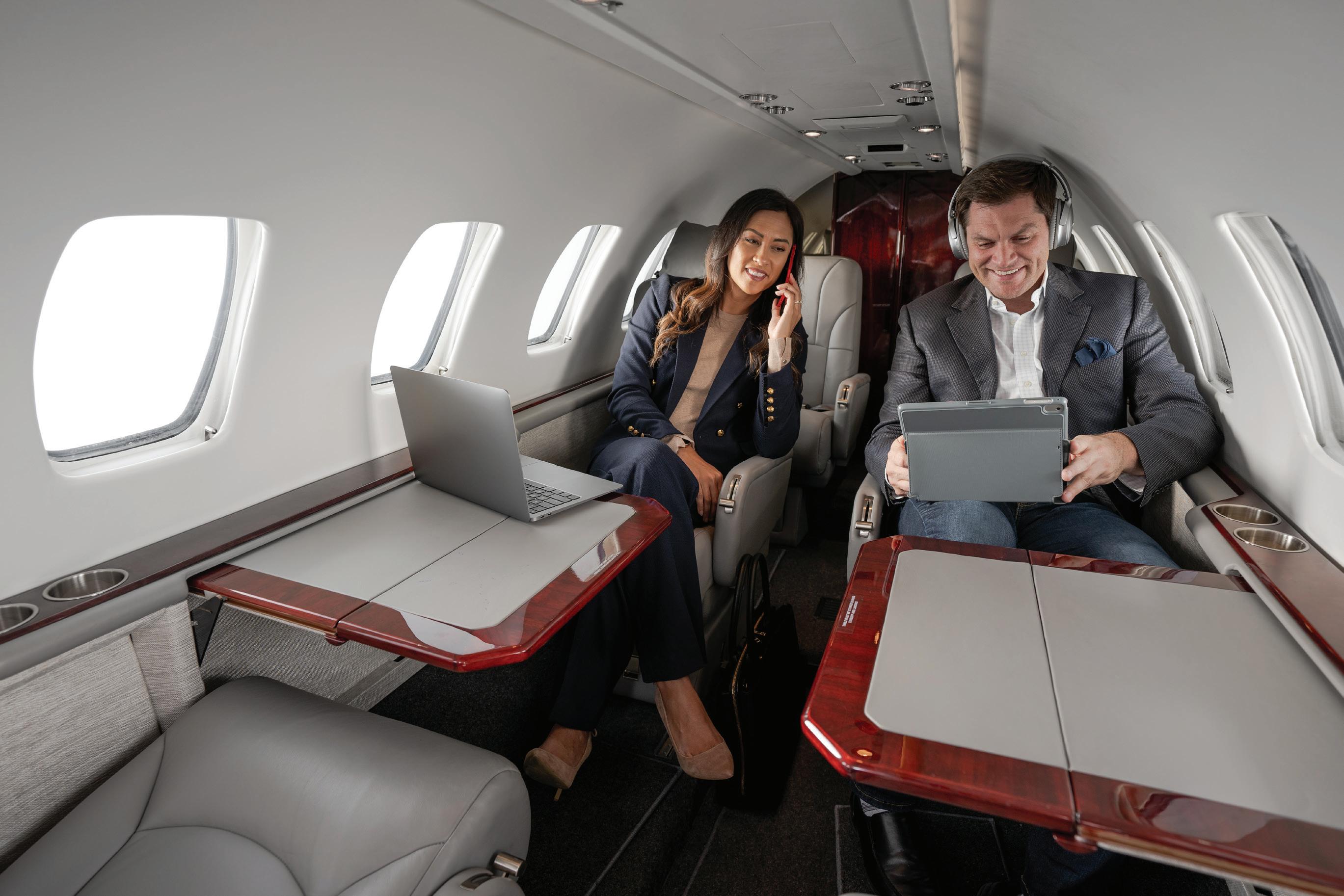
“
The number of phone calls that we have had recently because we are part of a much larger group, has been very gratifying. The larger grouping really helps to promote the message that we are now a global player.”
The number of phone calls that we have had recently because we are part of a much larger group, has been very gratifying. The larger grouping really helps to promote the message that we are now a global player. It is being reflected in orders and projects in the US, the Middle East, and the Far East.
At the same time, we have been able to increase our headcount and invest in staff, facilities and equipment. So, we now have a larger service offering than we had a year ago, and that is tremendous for reassuring clients that we can be seen as a trusted partner for the long term, not just as a transactional player.
Q: What is demand like for the paint shop at your Biggin Hill facility?


AT: We are seeing tremendous demand. The paint shop is full, with orders stretching for months ahead. It is big enough

now to handle a Global 6000 and we are undertaking upgrade work to increase the capacity of the paint shop.
The market is very healthy. We are experiencing strong demand right now for coatings that improve the life of an aircraft’s paint job. We are an authorised applicator of A-Glaze. This is a nanocoating that prevents UV damage and enhances an aircraft’s existing paint job. We have been applying it remotely to customer aircraft, sending our applicators and technicians out to the customer’s site. That approach has worked very well for us. We are also painting regional jets, and demand from that market continues to be strong.

We are the only paint shop within the Avia Group, so we are enjoying referrals from companies across the Group. We now have what amounts to a greatly expanded sales and referral force generating business for us.
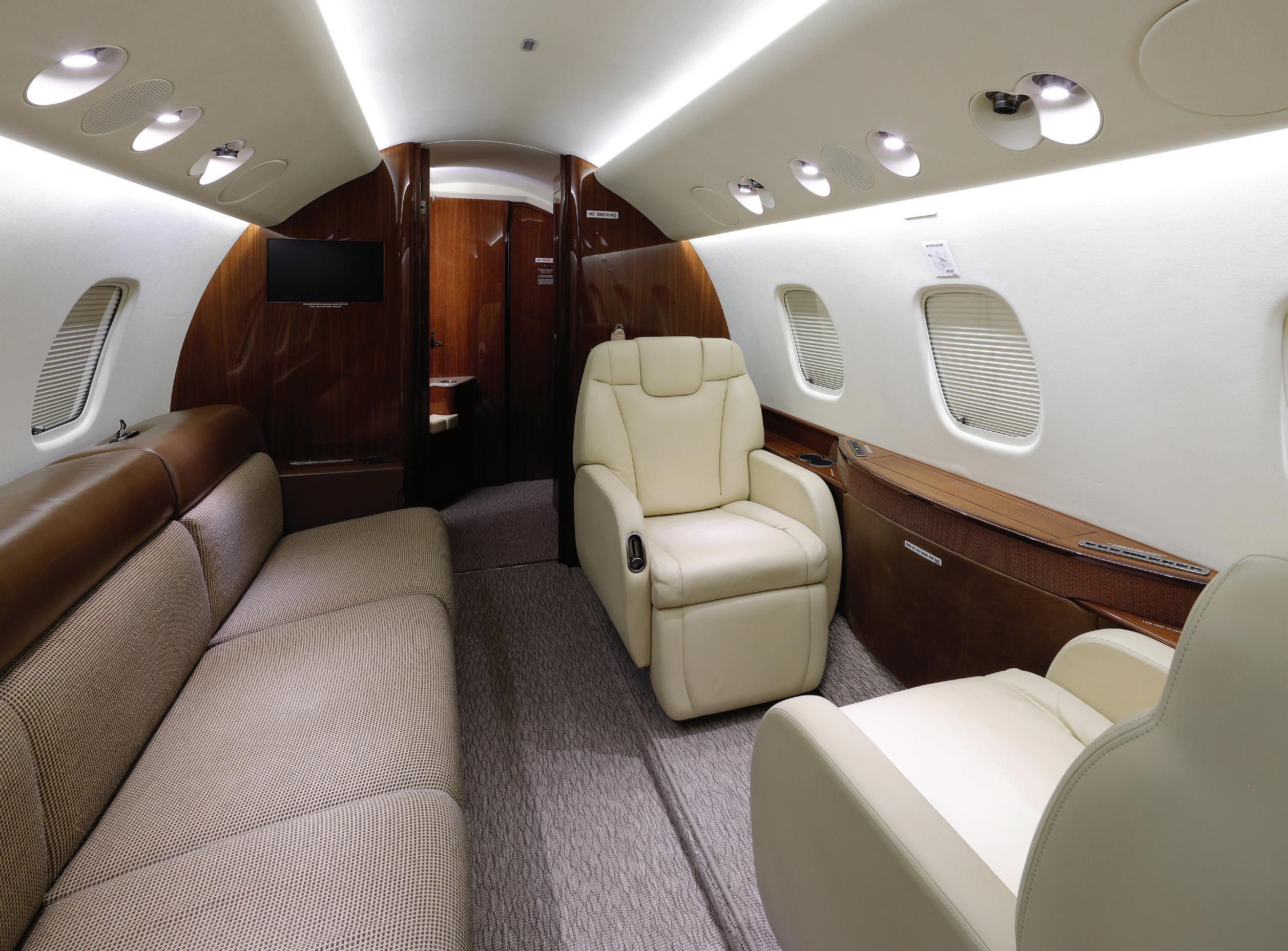































Completed interior refurbishment on a Challenger 605



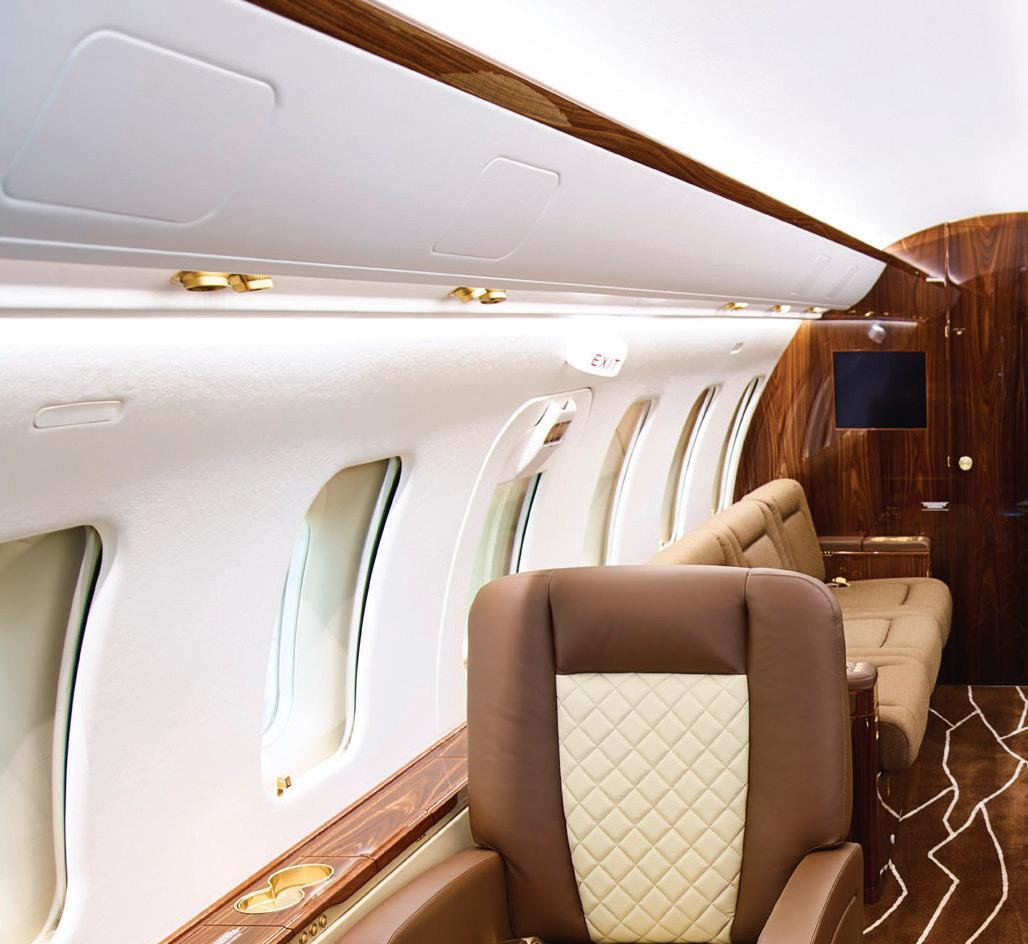
Used with permission from the aircraft owner
Christian Schusser, CEO, Q.C.M. design, and Erika Guillaume, Compliance Verification Engineer Cabin Safety, on the complexities of the design business

Q: How did you get involved with Q.C.M. design, Christian, and what does the company specialise in today?
CS: I started working with Q.C.M. as an instructor and consultant in July 2011 and began setting up Q.C.M. design shortly thereafter. Parallel to the daily business of training in regulatory matters like Part 21 and providing consulting services for businesses, we built our own Design Organization. Just before we received the EASA Part 21J approval, I interviewed a young graduate from Australia, Erika Guillaume, and was impressed by her willingness to learn all the complexities involved in taking an aircraft cabin completion through safety compliance testing. Q.C.M.
design received the Design Organization approval in May 2013, and Erika has been with me since then. Alex Luley, a former colleague, also joined Q.C.M. design at that time, and I’m proud of how we’ve expanded to where we are today.
Along with Cabin Safety and Interior Changes, we also certify and engineer Avionics upgrades i.e., KU Band Installations, and Cabin management and inflight entertainment systems, which are all complex, different, and challenging on their own.
Cabin Safety is a hugely demanding field, particularly since there are literally thousands of different materials that can be installed into an aircraft cabin completion. Each of these materials has to meet the requisite flammability and safety tests, so the learning curve involved in our operation is pretty steep. Erika is now one of our best cabin safety compliance verification engineers and hiring her has turned out to be one of the best decisions I have ever made!
EG: With a lot of guidance from Christian and Alex, and with a great deal of study, I was able to get on top of the knowledge database at the core of our business. It has been a very interesting journey. Materials change all the time and they have changed hugely since the industry fire regulations first came into play.

Q: So, what is involved in ensuring or verifying cabin safety in a business jet?
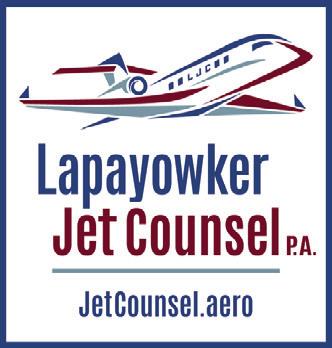
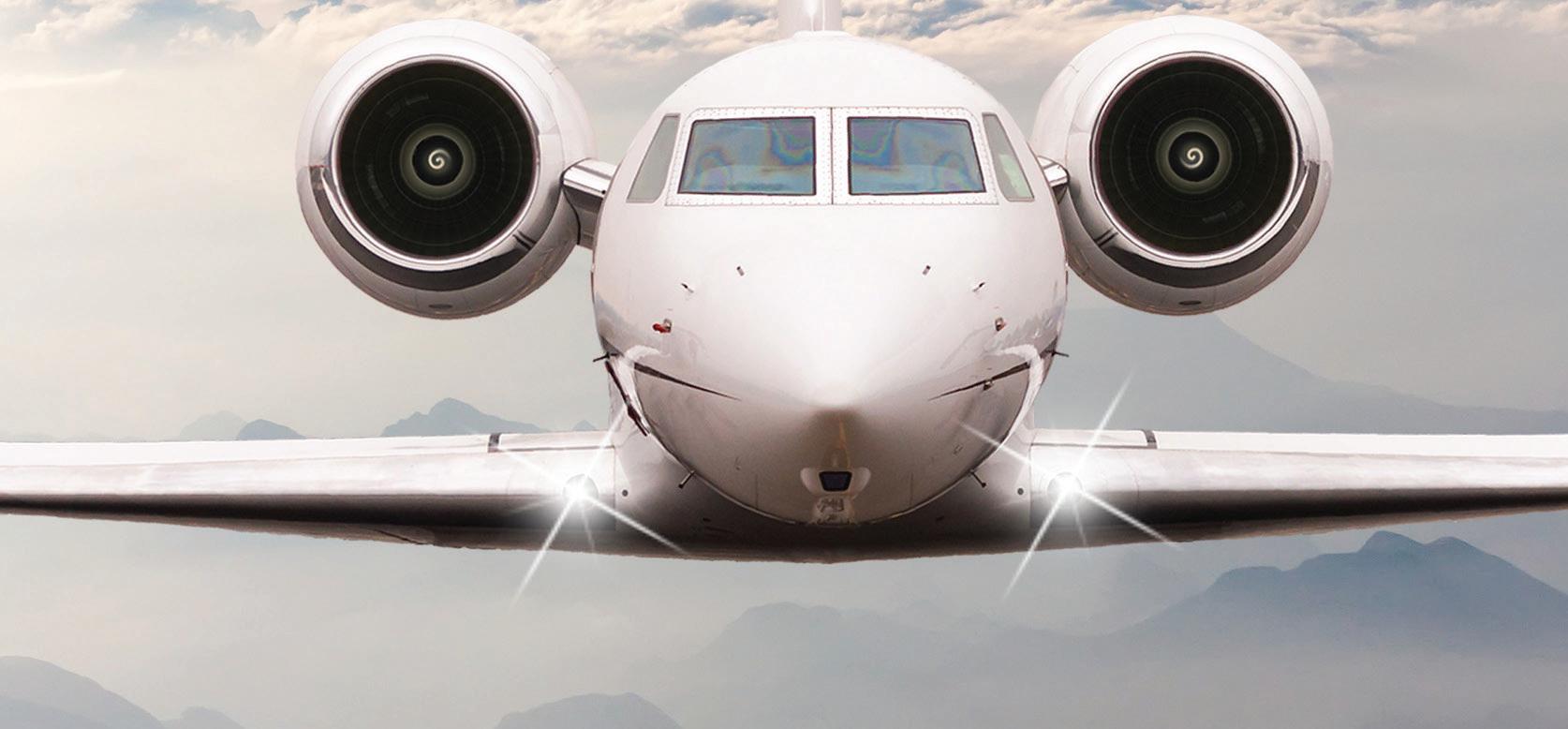


EG: The industry literature is full of pictures of beautiful VIP cabin interiors and nothing in the pictures really gives you much of a hint as to the complexities involved in certifying each of those interiors.
As soon as a customer wants to renew any top layer materials, be it carpets, the leather on the seats, galley refurbishments or any of the wood panels or fabrics, we have to plan and certify the new composition of the materials involved, in terms of safety. In short, any material that is part of a cabin has to go through extensive flammability testing requirements to prove its flammability and safety characteristics.
CS: We have a mandate from EASA to certify these changes. Our partners in these projects are Production and Maintenance organisations located all over the world, but mainly in Europe, who perform the changes on the aircraft which are then approved by us or EASA in cases of STCs.
Recently we opened our own flammability laboratory, with our invented “Q.C.M. FlameLab 4.0”, which provides automated, human-factor free results for 25.853 Flammability Testing requirements. This is a computerised flammability
lab, where every test is performed and analysed by software. The test is recorded in hi-definition infrared video, which provides complete traceability on every test we do.


The fact that the results are free of human-factor errors is hugely appreciated by the business aviation industry.

In my 22 years of industry experience, it has happened very often that two or more labs have tested an identical material, each with differing results, and it showed us very clearly that flammability tests with humans in the loop can go awry. We wanted a standardised, automated, highly precise, and transparent system that is software-driven and automates all stages of the test.
We finished the software for this system about a year ago and then we built our lab up from scratch, which became operational in Poland in September 2021. At the moment, we have one highly experienced flammability manager who runs the lab in Lodz. Our services are already very much in demand. We are winning new customers because of the transparency and the complete traceability of our results.

The challenge we have now is to get the word out to both the commercial and business aviation industries. Our message is that Flamelab 4.0 provides our customers with the safest cabin they can possibly fly with.
Q: How important are the MROs to your operation?
CS: Very important. We certify and engineer the changes that MRO organisations implement to their clients’ aircraft. Erika deals with maintenance organisations across the globe. One memorable project that she was involved in was a major refurbishment of two EU-registered Citation 560s, where both aircraft were flown into a US MRO shop.
They needed the EASA Change Approval on the cabin safety side, and we were able to organise and coordinate the whole project from the beginning up to the departure of the aircraft, despite the six-hour time difference between our site and theirs. Every year brings some of these special projects to our door.
Q: What are the challenges in a complex refurbishment?



EG: There are several: the first is getting a complete configuration summary of the aircraft, including burn test results and in the majority of cases, there is always a lack of data. The second challenge is applying our surrogate process; the third is having a Flammability Test Plan and performing tests prior to production. These are only a few obstacles to overcome but are the keys to a successful complex refurbishment.
CS: I have to express my appreciation to Erika. As a mother of two small children, and working mostly from home, she always performs at the highest level for us. It really shows what can be achieved with team members working remotely. |BAM
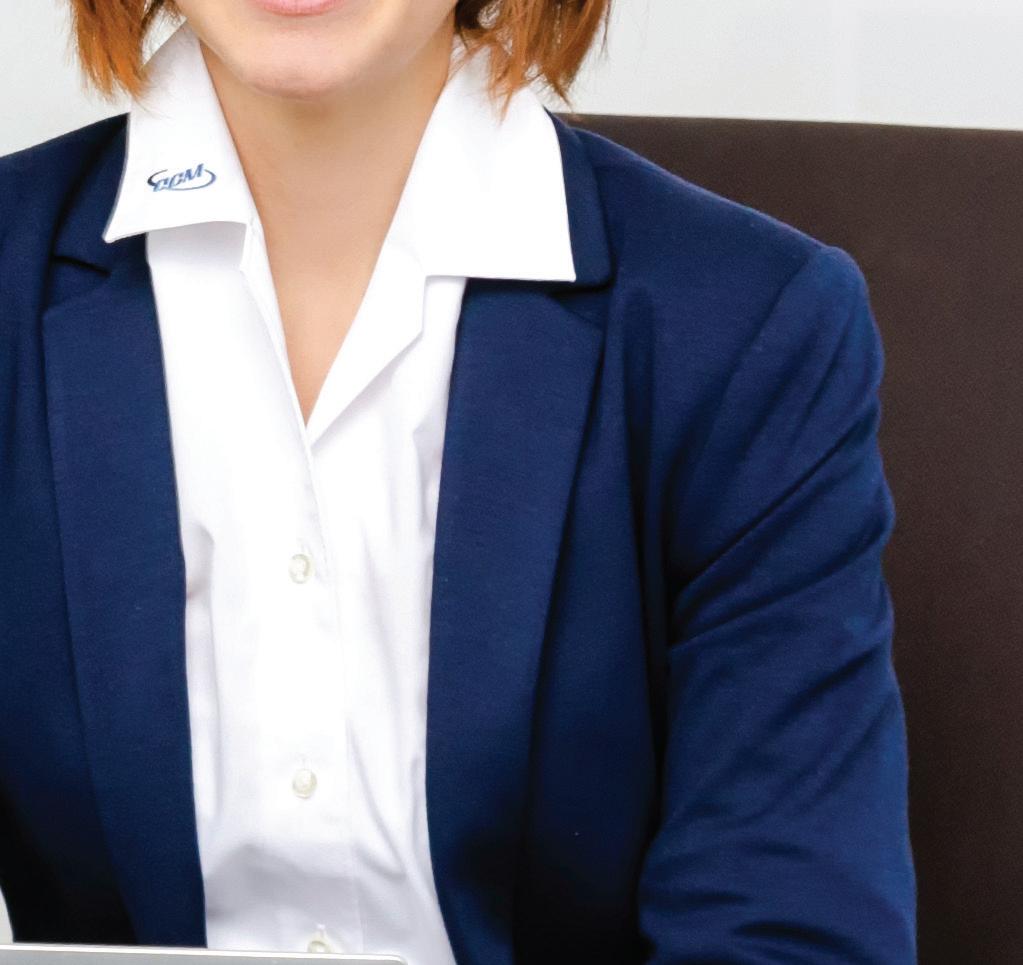
“ The industry literature is full of pictures of beautiful VIP cabin interiors and nothing in the pictures really gives you much of a hint as to the complexities involved in certifying each of those interiors.” - Erika Guillaume


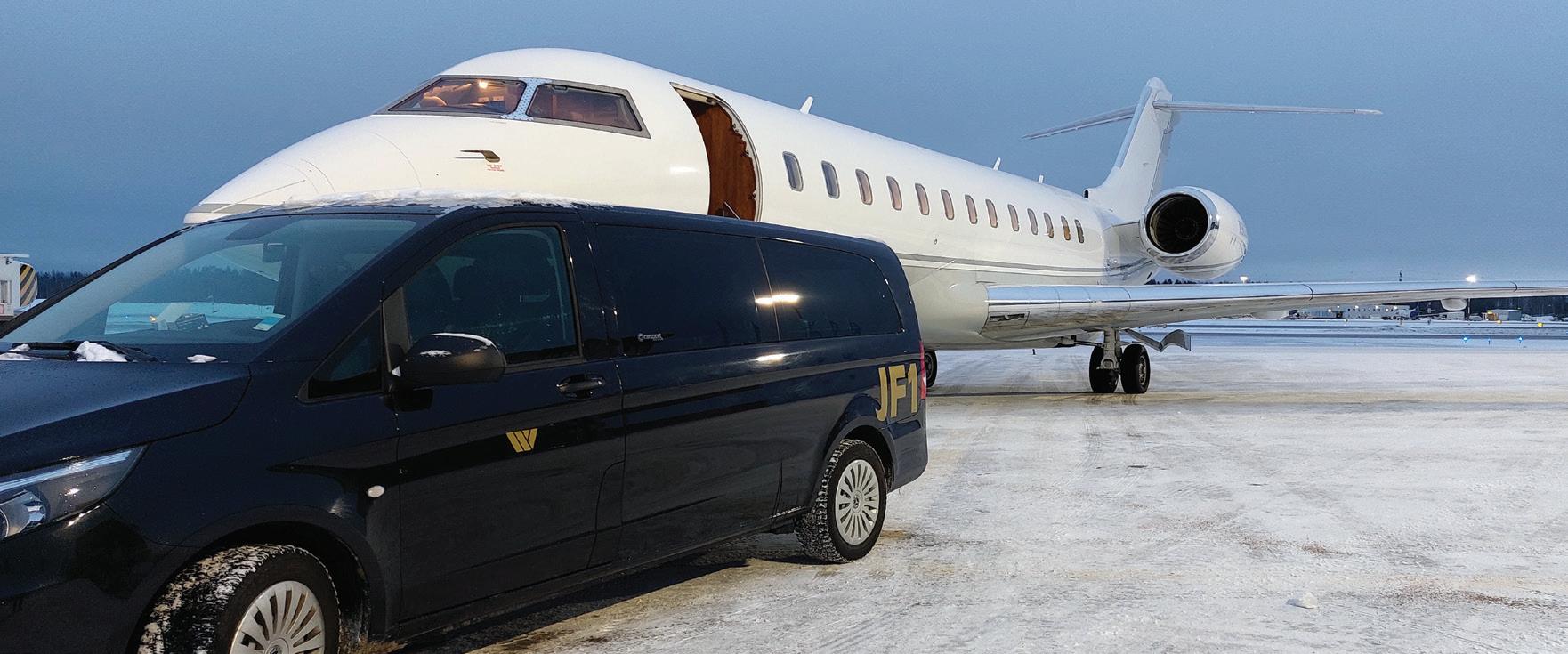
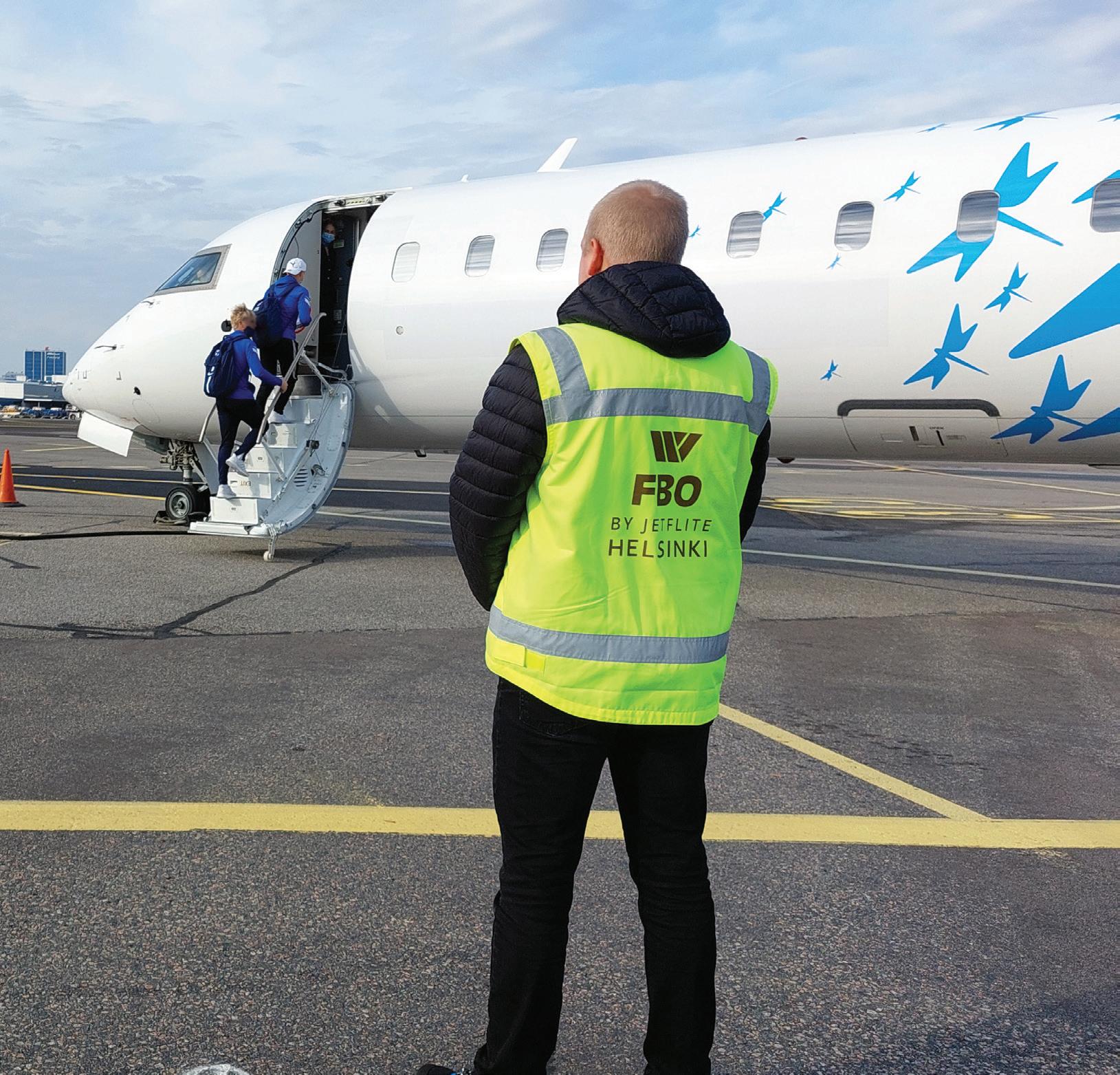

Q: Emilie, as we can see from the photos, the design you’ve created for this Falcon 7X is absolutely stunning. What’s the story behind it?

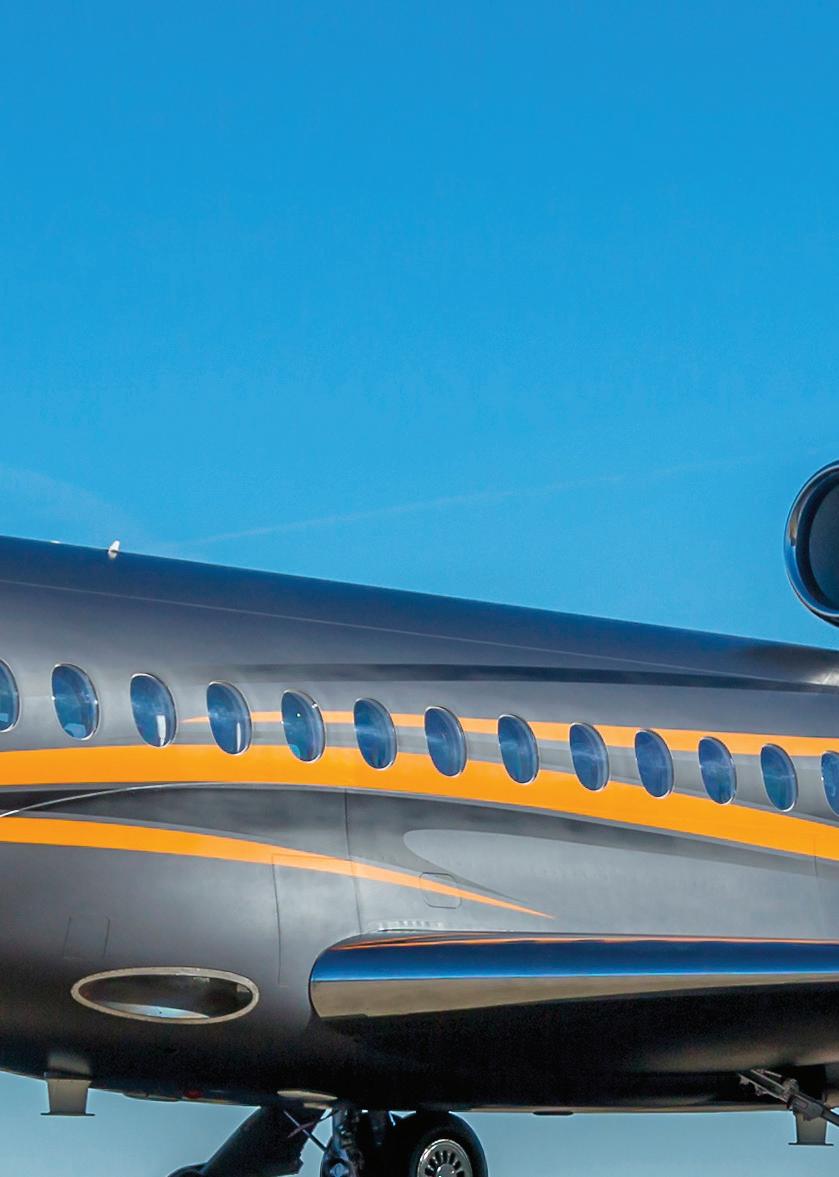
EH: We had a really amazing client who wanted a completely different, unique paint design for his Falcon aircraft. He gave me creative liberty to come up with something totally different, with the condition that whatever we did, it needed to be really innovative, and it needed to continue to astonish folks for at least the next four or five years.
I worked out several renderings and then I said to myself, what if we made the whole aircraft a matte grey? The idea of matte colours, rather than gloss, is starting to make an impact in the high-end automobile space. The client’s aircraft had a white base to it, and we wanted to go with something that would give it a gunmetal grey look. The idea was to finish up with something that would stop people in their tracks when they saw it.
The problem, however, was that we were in unknown territory both in regards to the paint and the application


processes. My guys were understandably nervous about it, and we leaned very heavily on the Sherwin-Williams team through this project.
Q: What were the issues from the Sherwin-Williams side, Julie?



JV: Sherwin-Williams manufactures and sells automotive paint, of course, and we were well aware of the growing trend, at the high-end, for flat blacks and flat silvers. But there are real challenges with aircraft, where you have these huge areas to paint. When you deal with gloss, you can buff out and get rid of any minor imperfections. If you buff a small mistake in a matte coat, you can see it immediately. It is very unforgiving.
So, we had to develop a new specialty Clearcoat along with a new application process, to handle a plane of this size.
EH: We made sure that we had a wet edge between each finished section and the new section so that the joins were seamless. Sherwin-Williams had been working on solutions for this. However, we only had thirty days to do the whole job, so that was real pressure.
 Emilie Harbour, Corporate Aircraft Lead Designer, Interior & Paint, at West Star Aviation, and Julie Voisin, Aerospace Coatings Global Marketing Manager at The Sherwin-Williams Company, on a unique paint job on a Falcon 7X
Emilie Harbour, Corporate Aircraft Lead Designer, Interior & Paint, at West Star Aviation, and Julie Voisin, Aerospace Coatings Global Marketing Manager at The Sherwin-Williams Company, on a unique paint job on a Falcon 7X
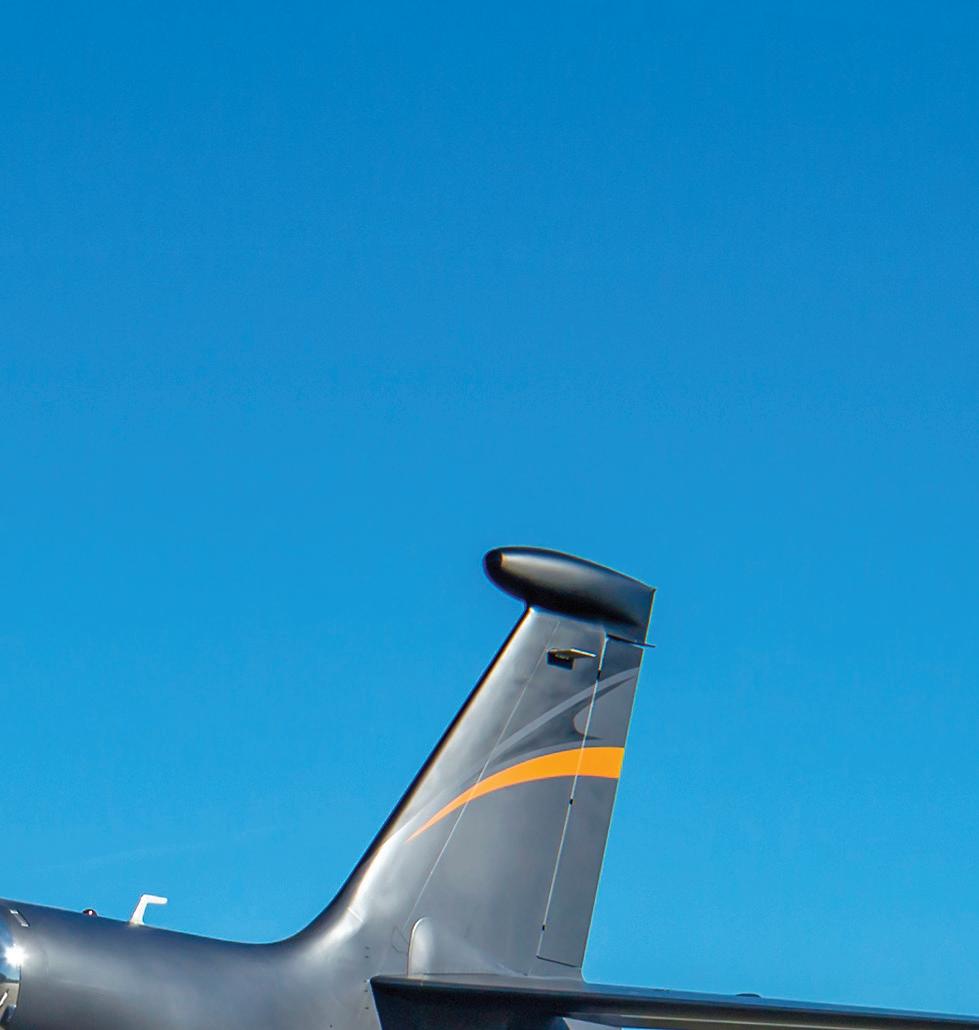



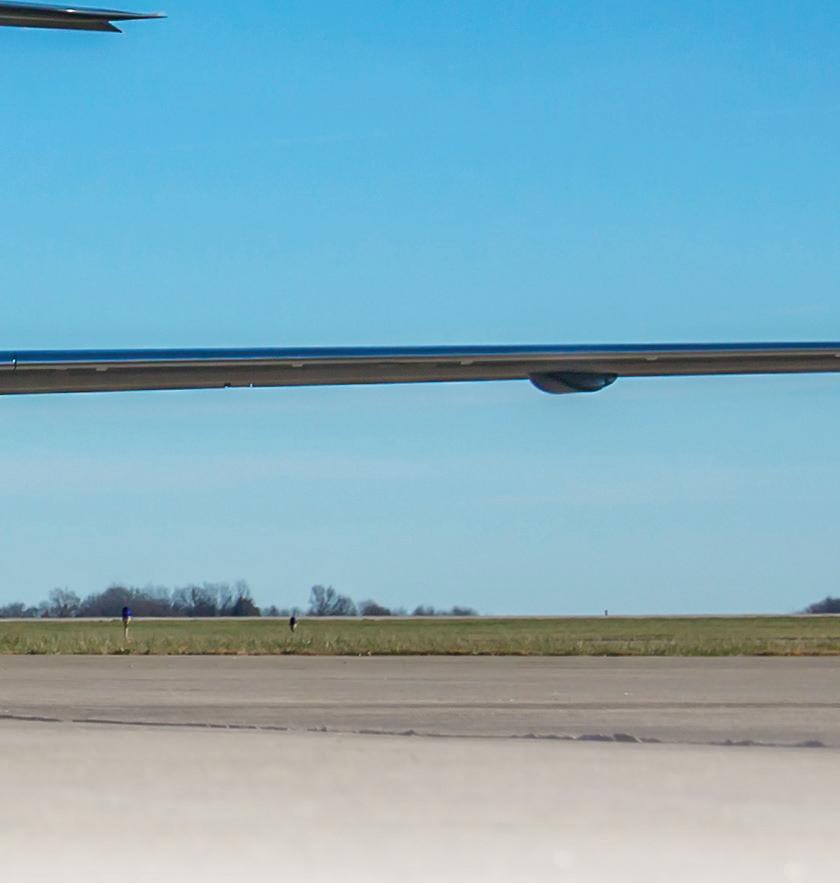

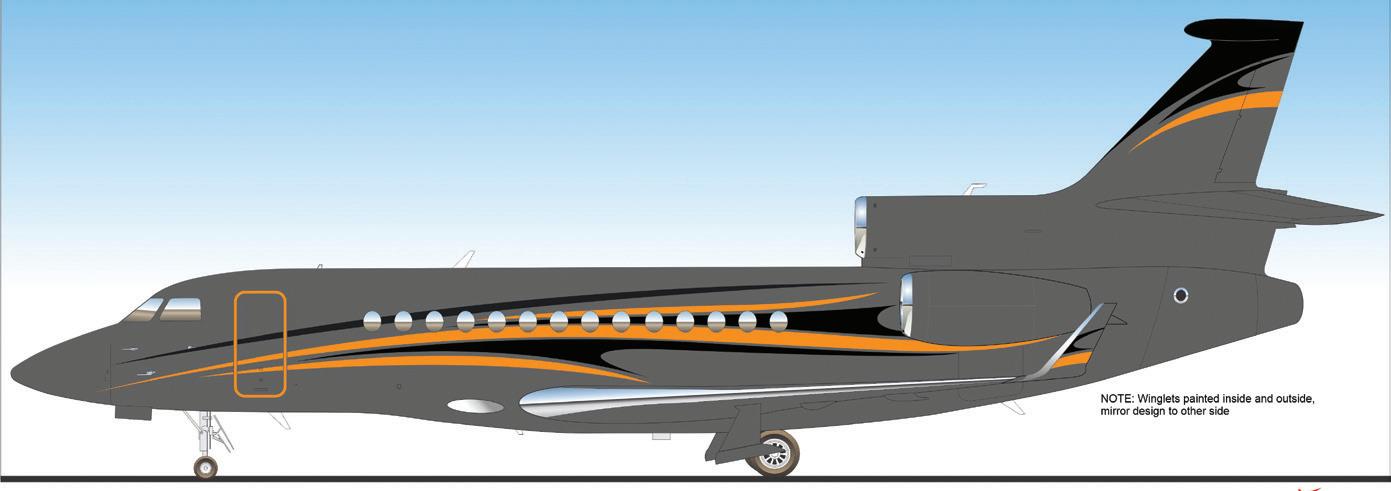










JV: We had already done some aircraft in matte, so when I got the phone call from Emilie, our team was able to provide her team with enough details to make them feel confident about the process.
EH: We had to firm up on the paint choices two weeks prior to the start of the job. The client was reluctant to decide until we could provide him with a spray panel instance, so he could see the effect. Once we got the go ahead, everyone worked together to make the job happen and the customer was ecstatic with the result.
We are now getting ready to do a second matte paint job, this time as a black and grey combo on a Global Express. It will










be a pitch-black gloss over a grey matte, giving it a real two-tone feel.
Q: The vibrant orange stripes that you have on the Falcon look tremendous, but I understand that wasn’t the customer’s first choice?


EH: Originally, he wanted to go with a red stripe, but that would not have been as impactful. I suggested a Calypso Orange, and the client was thrilled with it.
Q: So, what was the matte paint that was used?

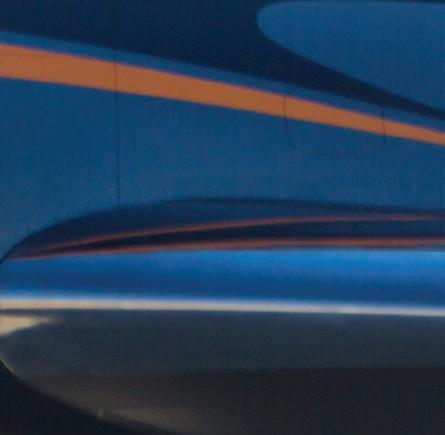
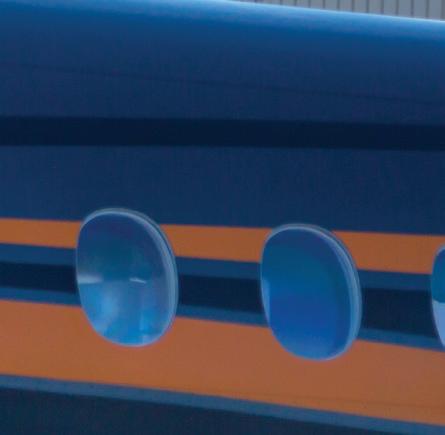





JV: The basecoat is Acry Glo metallic, then covered with our highest performing SKYscapes clearcoat, CM0850180F. We are delighted with the success of this project and look forward to Emilie and West Star’s next venture into matte colours! |BAM
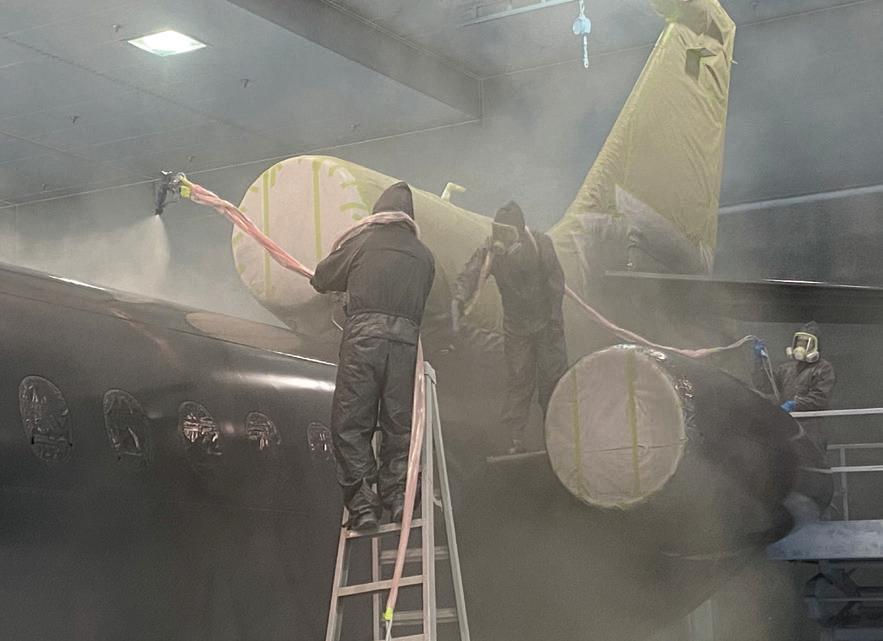


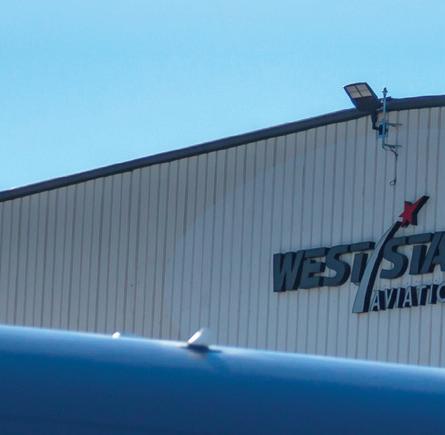


“The basecoat is Acry Glo metallic, then covered with our highest performing SKYscapes clearcoat, CM0850180F. We are delighted with the success of this project.” - Julie Voisin


Luigi Celmi, CEO of IDAIR, on the company’s strategy in 2022 and beyond




Q: Luigi, can you tell us a bit about the origins of IDAIR, for those who do not know the company well, and explain what the relationship is now with Panasonic, who was a founding partner of IDAIR, along with Lufthansa Technik?



LC: Yes indeed. IDAIR was set up in 2011 as a joint venture between Lufthansa Technik and Panasonic Avionics, specifically to focus on inflight entertainment, cabin management and communications systems for governmental and VVIP aircraft.


Both parties worked together for years prior to forming the joint venture which allowed IDAIR to naturally emerge from this cooperation. Our target market at that time was narrowbody and widebody VIP aircraft.
At the end of 2019, we changed the shareholder structure of IDAIR, which became a 100 percent owned subsidiary
of Lufthansa Technik. However, we still enjoy an excellent cooperative working arrangement with Panasonic. Although the shareholder structure is now different, we have continued to accomplish many positive things together.
Q: Are there any specific benefits from this change for IDAIR?

LC: The change in shareholder structure has supported focus and growth in key areas of the business, where IDAIR has been able to expand its Systems and Software Engineering teams to support further growth in both Custom VIP Cabin Solutions and Custom Software Solutions, despite the overall pandemic conditions for the global market.





Q: What was your experience through the pandemic?
LC: As a company, IDAIR has done well through Covid. Having a global organisation with teams based in the USA, Middle East and India, as well as our headquarters here in Hamburg, Germany we were already used to working remotely. Obviously, we have had to adapt to the new normal
“ The change in shareholder structure has supported focus and growth in key areas of the business.”


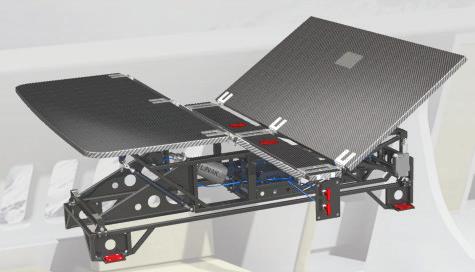
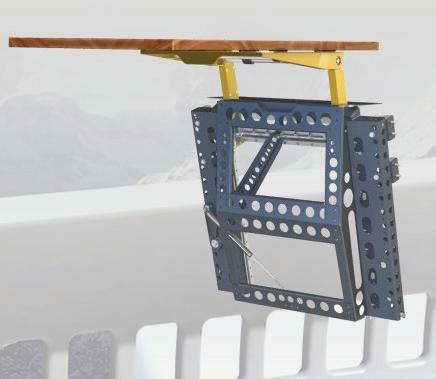








of working from home and having online meetings with our partners and customers, but it has been a successful transition.

One of the really positive surprises was that we did not see any decline in our business and fortunately, the market continues to be strong as far as the services we offer are


concerned. We have delivered a number of excellent projects over the last few years and are very glad to be working on new platforms such as the Airbus 321 Neo and the Airbus 350.We are also currently working on a Boeing 777 that will soon be completed, and on a Boeing 737 Max. So, these projects are keeping us pretty busy.

CH-




Right now, everyone is concerned about events in the Ukraine, and although we hope for a swift resolution of that conflict, the impact on our business has been minimal so far.
LC: The most exciting new technology based development for us in 2022 will be delivering the latest IDAIR4K system for our launch customer on a B737 Max narrowbody aircraft, which will also include a brand new IDAIR Graphic User Interface (GUI).
We have been working closely with our partners on the latest OLED displays, which beyond the best picture quality available in cabin, consume less power and are lighter than conventional displays, making them ideal for multiple applications within the VVIP cabin.
We have also been enhancing our Custom Software Solutions team to implement the latest software and data analytics technologies to increase the capacity of our product partners and further meet the needs of our VVIP customers.
Q: IFE is such a fast-moving field, particularly when you think of the kinds of high-end entertainment systems that people install in their homes. How do developments in the High Street impact your business?

LC: High street customers see the marketing campaigns of the latest technologies in the mainstream media and have these products available delivered to the home at the push of a button. So the expectation comparable products would be available for
in cabin solutions is completely understandable. However, as we know, new IFE and CMS products and technologies have to go through a very vigorous process of testing and certification before they can be put into an aircraft. Our latest IDAIR4K system offerings have been introduced to bridge this gap between the high street and the aircraft systems, meaning you are going to see some beautiful installations, paired with tremendously exciting interior designs, products and technologies very soon.
From a business customer perspective, potentially as a result of the pandemic, what we are seeing is a real demand for video capabilities to support in-flight productivity. This service is available in many configurations now, where the satellite network and connectivity suppliers providers are obviously key to providing the bandwidth required to service demand. We have established relationships and can coordinate service provision with the biggest suppliers in the market, utilizing either Ka- or Ku-bands, or a combination of both to provide our customers with the latest advances in connectivity based technologies and service.
We are proud to provide support to more than 50 aircraft with our systems in service, many of which service Heads of State and Governments. As a result, we have expanded our after-market Customer Service and Support team to be able to provide worldwide support, around the clock. The relationships that we have developed and the trust we receive in repeat business from our major customers serves as testimony to the quality of the solutions and services that IDAIR provides. |BAM







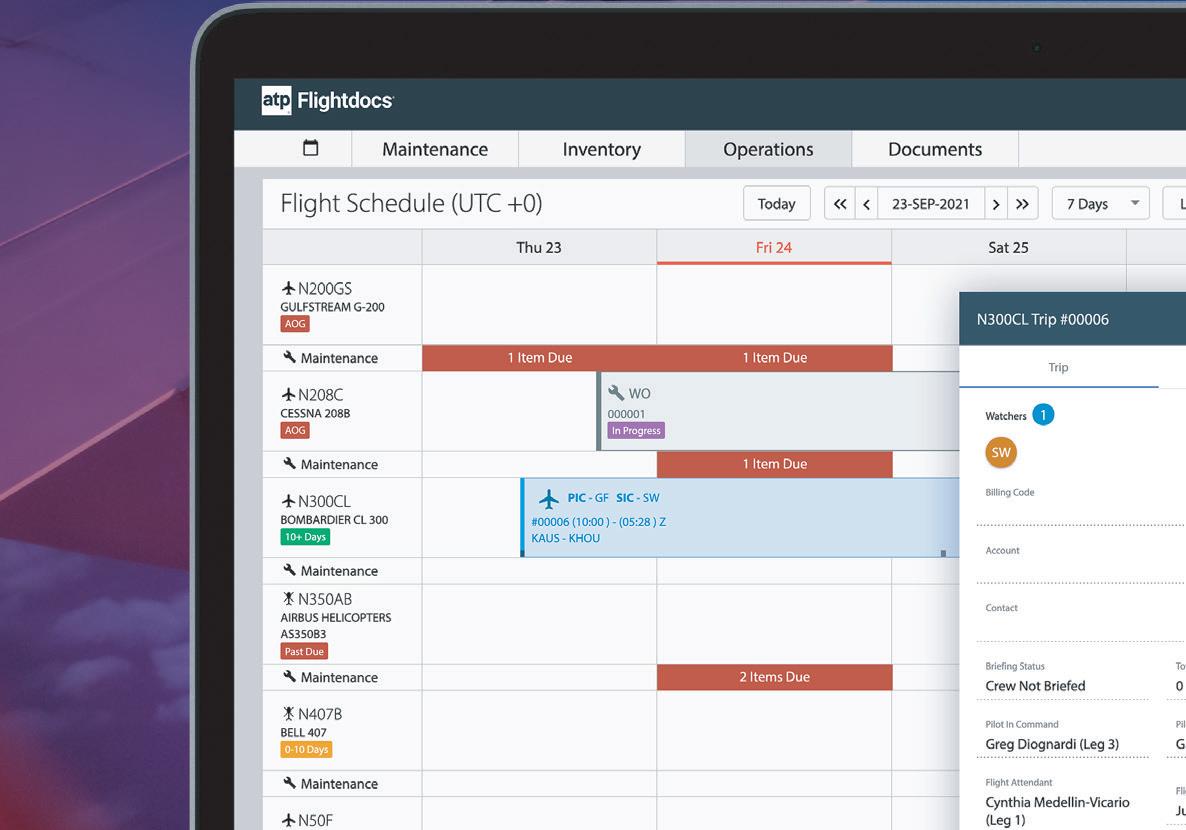
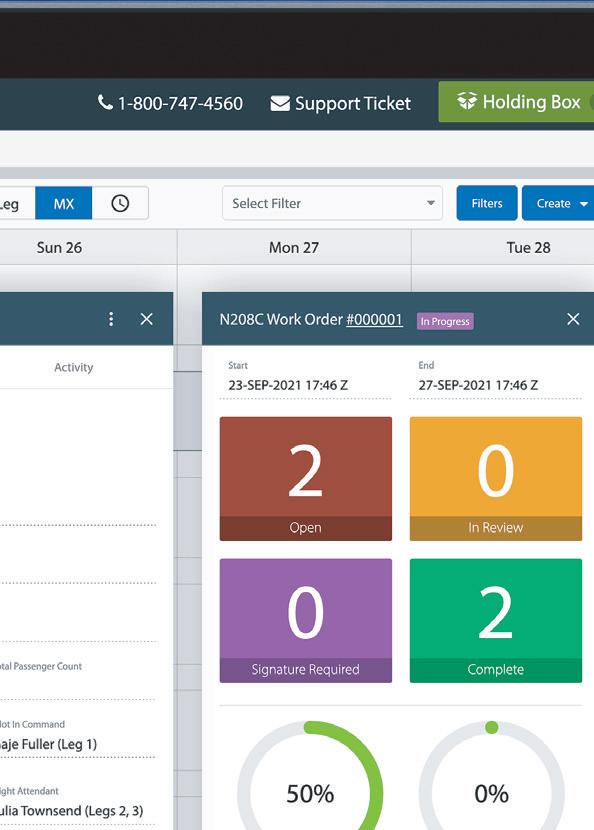









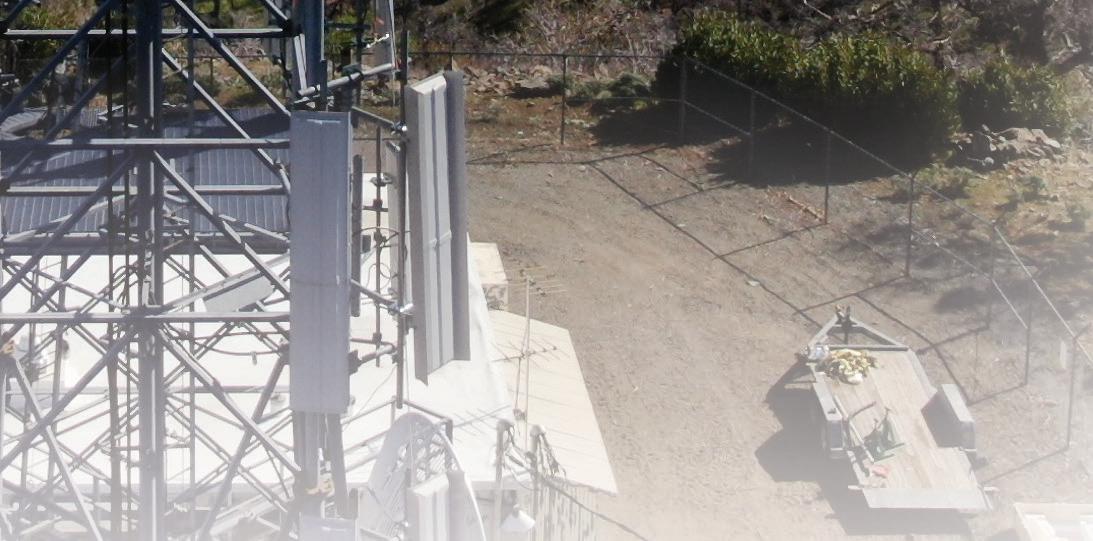
Sergio Aguirre, president and COO, Dave Glenn, SVP customer operations, and Mike Syverson, SVP operations, on Gogo’s 5 G service
In 2019, Gogo Business Aviation once again raised the technology bar for aviation, when it announced it would be building the world’s first 5G network dedicated exclusively to aviation. We’ve written about 5G on these pages in the past, but that was a few quarters ago and a lot has happened to advance the Gogo 5G effort.











To learn more about the service and get an update on the latest developments, BAM caught up with Sergio Aguirre, Gogo’s president and chief operating officer, and other members of Gogo’s senior leadership team. It was an insightful conversation.
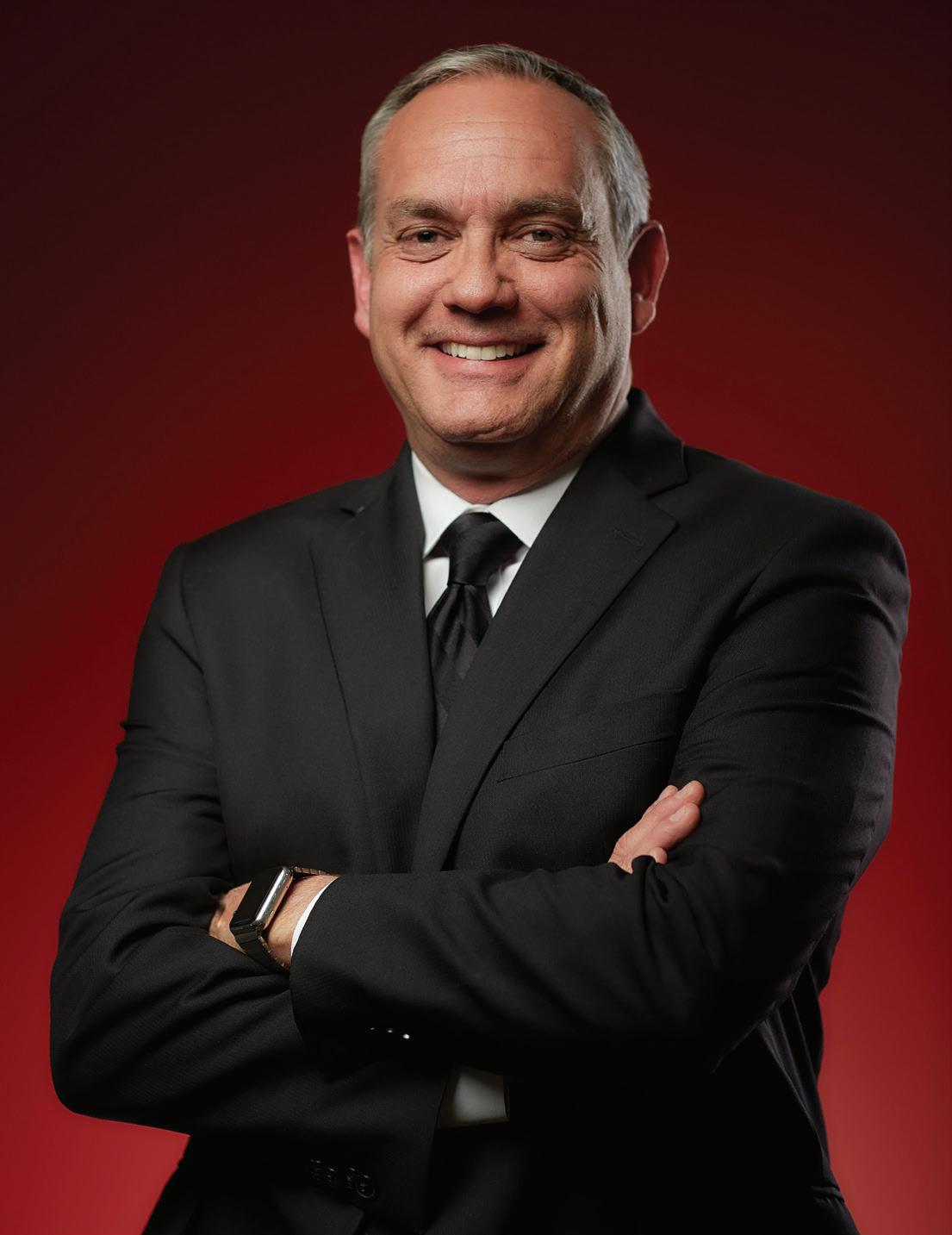

Q: Sergio, we’ve spoken quite a bit with you about 5G over the past couple of years. Can you give us an update on how things are progressing?
SA: Despite a global pandemic that has created an environment with sever supply-chain issues across virtually



every industry and product line – everything from cell phones to home appliances to cars and trucks – we’ve remained on schedule and on budget with our 5G plans. We expect to launch Gogo 5G in the second half of 2022, with a full nationwide 5G network covering the contiguous United States completed and Supplemental Type Certification (STC) and Parts Manufacturer Approval (PMA) for the 5G onboard system. It’s an exciting time for us.






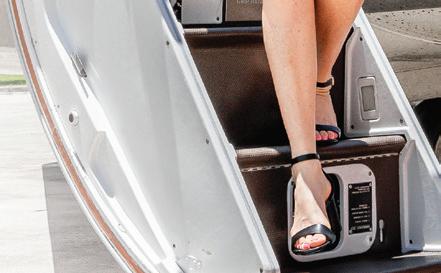
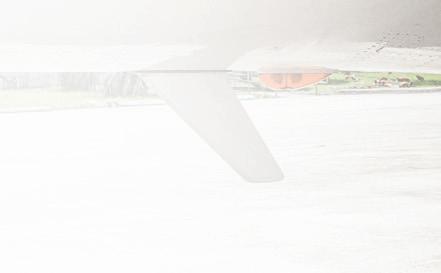

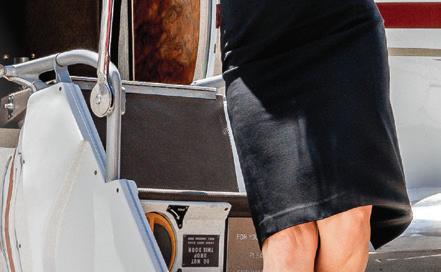

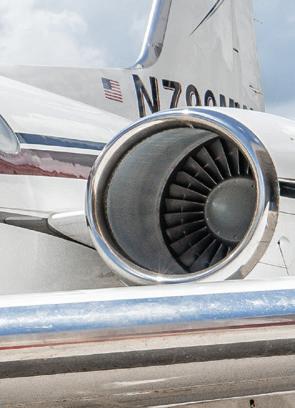
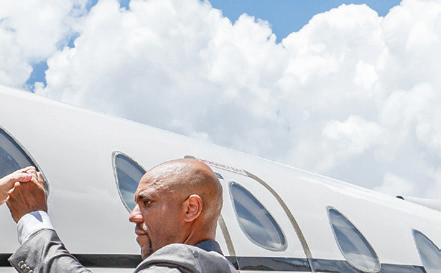

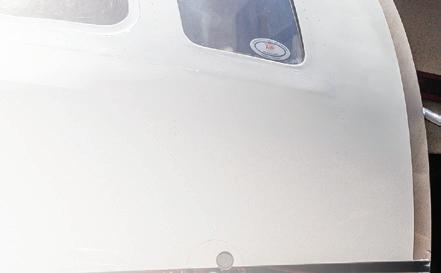








Q: Speaking of the network, how are you progressing with that effort?

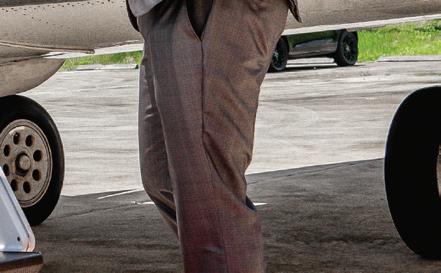

Dave Glenn, SVP customer operations: At the end of D ecember, we announced that the 5G network build was underway marked by the completion of our first seven cell sites that will serve as our 5G testbed. That was the first major milestone necessary to allow real testing to begin. Those seven sites were the first of what will become a 150-tower
 Colorado 5 G antenna install
Louisiana 5 G antenna install
Colorado 5 G antenna install
Louisiana 5 G antenna install
coast-to-coast network. It includes sites in both remote and populated locations so we can validate that the network is operating as designed in all types of environments. At the end of March, we had 29 sites fully built covering several states, so things are progressing nicely and our team is hard at work building the network.
One of the things we’ve done recently was the development and availability of a 5G network construction map so that anyone who wants to can follow our progress. You can find that map by going to https://www.business.gogoair.com/5G, and we will be proving updates on a regular basis. We want to be transparent and upfront with our network construction and this is an easy way for people anywhere in the world to follow our progress.
I’m so proud of our team. We’ve already begun testing and finetuning our network performance and we are very pleased with the results so far. Demand from our OEM and dealer partners for Gogo 5G is strong and we are confident that our customers will be delighted by its performance.
Q: Building a new network on a nationwide scale is quite an undertaking. What are some of the biggest challenges your team faces to get things done by October?
DG: Well, aside from some of the supply-chain challenges that Sergio referenced, our network has sites located throughout the country, many of which are in remote or difficult-to-reach locations. Some of the places where we have towers present significant challenges for us to get our equipment to because they are so remote – mountain tops, deserts, and rural areas. But this is not Gogo’s first deployment of a network. In fact, Gogo 5G is the fourth nationwide air-to-ground network we’ve deployed. We have a team with vast experience and expertise – they know what they’re doing because they’ve installed our previous network equipment many times before. They are experts and they are a dedicated, hard-working bunch, which is why we’re so confident in what they’re doing.
Mike Syverson, SVP operations: We expect Gogo 5G to deliver ~25 Mbps on average with peak speeds in the 75-80 Mbps range. It has been designed to deliver high throughput with very low latency which is critical for real-time video conferencing applications like Zoom, Facetime, or Microsoft Teams.

Q: Beyond the video conferencing applications, what else will 5G deliver? In other words, why is 5G necessary and what will it mean to the end-user?

MS: There are several advantages 5G will deliver. It will allow more users to be connected at the same time conducting data-heavy activities with little to no degradation in performance. That’s a notable difference from 4G. Near-zero latency which I already mentioned for video conferencing
“ This is not Gogo’s first deployment of a network. In fact, Gogo 5G is the fourth nationwide air-to-ground network we’ve deployed.”
- Dave Glenn, SVP customer operations, Gogo

is also important for other activities things like phone calls, which you really can’t do with a GEO satellite service because the delay between speakers is too lengthy. And speeds will be much faster with 5G which enables an overall better internet experience across all online activities.
The demand for connectivity is at an all-time high and while Gogo is delivering a world-class experience for customers today, we’re also building 5G for technologies and applications that are yet-to-be developed. Did you know that one of today’s most popular applications, TikTok, didn’t even exist in 2016? Today there are 176 million videos viewed on that app every minute! For more perspective, in the fourth quarter of 2021 we saw a 38% increase across all of our systems in megabytes consumed per flight compared to pre-pandemic levels in the fourth quarter of 2019. We don’t think that trend will wane anytime soon. People will always want more data and faster speeds.
















At F/LIST we create interiors inspired by the beauty of nature. Crafted with experienced hands, infused with technologies of tomorrow, and perfected to last. Since 1950.
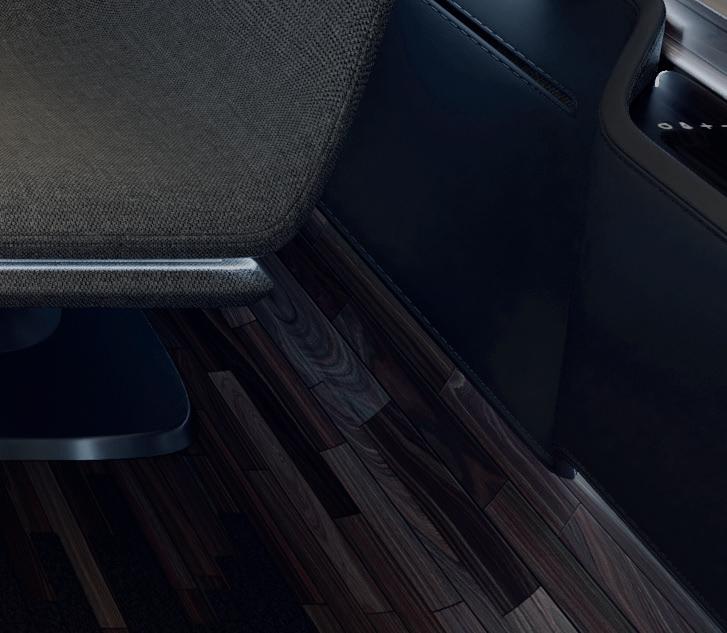
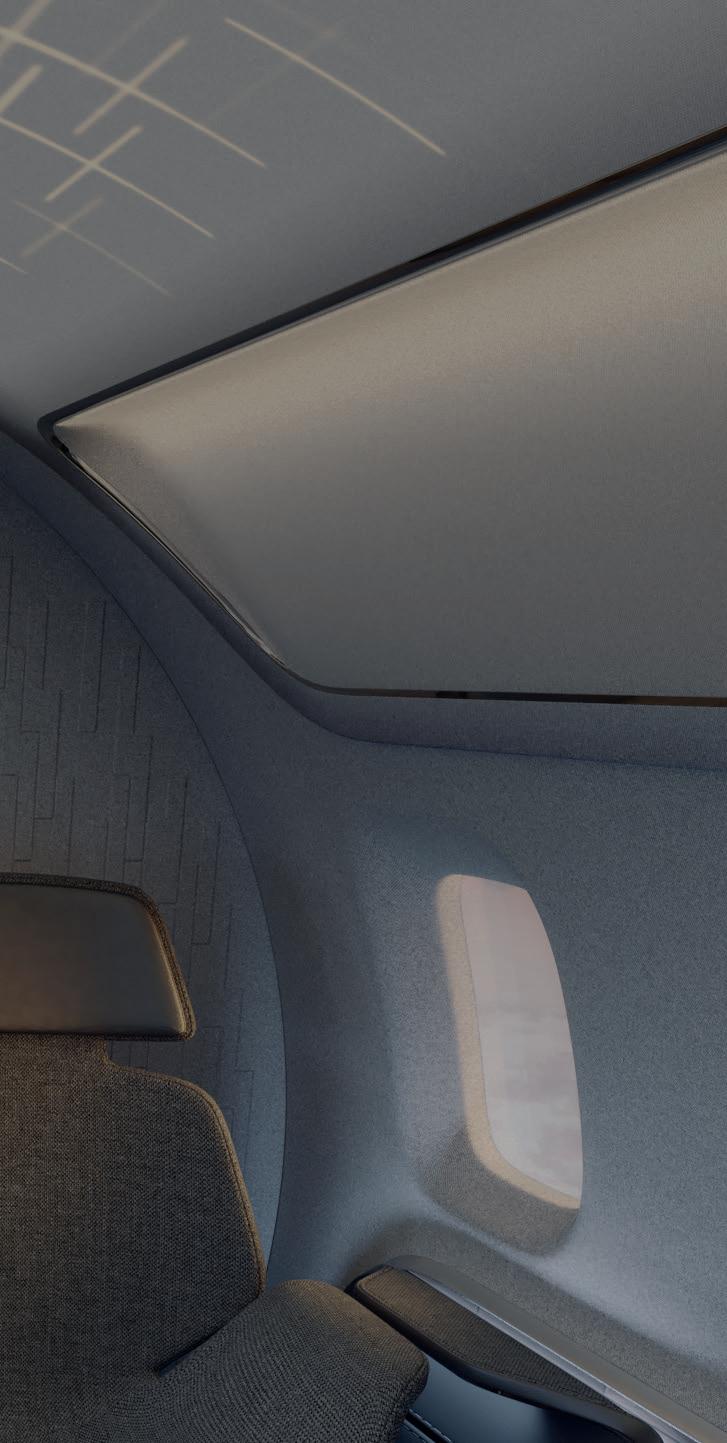
Q: Is the network the only aspect of the service that is 5G or does the onboard equipment need to have 5G capabilities as well?
MS: Gogo’s is the only ATG network that meets the full 5G standard. We are following all the 3GPP (international standards board) protocols and this will be a true 5G experience end to end. Every piece of our system from the onboard equipment and all the ground infrastructure, which includes 5G antennas, base-station hardware and software, and the data centers – all of it complies with the industry standard. No one else in the world can say that today.
The other thing that is unique with what we’re doing with 5G is that this is the first time that a company in aviation is rolling out the same technology that is being deployed by the large national wireless at virtually the same time. With previous versions of wireless technology, networks serving aviation have lagged behind what the ground carriers are providing by several years. We’re changing that with Gogo 5G.
Q: When you launch 5G, how many aircraft do you expect to be certified for installation?
SA: In November, we announced that Duncan Aviation was working to complete the first-article STC for the onboard 5G system. We have several other authorized dealers and OEM partners who are actively pursuing multiple STCs that will certify the Gogo 5G system for installation on more than 30 business aircraft models. And there will be many more to follow in the months following the launch.

In late February, we announced that we’d received STC and PMA from the FAA (the aviation regulatory body in the U.S.) for one of the main aircraft components – the 5G bellymounted antenna.

Receiving STC and PMA for the antenna marked another important milestone in the development of Gogo 5G. Our team has been hard at work to bring Gogo 5G to life and every milestone we achieve gets us that much closer to that goal.
In summary, we have the network being built at a rapid pace, the aircraft antenna has PMA, and we’re now working to get both STC and PMA for the 5G LRU. We have 5G equipment in our data centers and we’re making interoperability calls and conducting a lot of other 5G end-to-end testing. It’s progressing quickly.
Q: How would you characterise the overall 5G effort for your team?
SA: For an initiative like this, it requires a team that is focused on bringing it to life. Gogo 5G touches everyone in our company. Every department, every functional area, every
“ Gogo’s is the only ATG network that meets the full 5G standard. We are following all the 3GPP protocols and this will be a true 5G experience end to end.”
- Mike Syverson, SVP operations, Gogo

person is helping make 5G become a reality. It’s more than a company-wide initiative – it’s the biggest thing we’ve ever done.
Q: One final question. In February there was a lot of news coverage around 5G and potential interference with radio altimeters used in aviation. Is Gogo 5G part of that concern?
SA: No. Gogo 5G does not cause interference with radio altimeters. The issue here is not with 5G, it’s a radio frequency issue. Gogo has never used the frequencies under discussion, nor do we plan to use those frequencies for our 5G network. The spectrum bands used by Gogo, currently and following the launch of our 5G network, have been in use for decades and have never been shown to interfere with aeronautical services. |BAM

































Roger Buenter, CEO of Aersolution Interior, talks to Anthony Harrington about his philosophy of continuous innovation, taking products ever closer to absolute perfection



















AH: Roger, what was the inspiration for founding Aersolution Interiors?



























RB: I founded the company in 2007, just before the global financial crash. Immediately before this, I was an engineering manager at a company that specialised in doing aircraft interiors for medivac rotor aircraft. In addition, I was in charge of creating the VIP interiors for these aircraft.

I had some deep engineering skills and wanted to put these to work in my own company. So, after I founded Aersolution, some of the customers from my previous employment approached me for assistance on some of the more difficult parts of their interior work. I was well connected in the sector, with a good network among potential customers, and that helped greatly.

AH: What was it that you were offering at the time?












RB: Our basic field of applications is specialised mechanics and electronic systems for aircraft interiors. This includes everything from the electrical motors and mechanics in aircraft seating, to double beds in a luxury cabin, and tables that fold out or rise up.







It includes doors, drawers, and galley pieces – anything that people open, close or pull out. We literally do anything that has a mechanical-elect rical component to it. We specialise in wide-body VVIP aircraft but we also do the bigger business jets like Bombardier Globals and Embraer Legacy. A lot of our components though, go into green aircraft.





we
is Good. The Best is Better. See what's new!
“
The product we are most proud of right now is our Hi-Lo table pedestal. This is a totally in-house development. I should explain that tables that are designed specifically for VIP aircraft play a huge role in the perceived luxury of the cabin interior.”
AH: Is it a problem for you that much of what you make, so many of your products, are hidden from the eye? It’s not like you have the opportunity to even display your brand or logo.
RB: It is true that so much of what we do works behind the scenes, out of view. You can feel and hear it, but you generally don’t see it. But it is hugely important. How do you think the owner of a VVIP jet who has spent two or three hundred million dollars on the interior of their aircraft would feel if the table in the aircraft started to vibrate in harmony with the engines?
As the owner of a $300 million aircraft, the things that you tend to touch the most are the seats and the tables. If they are not perfect, where is the value? So, even though we are behind the scenes, the value of what we do is a critical part of the whole.
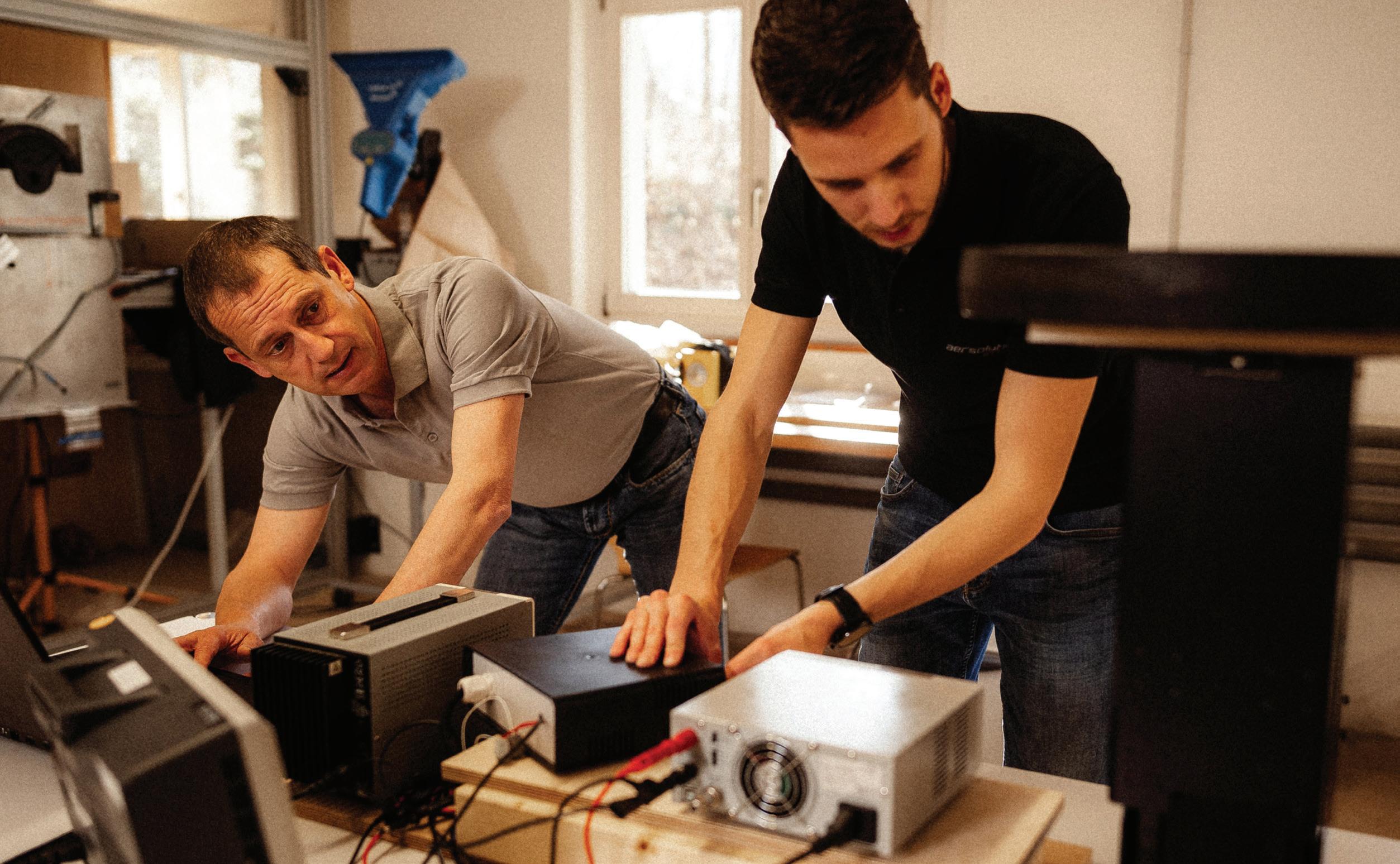
The people who design and craft aircraft interiors know this and they know they can rely on us. That is where the strength of our branding mostly lies. We make things happen that otherwise could not happen.
AH: What can you tell us about your latest products?


RB: The product we are most proud of right now is our Hi-Lo table pedestal. This is a totally in-house development. I should explain that tables that are designed specifically for VIP aircraft play a huge role in the perceived luxury of the cabin interior. Along with the seats, they are also the items that are most used and touched.
It is very usual for tables in a VIP cabin to serve a dual function. In the low position, they act as a lounge or coffee table. Then, when they are raised they act as a dining table. This means that they must be height adjustable, and the action that lifts and lowers the table has to be really smooth and very reliable. It must also be noise and tremor free, with no vibrating. And it has to hold the table securely at all times.
Aircraft regulations require tables that can be raised or lowered, to be lowered to their correct Take-off, Taxi and Landing (TTOL) position. Often the tabletops that the pedestal lifts are very heavy, and the pedestal has to operate at the lowest possible power consumption.





























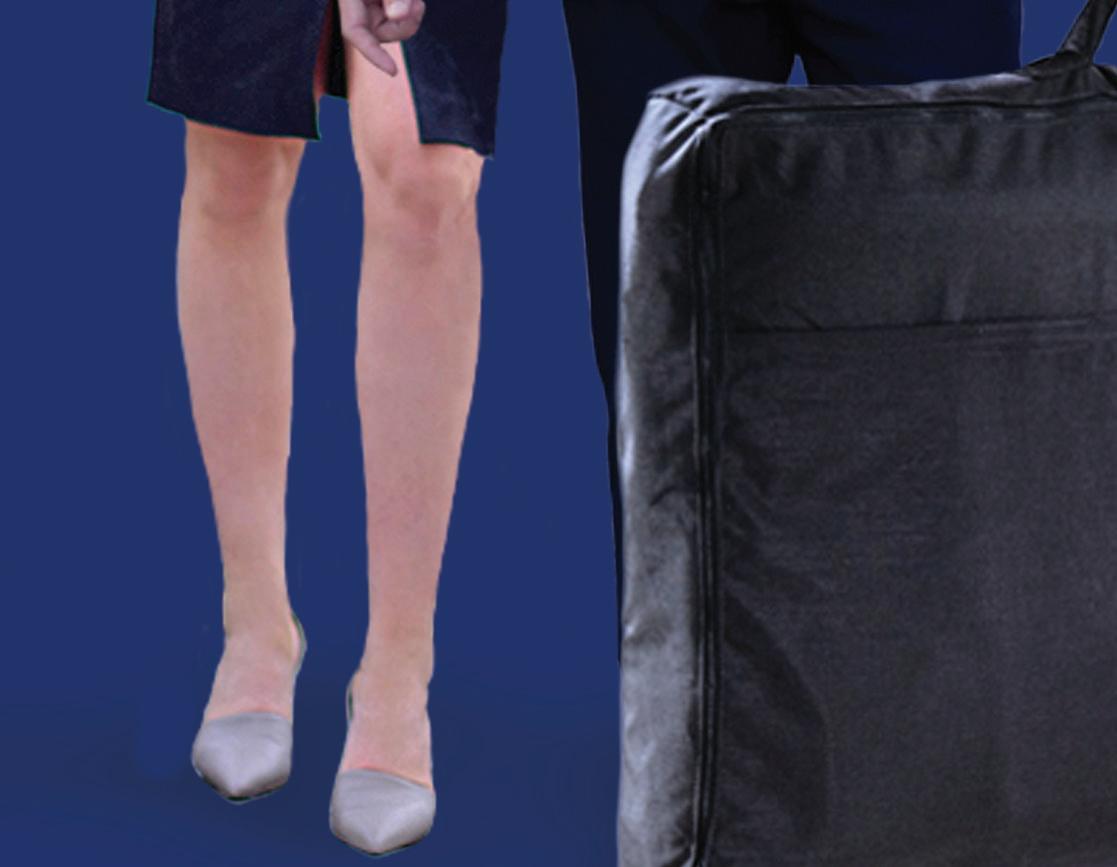


















It is a real engineering challenge and it is exactly the kind of project that we excel at here at Aersolutions. Working from first principles, our engineers have produced a full-stroke table pedestal with a completely embedded, self-contained and electronically controlled hydraulic actuation system. Moreover, the unit is slim enough to be completely enclosed in a high quality, visually attractive outer pedestal. Yet the unit is strong enough to lift a load of 100 kilograms smoothly to a maximum height of 69 cm. It can also be adjusted to any desired height via a simple, software adjustment.
We started this development over the summer of 2021 and we have already sold a number of these systems. It is very much in demand. With this latest iteration, we have brought in some new engineering ideas and some better solutions, to give us a really nice, rounded package that is very pleasing to our clients.




We were absolutely delighted when our Hi-Lo table was shortlisted for the Crystal Cabin Awards for 2022. The winners will be announced at the Aircraft Interiors Expo in Hamburg, which will be held from the 14th-16th June 2022.
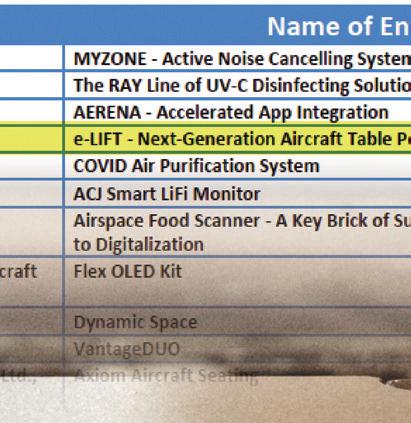
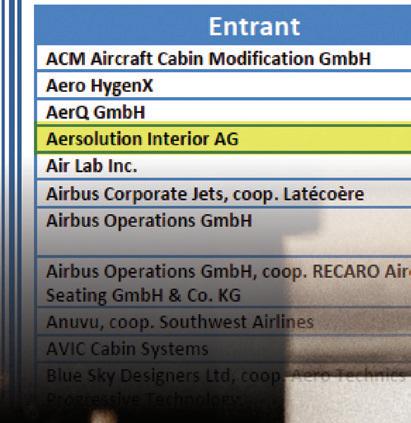

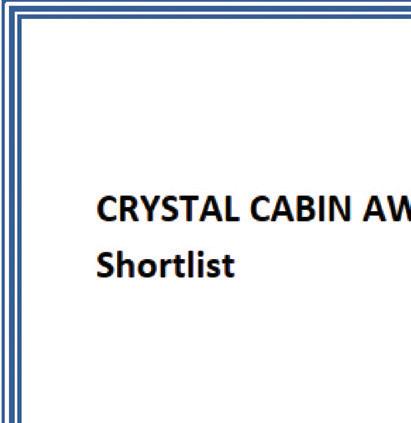
This is exactly the kind of project that our engineers love to get their teeth into. We have a very full project pipeline and we are constantly innovating between our VIP cabin projects. Producing great engineering projects and products takes time. Much of what we do is a further development or iteration of what we have done before as we seek to move a product closer and closer to perfection. It is all about continuous improvement, optimising what is already good to make it even better.
AH: What are your expectations for the rest of 2022? Do you think the Russian invasion of Ukraine will have much of an impact on your business?

RB: We are expecting to have a very good 2022, to follow on from a record-breaking year in 2021. The Ukraine war could have an impact. We are not much affected by sanctions on Russian oligarchs, but it seems likely that the war will add significantly to the logistics problems that are already plaguing global supply chains.
However, we are very optimistic. We have increased our staff numbers by 20% so far over the last year, so even in these challenging times, we expect to do well. |BAM
“ We were absolutely delighted when our Hi-Lo table was shortlisted for the Crystal Cabin Awards for 2022.”








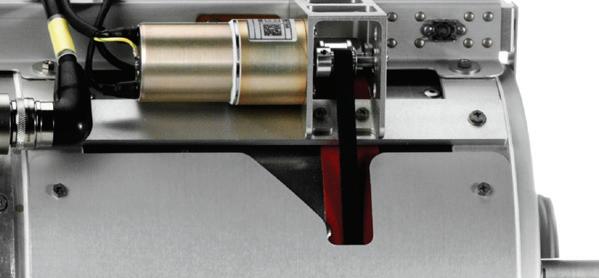

AH: Peter, you are in a very niche part of the market, providing humidifiers and dehumidifiers to both the commercial markets and the VIP space. How did the company get started in the aviation space?

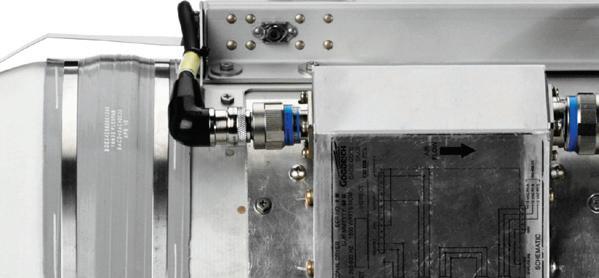





PL: The company began in 1993 with the three engineers, Christer, Tom, and Thomas, whose initials form









the company’s name. There was a problem with a small airliner which had some corrosion caused by condensation. They used a ground-based dehumidifier to clear up the condensation, but the problem quickly returned when the aircraft went back into service.
The condensation problem arises because when the aircraft is full of passengers, as they breathe out the humidity in the cabin rises. When the warm, humid air works its way to the inner metal skin of the aircraft, which is probably experiencing temperatures of minus 52 Centigrade on the outer skin, the water vapour condenses out as frost on the inner skin.




When the aircraft is back on the ground, that frosting on the inner surface melts and the puddles of water accumulate and cause erosion and damage. Water is also heavy, as anyone who has lifted a bucket of water will know. So, the additional weight that accumulates will have a negative impact on the aircraft’s range and its fuel burn.
Paradoxically, you have exactly the opposite problem in a business jet and in the First/Business-Class section of an airliner. There, where you have very few passengers, the air gets progressively dryer through the course of the flight. By the mid-point in the flight, the air in the cabin can be as dry as you would find in the desert.
There are plenty of medical studies which show that being exposed to dry air adds significantly to a passenger’s sense of discomfort during the flight. It also has a negative impact on
your health. The mucous membranes in the nose and chest are a good defence against cold germs and other viruses. When these membranes dry out, there is nothing to prevent
the virus from gaining a grip on the body, which is probably why so many people catch a cold either on the flight or when they walk through the airport after a flight. It takes time for the mucous membranes to get rehydrated and an individual remains vulnerable for some time after a flight.

AH: How easy is it for passengers in a business jet to feel that things are getting too dry in the cabin?




PL: Once the humidity in an aircraft cabin drops below 15 percent, humans start to feel discomfort. By the time it is down to 10% you can feel it in your throat and in your eyes. Food does not taste as good, since there is about a 30 percent reduction in your taste buds. This is particularly ironic when you remember that on many business aviation flights the food is specially prepared by a master chef.
On commercial airlines as well, particularly in First Class, the airline invests a lot in providing high-quality food and wines. But with your sense of smell and taste impaired they do not get the return they are looking for in terms of customer satisfaction.
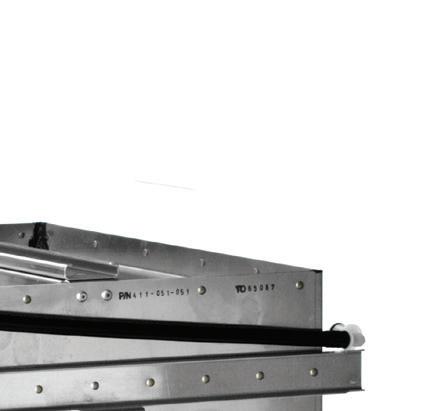
And in this post-pandemic world, the correct level of humidity is essential. It is our first line of defence in the immune system. Once your mucous membranes dry out the virus is free to attack.


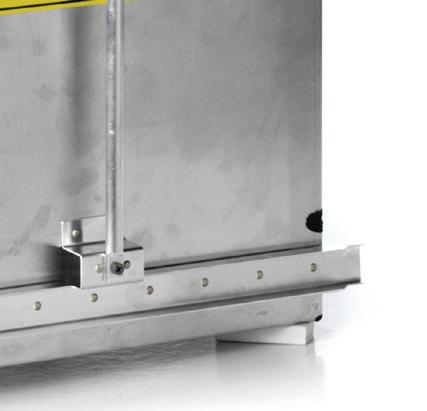
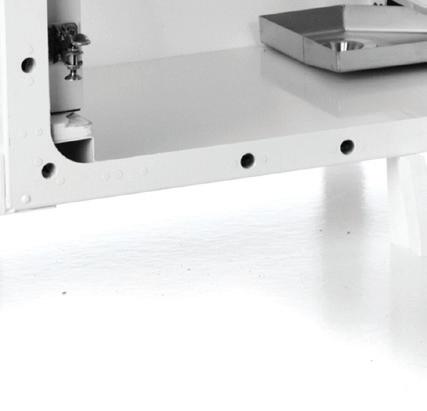
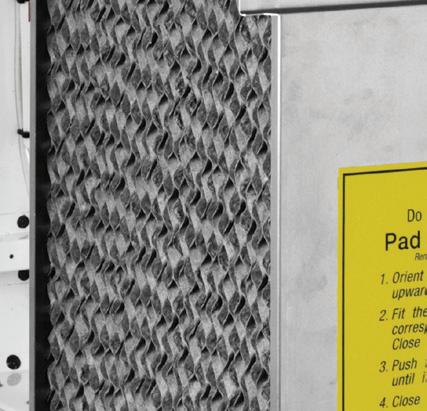
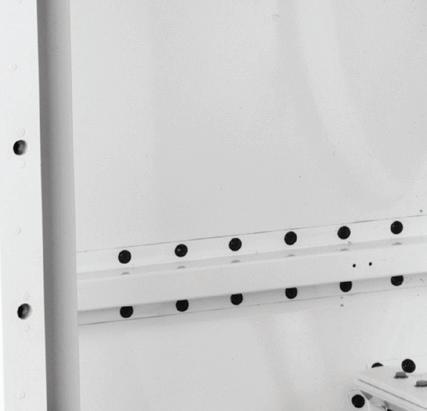
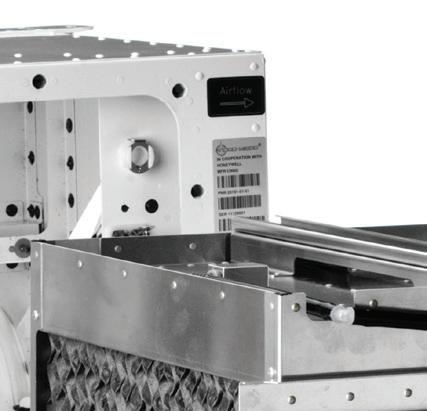
AH: You are now enjoying considerable success with your humidifiers and de-humidifiers on big commercial airlines. Are you able to bring these to the business jet market?

PL: The size of the equipment is our biggest challenge. We already have our systems installed in a Global 7500, so we have succeeded as far as jets of that size are concerned. With smaller business jets, the space under the floor, which is where we install our equipment, is extremely tight, so that is a real challenge.
The size of the humidifier you need is directly proportional to the volume of air in the aircraft that you want to humidify or de-humidify. We are working now on getting the equipment scaled to the right size for a G650.
We recognise how important it is to offer our equipment as a retrofit option on business jets. These aircraft fly at very high altitudes, where the air is extremely dry. Plus, the only source of moisture in the aircraft cabin is the passengers and there are usually very few of these in a business jet, just two to four. So, paradoxically, those passengers are suffering more from ultradry air than a passenger would if they were flying economy class, where there are dozens of people. The air humidity level in a business jet can get down to four percent or below. The air in that jet literally can be dryer than the Sahara.
A good way to think about this is the contrast between temperature and humidity. People very readily feel it if the temperature is too hot or too cold. Even a few degrees can make a big difference. With humidity, we are not well designed to feel even very large differences in humidity levels. However, after a flight with the proper levels of humidity, you exit feeling
“ We have been selected by Airbus Corporate Jets to develop ACJ TwoTwenty Inflight Humidification systems.”

well and refreshed. Your eyes do not feel dry and scratchy, nor does your nose or throat. The paradox with airlines is that those who are paying the most for their seats often end up feeling worse than those who’ve travelled economy class!
AH: Are there any recent sales successes you can tell us about?
PL: Perhaps the most important one is that we have been selected by Airbus Corporate Jets to develop ACJ TwoTwenty Inflight Humidification systems. Under the partnership CTT and ACJ will design the system together and CTT will develop the humidification system (consisting of four humidifiers and one anti-condensation unit).

Obviously, we are delighted to be selected by Airbus. The ACJ TwoTwenty features unmatched personal space and is the only business jet featuring six wide VIP living areas for up to 19 passengers. It has an intercontinental range and is capable of flying up to 5,650 nm/10,500 km (over 12 flight hours).
AH: How do you feel about the future?
PL: Business is building up very nicely. We are now on the Boeing 787, with flight and crew de-humidifiers, and also on the A380 where we have our cabin humidifiers, and these are being installed at a very pleasing rate. The OEMs are now offering these as a line fit to airlines.

On the larger business jets, our big opportunity is when these aircraft come in for refurbishment, but it is so much better if the OEMs pick this up as a line item. This is what we are working on and we are having some very good conversations with airframe OEMs. |BAM



















AH: I understand that F/LIST is a family business, how long has the company been in business and how has the journey looked so far?
KLN: Our story began in 1950 when my grandfather Franz List set up a small joinery shop. I am now representing the third generation and aim to continue navigating the successful path originated by my father. He took over his father’s legacy in the 1980s.





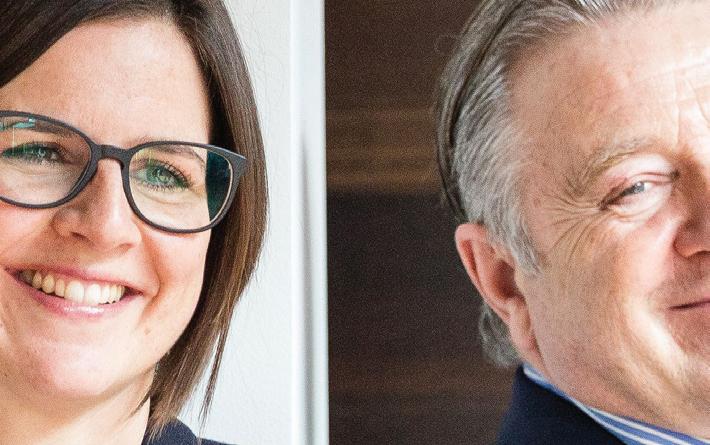


We were fortunate in that order sizes grew, and customers became more international. The foundation for the maritime business was set when a renowned owner of a German shipyard commissioned us to outfit his new cruise ship, and this evolved into fitting out luxury yachts.
The company expanded in Thomasberg, where research and development of new surfaces, materials and processes for yachts became a daily practice. Then we began our first tests with materials suitable for aircraft.
I joined in 2004, and six months later the first frame contract for Learjet cabin monuments was signed. Since then, Bombardier, Gulfstream, Embraer, Pilatus and a range of global MRO and completion centers have become long-lasting partners. We’ve also opened subsidiaries in Germany, Canada, Brazil, Great Britain, United States, and the United Arab Emirates.
AH: I associate F/LIST with stone floorings, what else features in the company portfolio?








KLN: You are right, our F/LIST stone flooring is well known in the aviation community as being the first to bring this product into a business aircraft, and we are continuously developing it further. We have already created a heated and illuminated surface version. However, this is just a small part of a much larger portfolio of interior products and services.
We design, manage, certify, build, and assemble interiors for all kinds of living spaces. Where needed, we act as turn-key partners, designers, developers, or manufacturers of the finest interiors.
Katharina List-Nagl with her father





KLN: At F/LIST, we usually tend to question the statusquo and are continuously driven by the desire to get better every day. So, even though customers, employees or global megatrends push us, we are intrinsically driven to innovate. We actively search for new technologies, study different industries, and look to learn from other business models.
Generally, the pioneering processes are complex, sometimes frustrating, and involve a myriad of design reiterations mixed with a positive failure culture. At F/LIST, we understand that failure it is a necessary part of development, and is often the springboard for new, successful thinking.



Each project requires a team effort, combining decades of experience




with a deep understanding of the market, along with technical knowhow, groundbreaking technology, and material-understanding. It is not our strategy to follow trends. Our team consists of the most inventive minds in the industry, and we want to set the standards and inspire colleagues and customers through innovation and creative thinking.











AH: Would you say that innovation forms the DNA of the business?
KLN: Yes very much so. We thrive on innovation, so much so that we founded the F/LIST futurelab almost two years ago. It is an internal think-tank and incubator where we aim to visualize our customer’s world, and hence our own, in years to come. At the same time, we are investing heavily in our R&D department which is run by Mélanie Prince as Head of Innovation. In this position she supports the F/LIST corporate vision, which is focused on developing a suite of products, in collaboration with customers. The aim is to deliver stylish features and to optimize space while surprising, delighting and improving the cabin experiences for passengers and crew.
AH: You mention sustainability – how important is that to F/LIST in a market that focuses predominantly






on the development of sustainable aviation fuel and hybrid/electric aircraft. What is F/LIST doing in terms of creating a sustainable future?

KLN: As a family business in its third generation, all our entrepreneurial activities are sustainable. This includes, for example, sustainable investments in our sites. Our production at the headquarters is powered by solar and renewable energy, combined with smart energy recovery. We use a special river-cooling system to influence indoor climate during summer, traditional lighting has been exchanged and now we use LEDs to reduce electric power consumption.
We produce sustainable decorative materials from the waste from our production sites. With these we already offer a wide range of sustainable materials for decorative application on furniture.



We live sustainable business relations by creating win-win scenarios with our customers, suppliers, and employees. We encourage our staff to think and act sustainably in everything they do, and invest in training and a great working environment, to cultivate a long-term future for them, and the business.
|BAM

Derek Thomson, Commercial Director and Accountable Manager at Air Charter Scotland, on the company’s fleet of 11 business jets
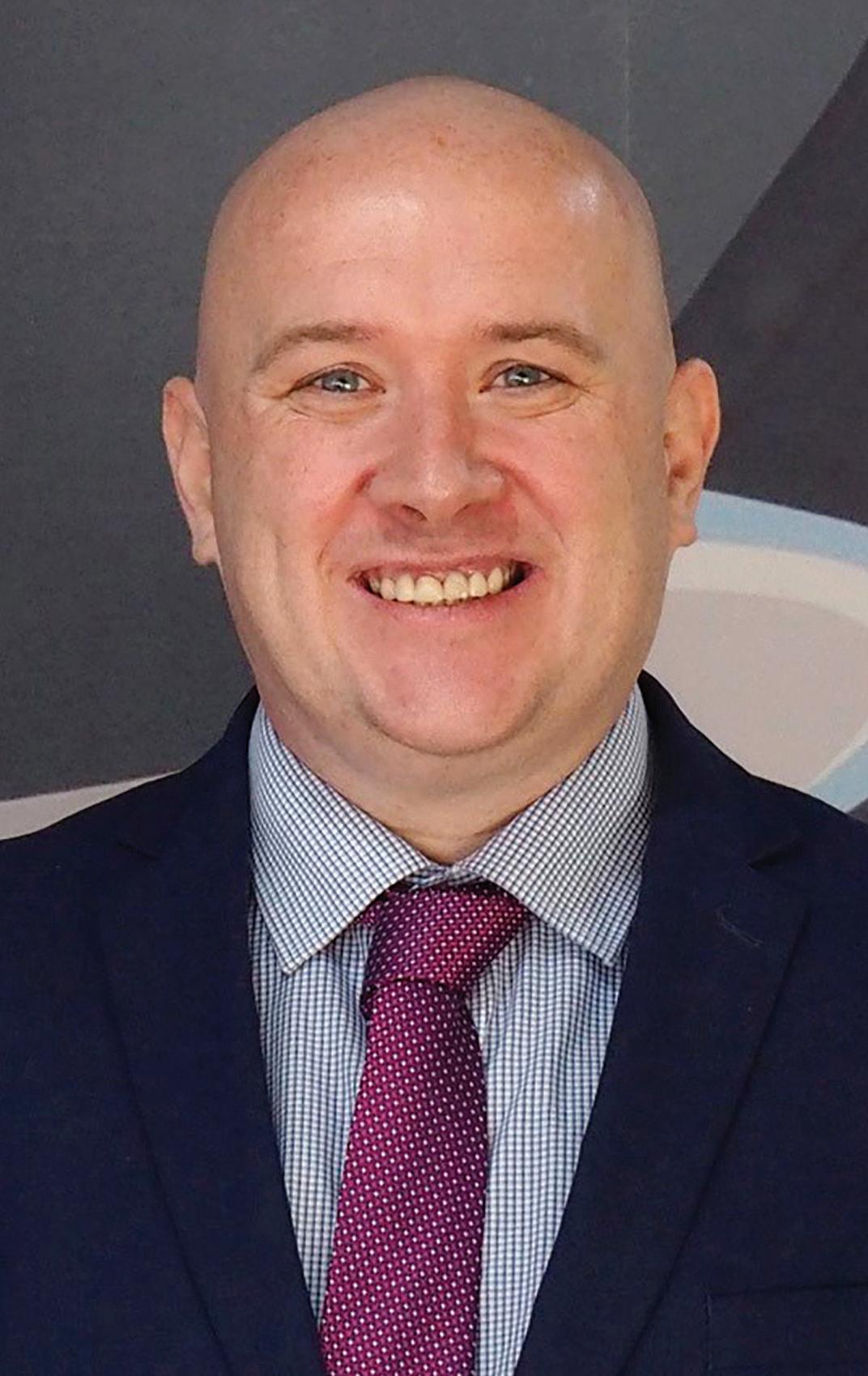





: How long has Air Charter Scotland been operating for, Derek?

DT: Air Charter Scotland has been in business for 21 years. We are a boutique, independently owned business. We hold a worldwide AOC and operate a fleet of 11 business jets. These range from six- to eightseat light jets with a range of around three hours, up to transatlantic-capable long-range jets including the Embraer Legacy 650 and Dassault Falcon 7X.
While we have a Glasgow HQ, most of our work is out of London airports such as Luton and Biggin Hill. We also have a Glasgowbased Citation CJ2 light jet, based out of the Signature Flight Support private aviation facility.



Air Charter Scotland is Scotland’s second operator, after Loganair, now Europe’s largest regional airline which turns 60 this year. Unlike Loganair our model is on-demand charter. We manage business jets for a number of owners and offer them for charter on our Air Operator Certificate.

Q: What has it been like for you through the pandemic?
DC: You could say that Covid has really helped the perception of our industry. It certainly brought new customers to charter, because in the peak of Covid it filled a huge gap left by all the flight cancellations by commercial airlines. There was no other way for executives to fulfil their travel obligations once the airlines pushed the pause button. Business aviation proved itself as an enabler – repatriating people, reuniting families and delivering PPE and urgent medical supplies.
Light category business jets such as the Citation family we fly, have become extremely popular for domestic and European routes. These aircraft are the most affordable on a per-seat basis for short-haul travel where flight frequency has fallen away and even direct flights, may have ceased.

We are in an age where health is wealth. Flying from private terminals and dedicated business aviation airports as we do the number of touchpoints our clients have to experience is minimal, and they escape having to fly in crowded commercial aircraft
Then there is the fact that flying private in Europe is much less expensive than people might think. With charter you ‘hire’ the whole aircraft, so taking a family of six from Glasgow to Paris won’t be so far off a business class fare. The likelihood is that there will be not much more than a 15% differential per person. Best of all, you determine the time you want to depart and return. You choose your local airport and what you like to eat and drink on board.
Q: What is your take on the pressure business aviation is under to improve its sustainability credentials?


DT: In aviation now the focus is very much on sustainable growth. The industry is working hard to correct widespread misconceptions of our sector and to get the message across that business aviation is an important economic driver and business enabler.
There is no doubt that sustainable aviation fuel (SAF) is a real game changer in this debate. Moreover, business aviation is leading the way in its introduction. SAS is available more widely in Europe now, especially in Scandinavia, as well as at airports UK FBOs like Biggin Hill and Farnborough.



We are rolling out a dedicated offsetting programme with partnerships like South Pole and have set up a sustainability task force at the company addressing internally how we can reduce our carbon footprint.

While we have a Glasgow HQ, most of our work is out of London airports such as Luton and Biggin Hill.”
Q: What are you seeing on the demand side?
DT: Demand for business aviation is incredible right now. We see that first hand as far as the business jets we manage are concerned. There are some issues in meeting this burgeoning demand for charter flights. We are fortunate in having aircraft on the Maltese registry too – which proved very useful when Brexit happened and ad hoc bilateral agreements on permits enforced more administration and time. We have two aircraft on the Maltese registry and are considering adding more as we take on more managed aircraft.
Our aircraft owners have been flying more hours (with their families and for their businesses) since Covid so there were less charter hours to offer charter brokers. Another issue is getting slots at the maintenance companies we use. We are fortunate to work with some great MRO companies to support our aircraft on the ground, including JMI-International and Inflite The Jet Centre. Both are very flexible.
Corporates who own jets themselves are finding they need more capacity to service demand. This is great for business aviation, but it is challenging for the charter brokers, who are finding a shortage of capacity.
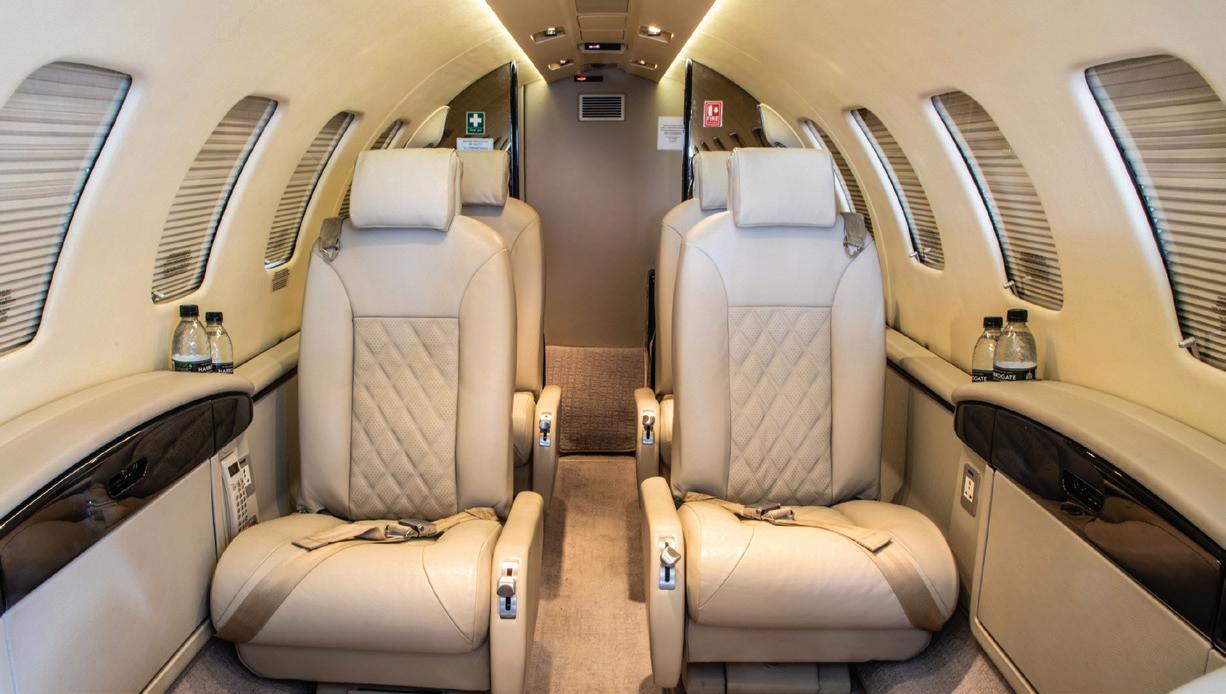
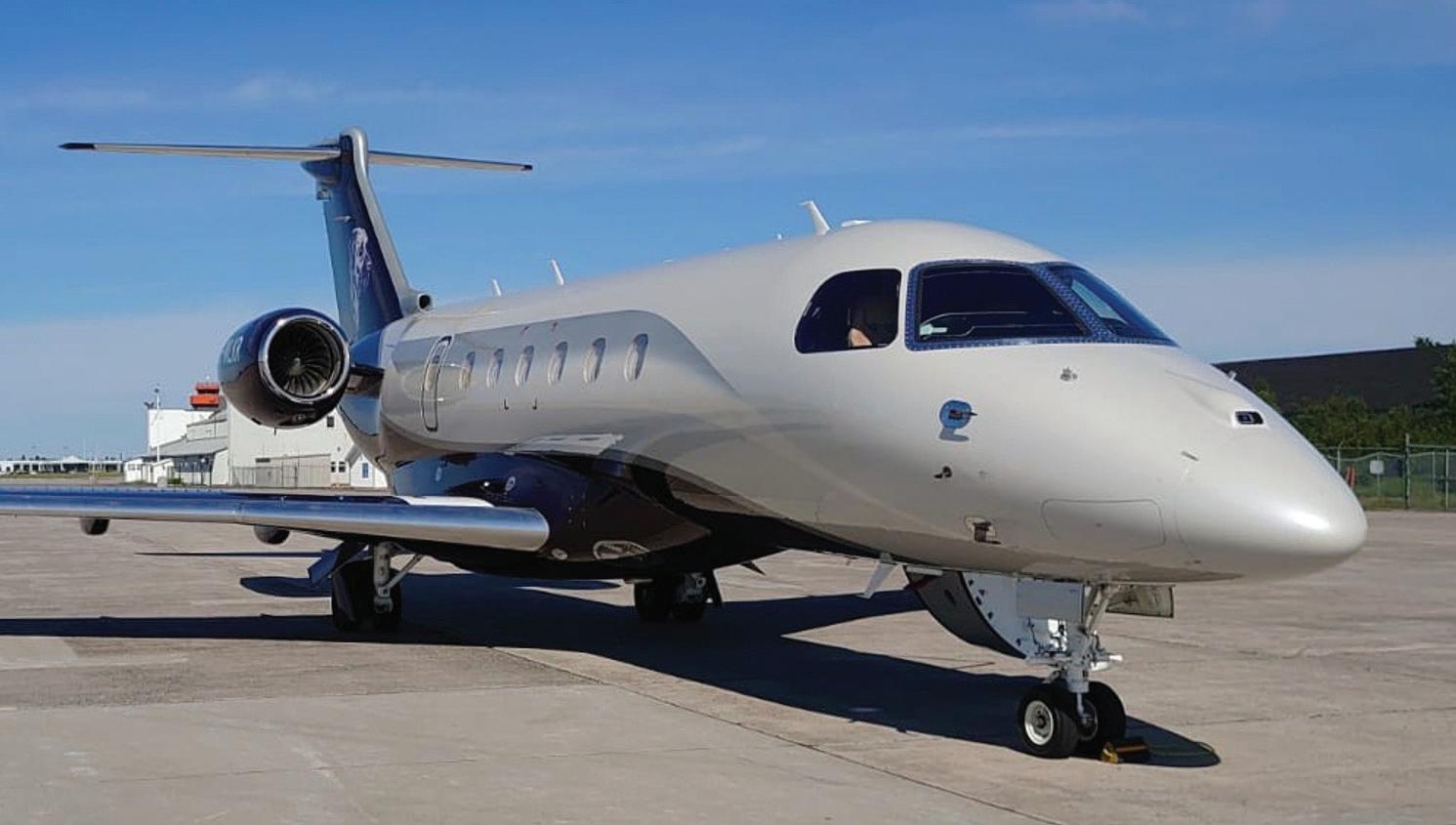
Much of the growth we’ve seen on the charter side is from newcomers to business aviation.
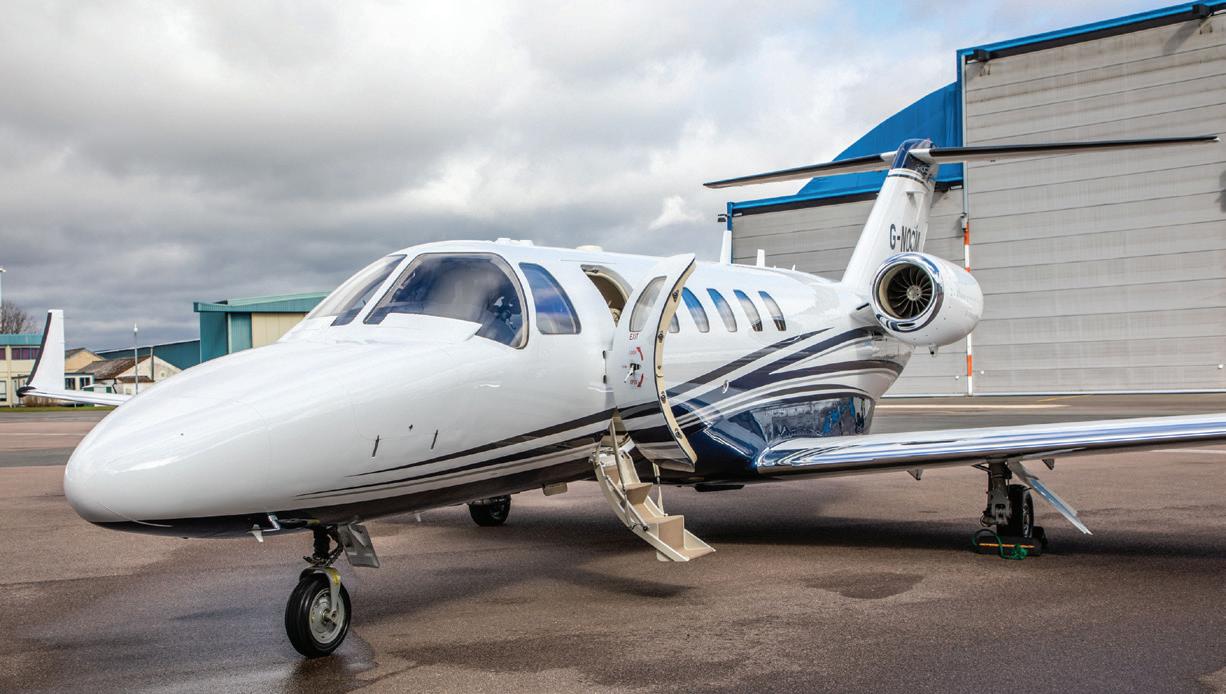
People turn to business aviation for a number of reasons. For example, it may be to protect an underlying health condition; or it may be because they want to cover business meetings in three European cities in a day and be back at night for the family. Business aviation really can give you back your life.
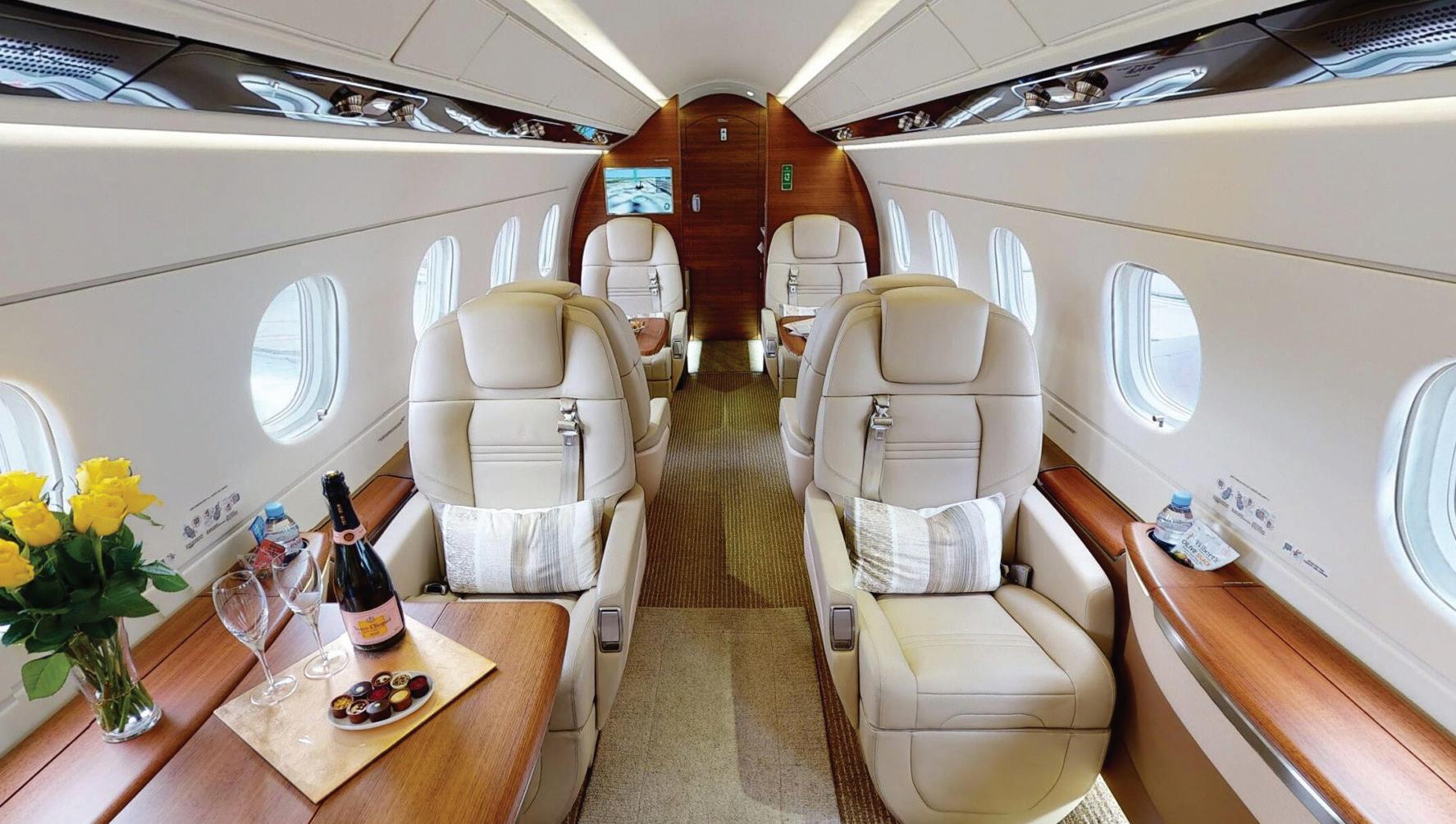
Flying private is also frequently the only way to connect some city pairs where the commercial airlines have dropped scheduled flights. The airlines in Europe are still 30% down on their pre-Covid flight levels and ticket prices are higher (owing to rising fuel prices and reduced flight frequencies).
Q: What is the future for Air Charter Scotland?
DT: We are very keen to support more first-time business jet owners with full aircraft management. The issue is that there is not enough pre-owned inventory coming to market. At the same time, new aircraft now have an 18-month average backlog - as we heard at London’s Corporate Jet Investor conference in March.
Pleasingly, demand is good here in Britain, for independent, experienced companies like us, as well as for maintenance companies, airports, flight and ground crew. Aviation is a hugely aspirational industry, offering many different routes to careers, far beyond the traditional roles of pilot or flight attendant. In business aviation it is all encompassing. |
Lyon Saint-Exupéry Airport
SPACE Executive Handling specialty

Lyon Saint Exupéry Airport (LFLL/LYS) based, SPACE Executive Handling specialty includes
corporate,
ambulance flights.
and ambulance flights.
Lyon Saint Exupéry Airport (LFLL/LYS) based,
GROUND HANDLING SERVICES :


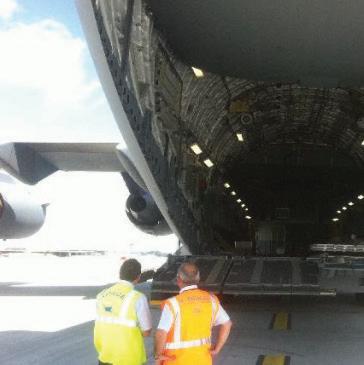

more for
Saint Exupéry Airport



Q: Youssef, can you tell us a bit about XO and the company’s software platform?



YM: XO is part of Vista Global Holding, the world’s first private aviation ecosystem, integrating a unique portfolio of companies offering asset-light flying solutions to cover all key aspects of private aviation.








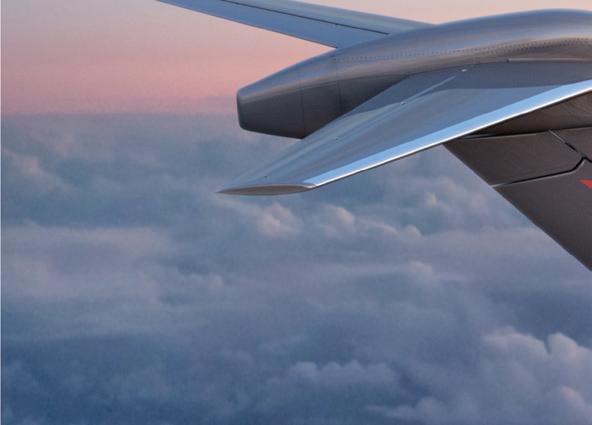





XO was created by leveraging the power of JetSmarter’s ground-breaking innovation and technology and combining it with XOJET Aviation, one of the largest and most wellrespected private aviation companies in North America.

The integration of JetSmarter technology into XOJET has resulted in the creation of an innovative alternative to the dated
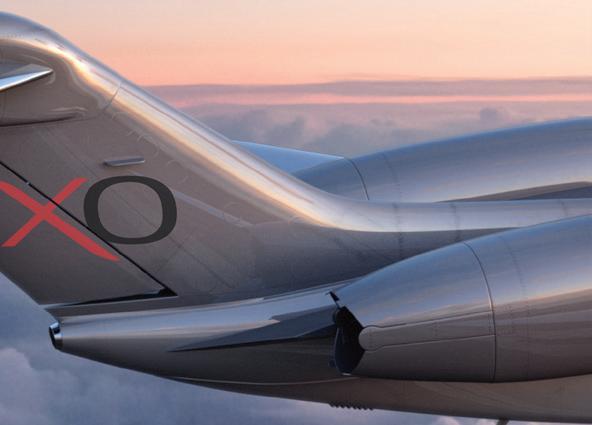







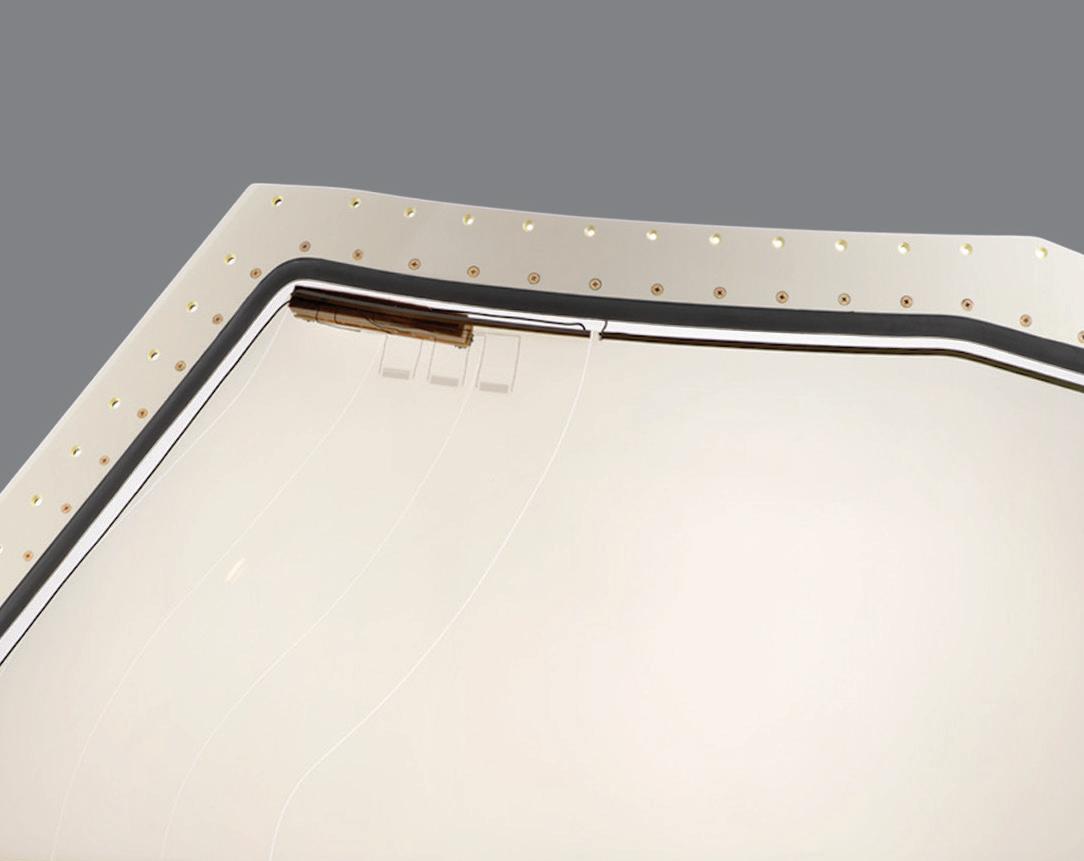






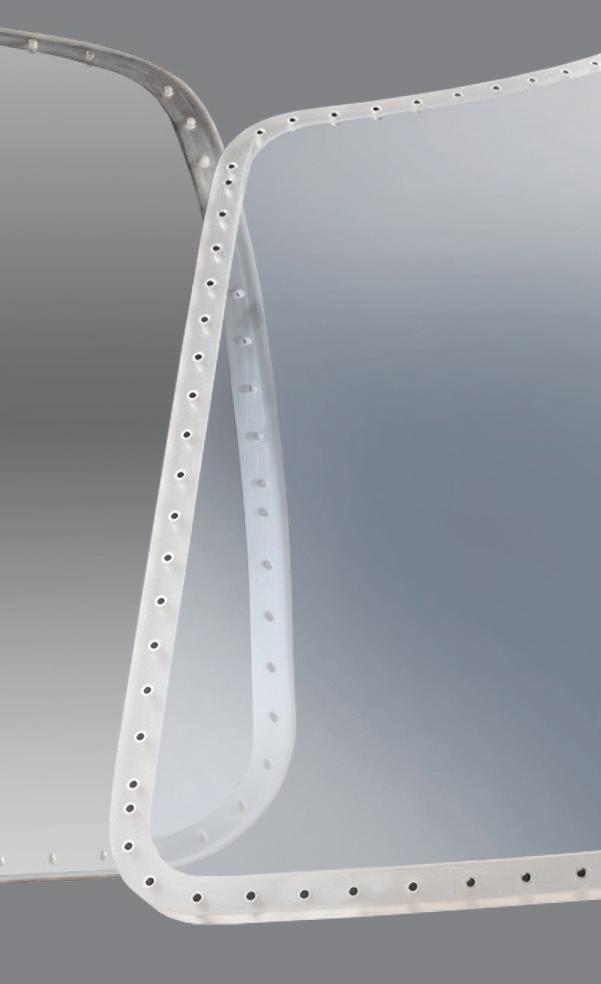


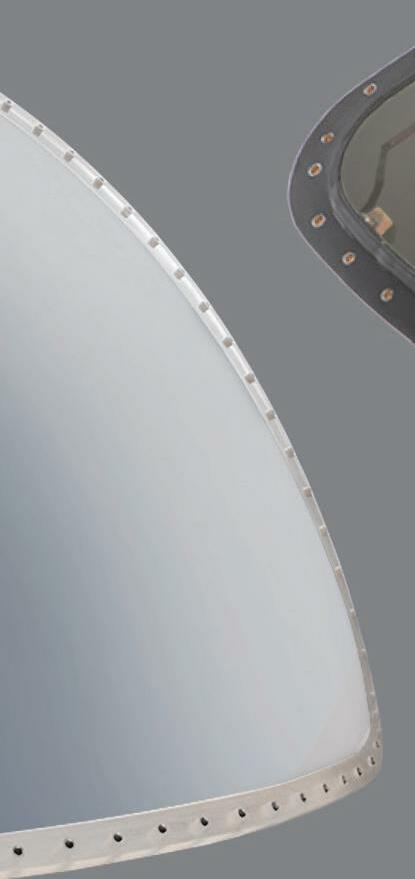










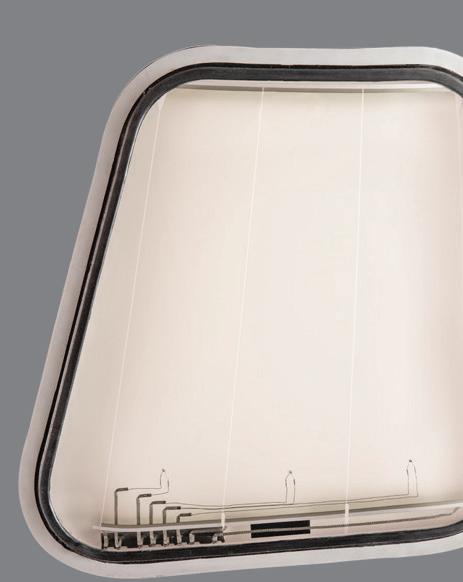

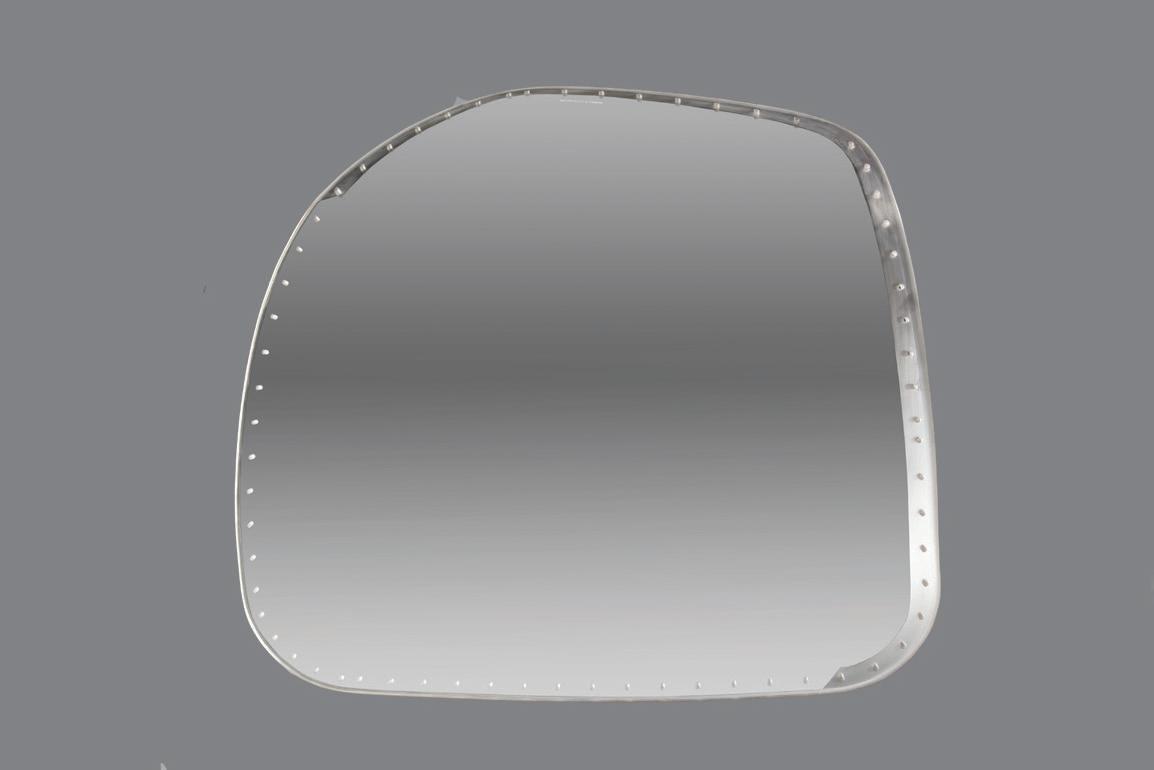
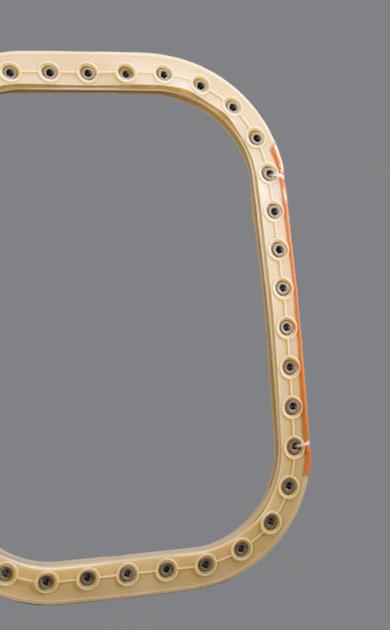








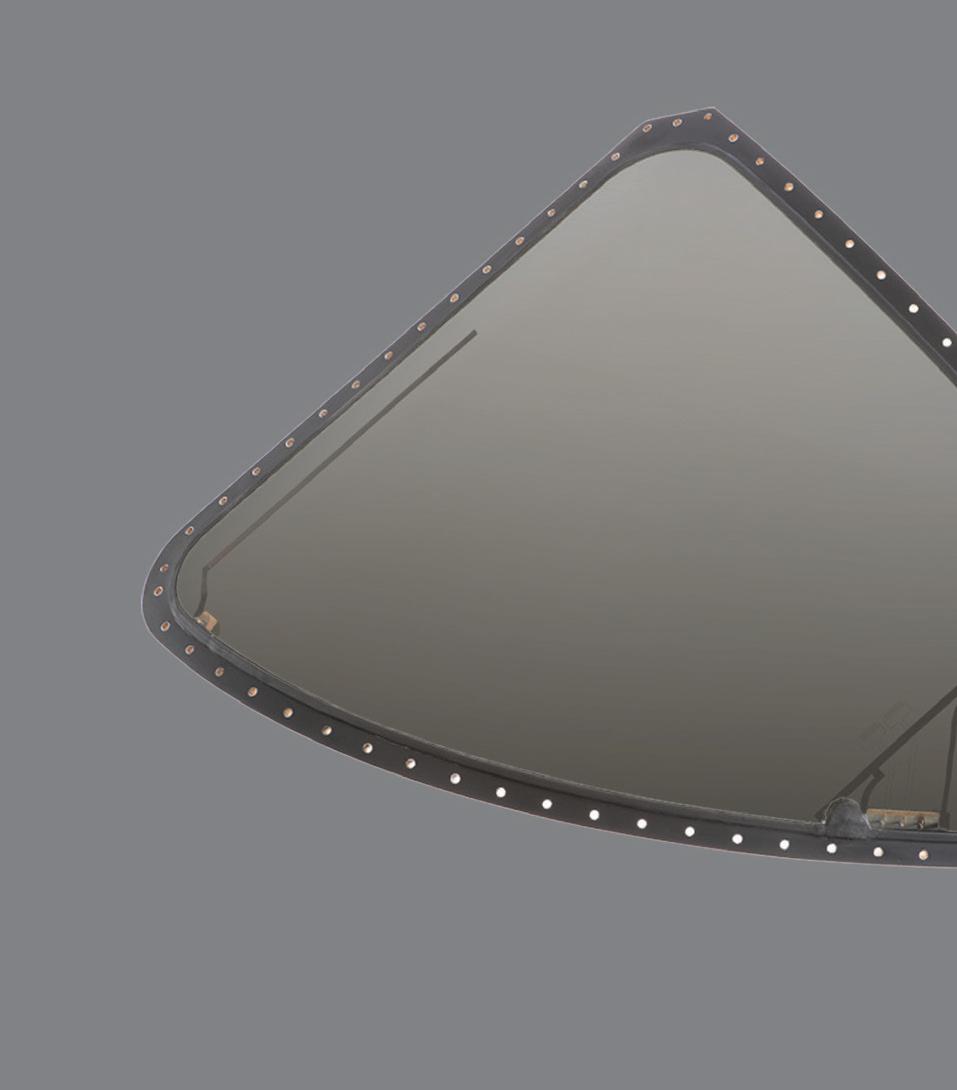
and overpriced services offered in private aviation today. Today, XO is the leading tech-driven private aviation company, offering flyers more flight options than any other private aviation company.
XO stands out amongst competitors in the industry due to its unique membership programs, operational excellence, elevated service, ground-breaking technology, and extensive fleet size. XO’s turnkey solution serves the diverse private aviation needs of individuals, families, and businesses. Anyone can book flights on demand without commitment, while XO Membership is ideal for those looking for an asset-light private aviation solution.
XO also offers multiple ways to fly – including whole aircraft private charters, with guaranteed availability and individual seats on private jets. Unlike most industry-available charter flights, XO delivers flight options that are instantly bookable from a mobile device, providing global availability on-demand across all cabin classes. All users can instantly book private charters, shared flights or individual seats on crowdfunded flights with confirmed pricing on its owned and managed fleet as well as aircrafts sourced through its network of approved third-party operators.
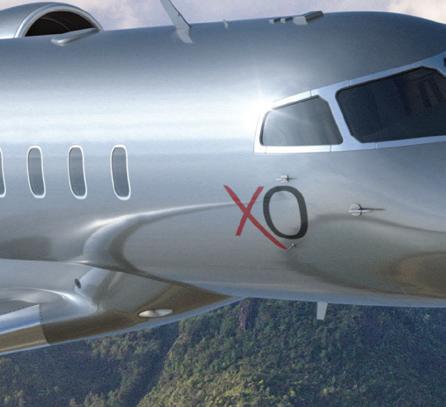
Q: What has your own experience been in private aviation?







YM: I have been operating as an international C-suite executive in the technology and consumer goods industries for over two decades. I am also the primary leader of XO outside of North America, leading the organisation’s global expansion and growth plans, with an initial focus on Europe, the Middle East, and then beyond.

I am focused on bringing more availability and relevant product offerings to serve the addressable markets across the region. The aim is to continue disrupting and digitalising the private aviation industry, and most importantly delighting the clients.
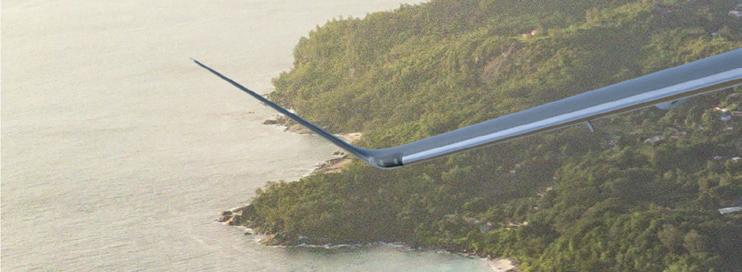


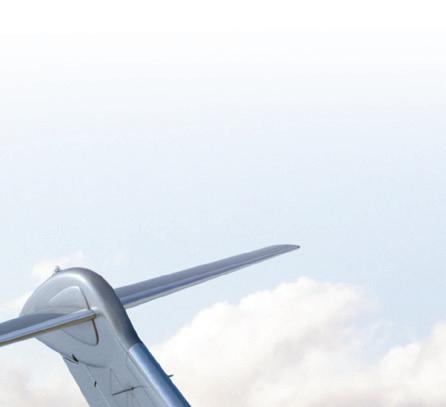
Most recently, I served as Regional Managing Director for Dyson in the Middle East, Africa, and Asia. I transformed the distributor markets group into a winning business, leading a team of 400 people and serving 18 markets globally.
I have witnessed first-hand the customer experience evolution, and more recently, the rapid transformation brought about by the COVID-19 pandemic and fourth generation technologies such as AI and Machine Learning.
With a proven track record in various business challenges, ranging from start-up, to turnaround and strategic realignment, along with a focus on sustaining success, I am passionate about upskilling and evolving talent to create a winning culture that develops and engages teams to achieve outstanding performance.

Q: What have been the challenges involved in producing the XO app?
YM: To provide a seamless, end-to-end travel experience that was unique to the industry, we invested in top talent with an innovative and agile approach to platform development. Our team’s challenges in developing an app have become our advantages. We have delivered an app that connects clients with over 2,100 aircraft globally to enable seamless searching,
“ We have delivered an app that connects clients with over 2,100 aircraft globally to enable seamless searching, quoting, and booking, extending their private flying options beyond the already robust owned and managed fleet of 200+ aircraft from Vista and XO.”


aviation fuel

fewer lifecycle
than the fuel
quoting, and booking, extending their private flying options beyond the already robust owned and managed fleet of 200+ aircraft from Vista and XO.
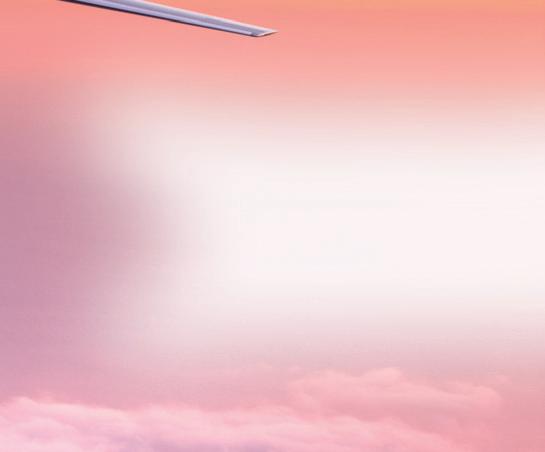


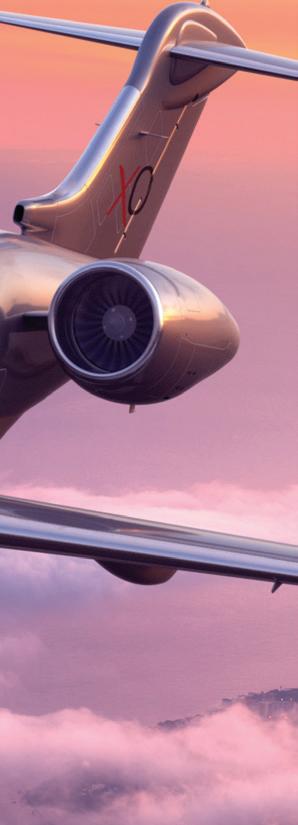
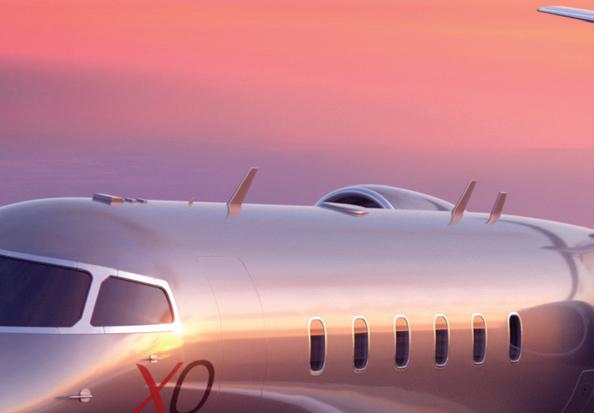
In addition, the app supports various membership models and provides a unified search experience. Clients can search both charter and seats in one experience, along with calendar pricing, to allow users to find the best prices without repeat searches. We provide flexible charter options such as shared and crowdfunded charters and a streamlined user experience. We incentivise users through soft nudges to increase network efficiency and reduce prices for end users.
Q: What does the app do that is so much more advanced than so many of the apps on the market?
YM: Creating an app was always an important factor to XO. We wanted to create a seamless booking experience that gives private flyers the ability to travel anywhere globally, simply from a mobile device. Our innovative mobile app provides an elevated travel experience from end-to-end, offering customers multiple ways to fly, providing pricing and availability of aircraft worldwide.
This includes crowdfunded flights, where clients can book passage by either reserving a seat on an existing flight or initiating new flights and offering up unused seats to fellow travelers via the XO mobile app. This expands the existing supply base of private jets to be used more efficiently, increasing availability and reducing costs for clients.



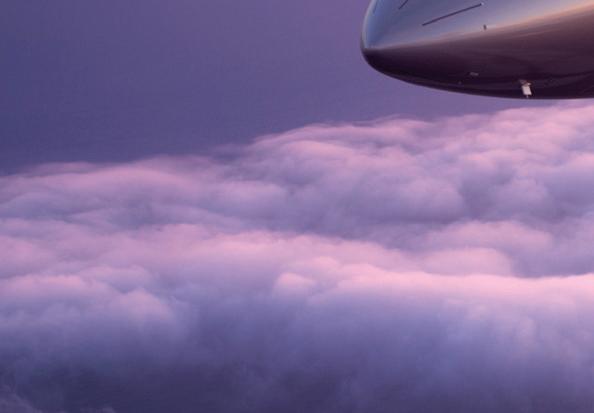




Through the app, flyers can also look at scheduled flights to their desired destination to prepare for their next trip knowing all the details before officially booking their seat.
We utilise advanced technology, data analytics, and artificial intelligence throughout our app to reduce the booking process, increase flight options and generate competitive pricing through our XO flight marketplace. The marketplace digitises and connects supply and demand for private aviation in real-time and all in one place, significantly reducing aircraft wait times from multiple days to as little as 15 minutes.
XO Marketplace’s advanced technology allows customers to view more flight options to global destinations and easily compare guaranteed pricing, ensuring a seamless customer experience.
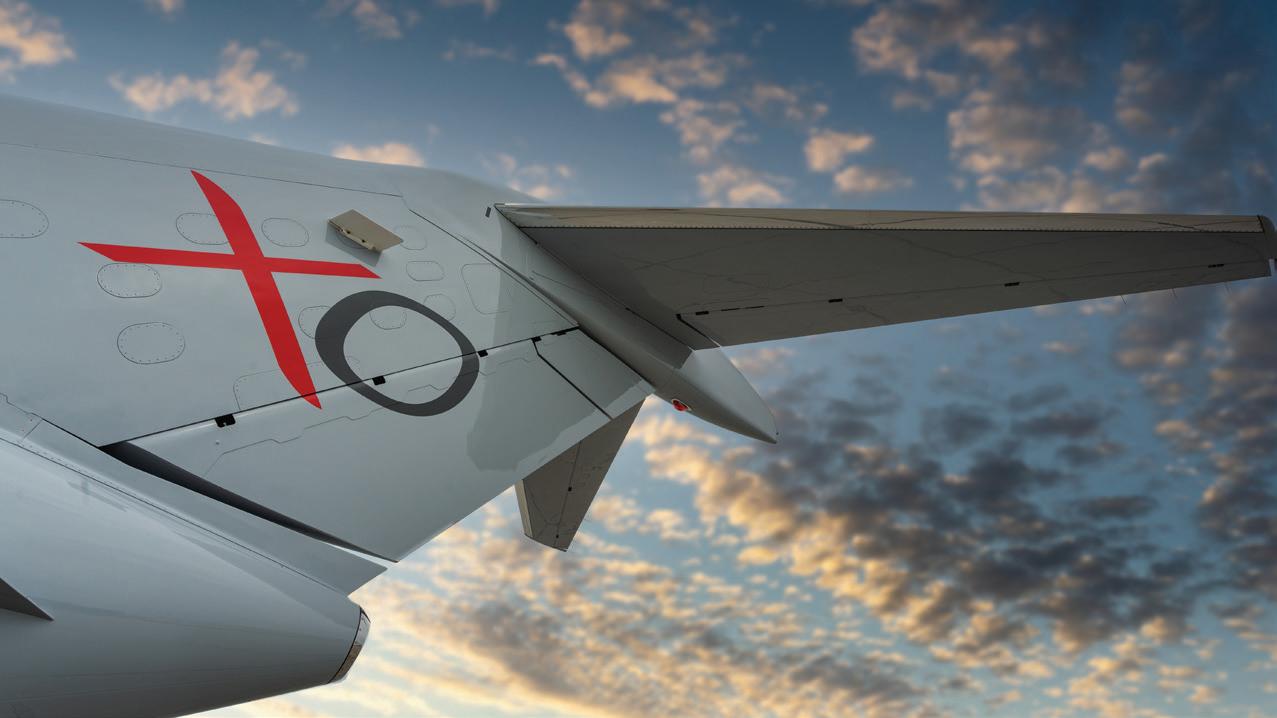

XO monitors consumer travel trends each day, informing XO’s tech engineers where new flights should be available. This feature is possible through XO’s machine learningbased pricing algorithms that scan global availability. Other private aviation groups aren’t monitoring data this closely or using it to make route decisions that change day to day.
We’re also focusing on data science and machine learning enhancements on pricing algorithms and network optimisation. When it comes to using tech and data to serve our customers, the possibilities are endless.
Q: It is particularly interesting that the app expands beyond the XO fleet to include so many other operators. What is the process of onboarding other operators? How does the audit of those operators work?
YM: XO connects clients with the safety-vetted XO Alliance Fleet of operators via XO’s revolutionary app. This provides aircraft-specific options to our clients on over 2,100 aircraft globally to enable seamless searching, quoting, and booking, extending their private flying options beyond the already robust owned and managed fleet of 200+ aircraft from Vista and XO. Each operator and aircraft in our network is handpicked from only the best operators of small and large cabin aircraft in the industry. |BAM
Each operator and aircraft in our network is handpicked from only the best operators of small and large cabin aircraft in the industry.”
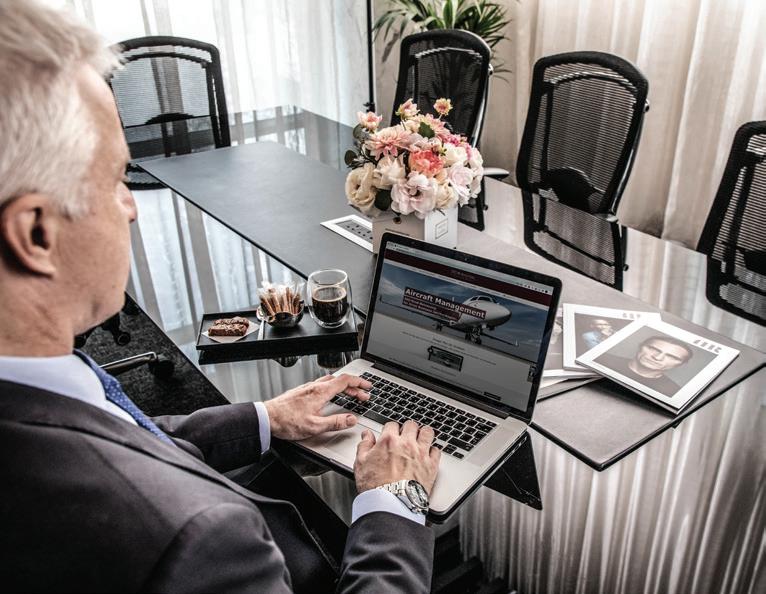








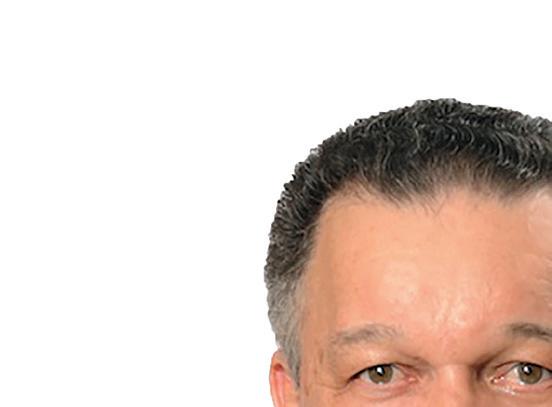

Richard Smith, Director-General of the Civil Aviation Authority of the Cayman Islands (CAACI), on the importance of recent developments in the Cayman Islands Aircraft Registry
The Cayman Islands continues to manage through the COVID-19 pandemic like other countries around the world, of special focus is the tremendous impact on the aviation industry. In response to the global pandemic the CI Government closed the borders of the jurisdiction in March 2020 and implemented restrictions on international air transport. Recently, a phased approach has been adopted to safely re-open the borders since September 2020.
The Civil Aviation Authority of the Cayman Islands (CAACI), custodian of the Cayman Islands Aircraft Registry (CIAR) was in an enviable position having previously established a bespoke electronic data management platform, VP-C Online.

This, along with business continuity provisions, allowed staff to work effectively in remote settings. This was beneficial when offices closed and public health rules prohibited office attendance, as the regulatory oversight of aircraft on the CIAR was adapted to include virtual meetings and virtual inspections reviews. Along with
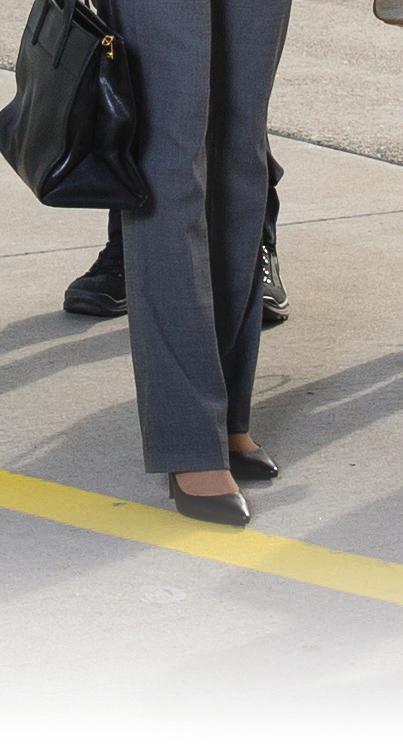

a combination of performance-based risk analysis solutions these ensured safety oversight continued.
In addition, the CAACI has a team of highly qualified and experienced inspectors based in key regions who were able to offer in-country or regional support when international travel was curtailed.

While borders remained closed, VP-C Online proved beneficial for keeping our customers up-to-date on all registration matters. VP-C Online provides a secure way to manage aircraft documents, including applications (starting with the registration application), certificates and approvals.
The system proved a convenient and secure way for registrants to apply for authorisations and certificates required for both initial aircraft registration and continuing airworthiness and operations. The ability for globally based clients to file applications 24/7 from any time zone around the world is a significant benefit.


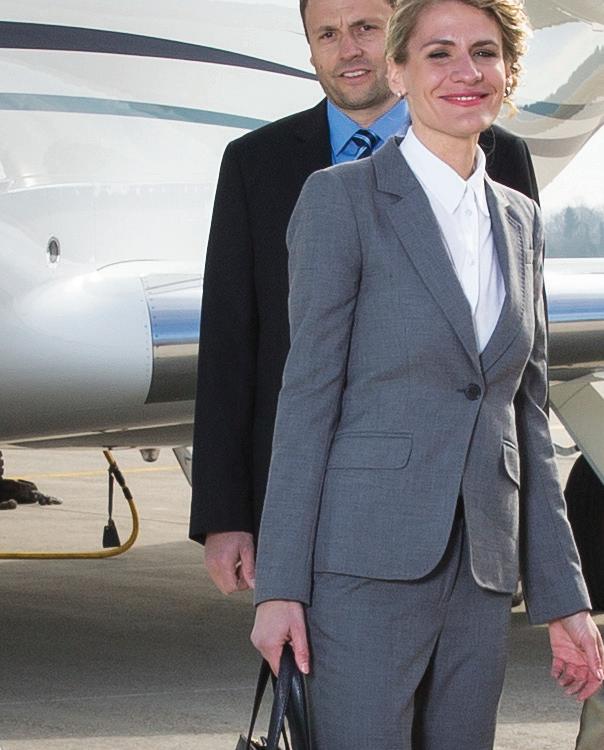


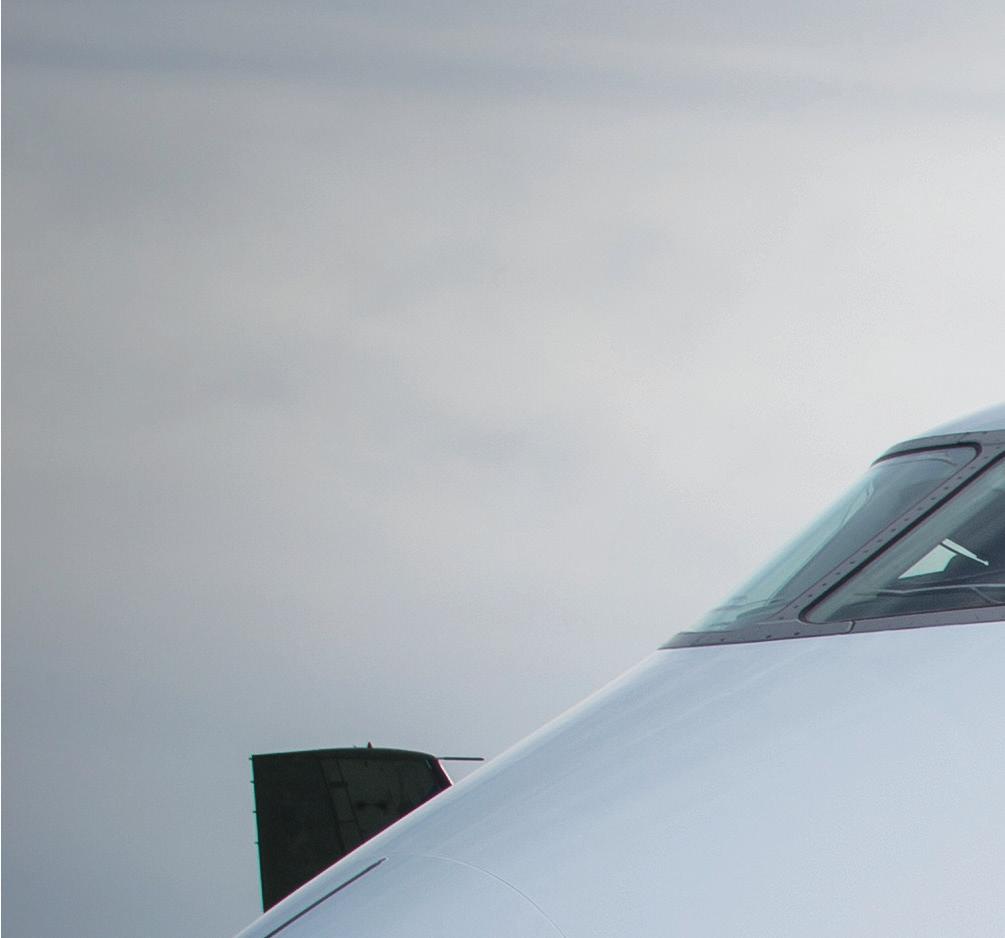
This secured portal is also a repository for all technical and supporting documentation for the registration and continuing airworthiness processes for the tenure of the aircraft on the Registry. Registrants are able to check the status of applications and re-print certificates or authorisations should the need arise.


In addition to VP-C Online, pre-COVID, the CIAR embarked on diversifying its services with the focus on a niche market of facilitating aircraft transitions for lessors and financiers. The CAACI has always recognised the importance of aircraft financiers and lessors, as many of our clients in aircraft ownership and operation depend on these financial intermediaries.

This is a valuable relationship we wish to foster through an insightful and collaborative understanding of the interdependencies of the industry. We have introduced material processes, bespoke products and refined online portals, all specifically designed to support the interests of lessors.



The CAACI is working to establish long term relationships with lessors that will provide ready solutions where aircraft registration support is required with emphasis beyond the registration process.

A new objective, within the Transition Register offering, is to delegate responsibilities to qualified Continuing Airworthiness Management Organisations (CAMOs) under the Air Navigation (Overseas Territories) Order (AN(OT)O).

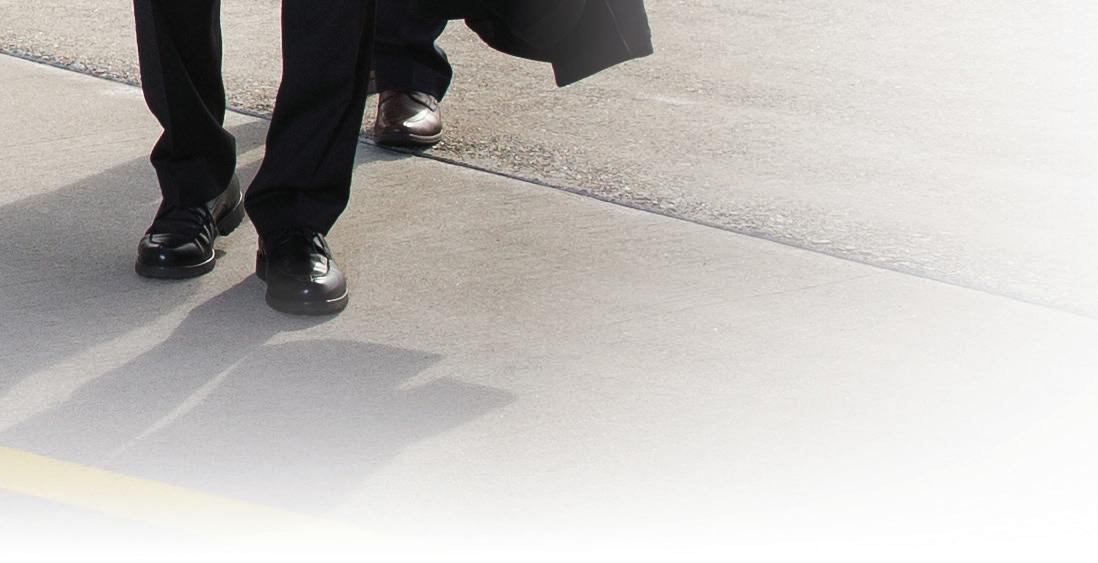
This is a significant task for the CAACI where specific oversight


arrangements in keeping within the delegation have to be established to ICAO performance-based regulation standards.


This delegation to selected CAMOs (approved for Aircraft Transition activities) provides for significant efficiencies in the relationship between the CAACI acting in regulatory oversight and the CAMO making submissions for gaining Approvals and Certificates. This proves very helpful when our inspectors are unable to travel to conduct these reviews.
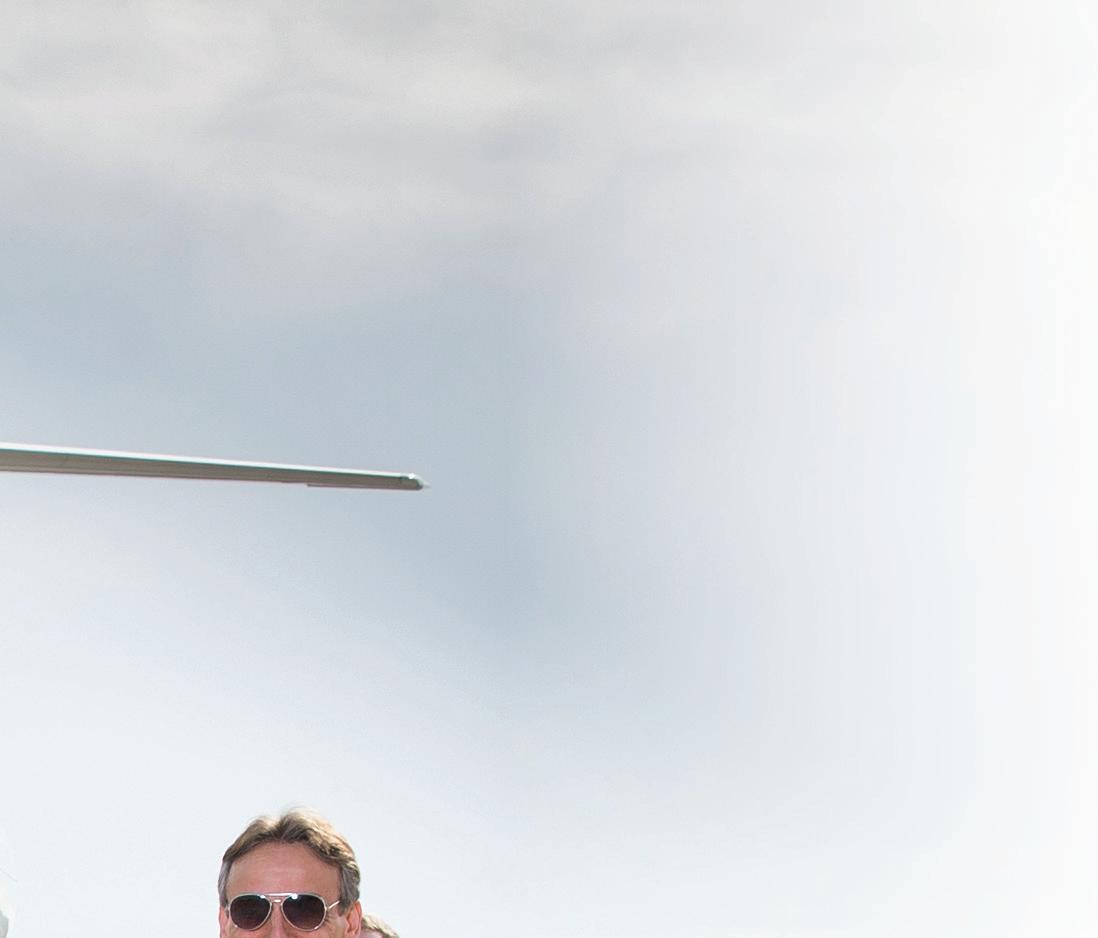
A project management system for Transition Aircraft was established for close coordination between all involved. Regular liaison meetings are arranged to ensure the Transition project remains active during the aircraft’s registry in the Cayman Islands and is commensurate with the status of the Lessors operational objective. In addition, VP-C Online now includes a Lessor Module whereby a lessor can apply for a VP-C Online account for visibility to the aircraft managed.
This focus on quality service, and flexibility positions the CAACI and the CIAR to continue to distinguish the Cayman Islands’ aviation regulatory and registration offerings from others. The CIAR remains committed to offering a personal, responsive and high-quality service to clients and partners and to finding innovative and efficient solutions to the needs of those they serve.

|

BAM

Jay McGrath, CEO, Spectrum Networks, on the revolutionary new communications system, Laser based LiFi and its implications for business aviation
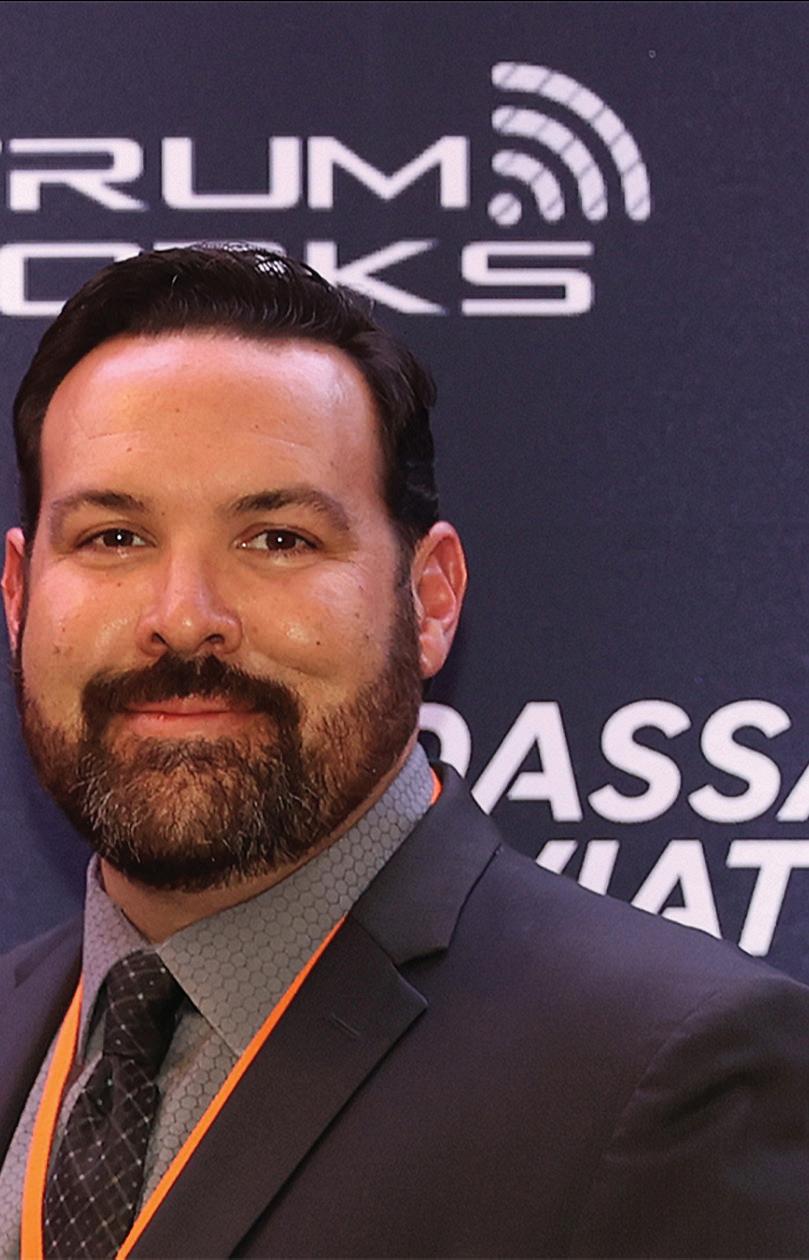

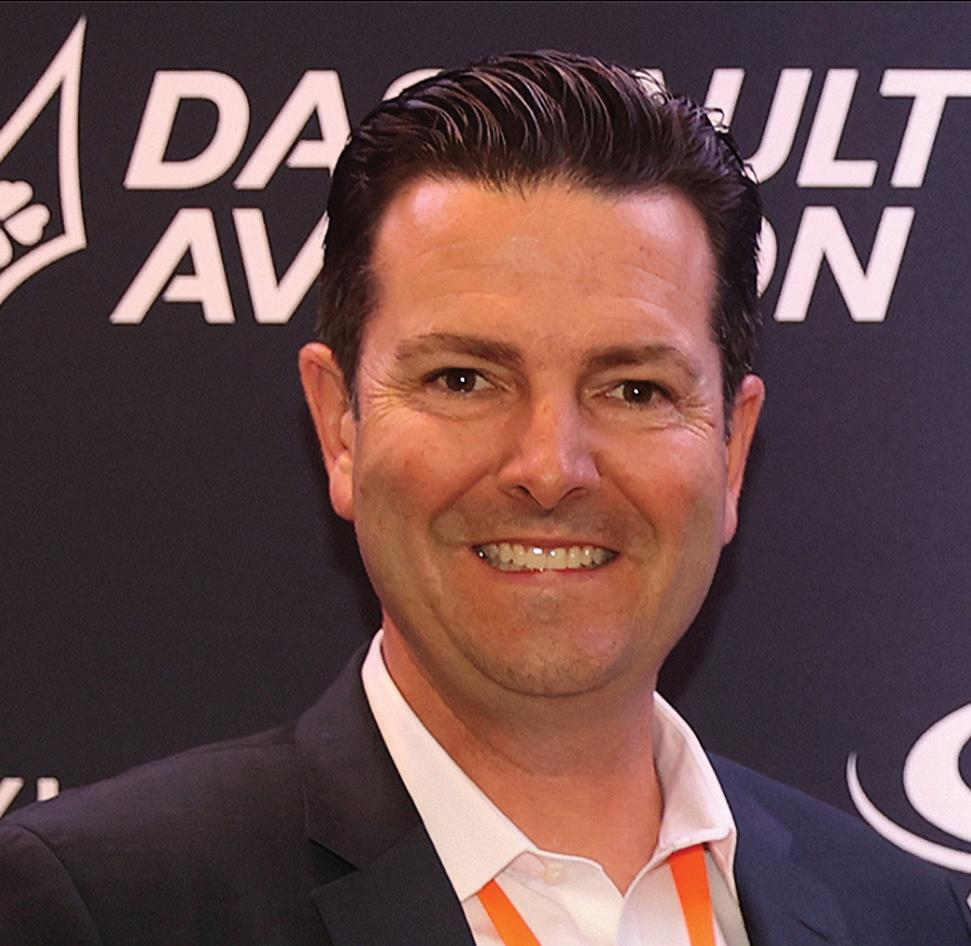
Q: Jay, what is LiFi and why is it so potentially revolutionary for business aviation?

JM: As I told delegates at the recent CJI Conference in London, LiFi is all about sending data to devices by modulating a light source millions of times, imperceivable to the human eye.
LiFi offers game-changing security, throughput, and speed for wireless communications within a business aircraft cabin. The light spectrum is nearly 10,000 times that of radio frequency (RF), where WiFi resides, and the speed is up to 100 greater as well. LiFi is positioned to handle the explosive growth of the internet-of-things (IoT) and smart devices within the cabin, streaming uncompressed 4K and 8K content while another passenger conducts a video conference call.
The principle is the same as you would get in a fibre optic cable where light is pulsed down the cable. However, with LiFi there are no wires. Sensors can be built into monitors, touchscreens, and other devices that decode the signal and provide the means to finally enable a truly wireless cabin.
An ordinary LED light has proven to achieve 5 to10 times the bandwidth you could get from even a very good WiFi
connection. However, if you use a laser diode as the source, instead of an LED light, then you will have a wireless connection that is multiple Gbps, per light. And that is additive, meaning that an aircraft with 20 lights can exceed a total cabin LAN throughput of over 40Gbps, far exceeding what the best conventional WiFi can offer, today or tomorrow.
Q: What is the origin of LiFi? How long has it been around?
JM: LiFi was invented a little over a decade ago, by Professor Harald Haas. He is the Chair of Mobile Communications at the University of Edinburgh and is a member of the UltraParallel Visible Light Communications Project. He is also Special Advisor to Kyocera SLD, our strategic technology partner, on laser LiFi developments.
Professor Haas’s group has shown that by replacing LED lights with a laser-based light source, you can massively increase data throughput while creating a very high-quality white light. You can utilize wavelengths in both the visible and invisible spectrum, with each wavelength a separate channel for data. This is the same kind of multiplexing technique that allows optical telecommunications to carry hundreds of gigabits of data.

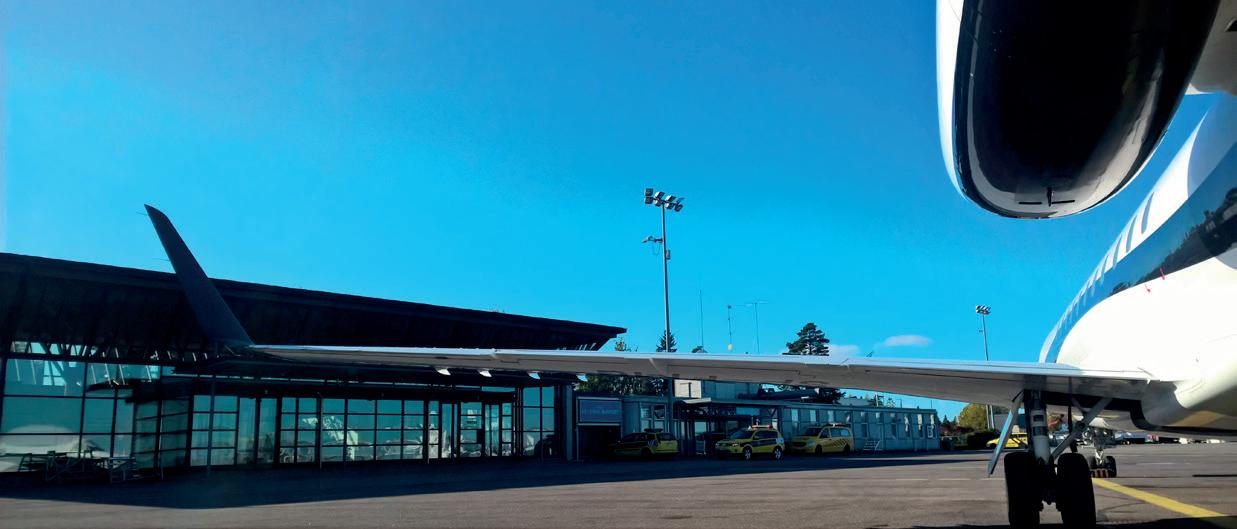
Another key point is that LiFi uses the same communication standards and protocols as WiFi, the only difference being the physical layer which is how the data is delivered. So the two systems are completely compatible and can even coexist. This is really important for business aviation since LiFi can be installed as an add on.
JM: Perhaps more critical to the assets that utilize private aircraft, LiFi has security built in, making it an ideal means of wireless communication. This is because LiFi has absolutely no RF signature making it virtually impossible to hack, nor will it interfere with sensitive electronics in the aircraft as LiFi does not emit EMI.
It cannot radiate through bulkhead walls or off the aircraft; you physically have to be in the presense of the light, visible or infrared, in order to access the signal. This means that in a hotel, for example, you could literally have a large number of absolutely secure Li-Fi ‘zones’ and none of the zones would have any visibility as to what was happening in any of the other zones.

Q: How does this fit with Spectrum Networks’ other offering, which is using special UVC light to provide continuous protection against bacteria and viruses?
JM: The power of light goes beyond just LiFi. We are also developing a FAR-UVC solution that can be installed separately, or with a laser diode so operators can have the whole package in the same light fixture. Normal UVC light is bad for the skin and the eyes. However, FAR-UVC operates at the 222-nanometre wavelength range, offering the ability to continuously sanitise the air and surfaces, killing all pathogens but it is not strong enough to penetrate skin or to get past the tear layer in the human eye. So, it is tremendous for business aviation.
Q: What are the main barriers to the adoption of Li-Fi in business aviation?



JM: Look, there is a significant market education effort that is needed as the majority of folks are not familiar with the ability to wirelessly transmit data over light. But with each operator, MRO, and OEM contact, we are getting tremendous interest. We have also begun collaboration with major cabin technology providers, including signed letters of intent, as they evaluate how the integration of LiFi can enable their next gen roadmaps.
We also know that cabin technology is a discretionary investment and will typically only be considered as part of scheduled maintenance downtime. That continues to be a major consideration in the development of both our LiFi and FAR UVC solutions; thoughtfully designing it to be easily integrated with minimal, if any, impact to an aircraft’s interior or even most aggressive scheduled downtime.
It is important to note that LiFi technology is finally a point where it’s just starting to go mainstream and take centre stage. The “line of sight” or “point to point” shortcomings of LED based LiFi systems of the past can finally be overcome using laser based LiFi technology. We now have the ability to “flood” an entire space with ultra-high-speed connectivity and create a user experience similar to WiFi, except much faster and more secure.


In 2016, seeing the potential that LiFi has, Apple put LiFi support into all their iPhones, some 1,272 billion devices. And Android is now doing the same, including the incorporation of native LiFi apps. Based on this and the proliferation of IoT, we don’t consider LiFi a matter of “if,” but rather “when.”
The future looks very promising. |BAM
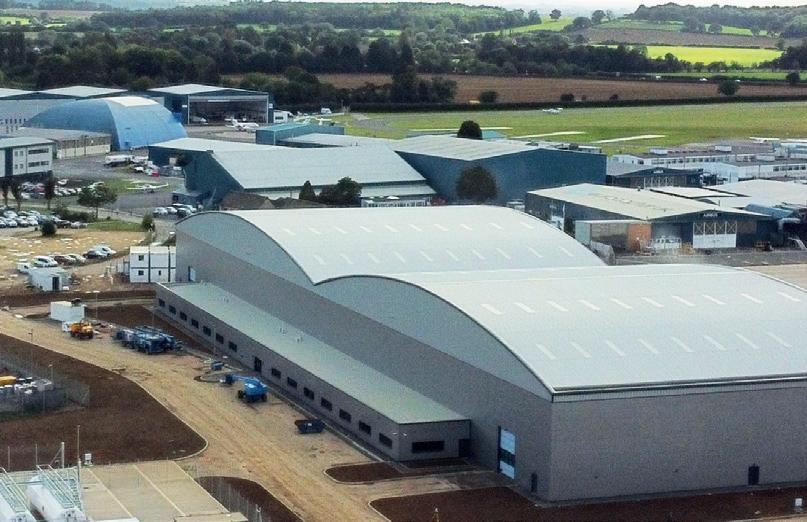


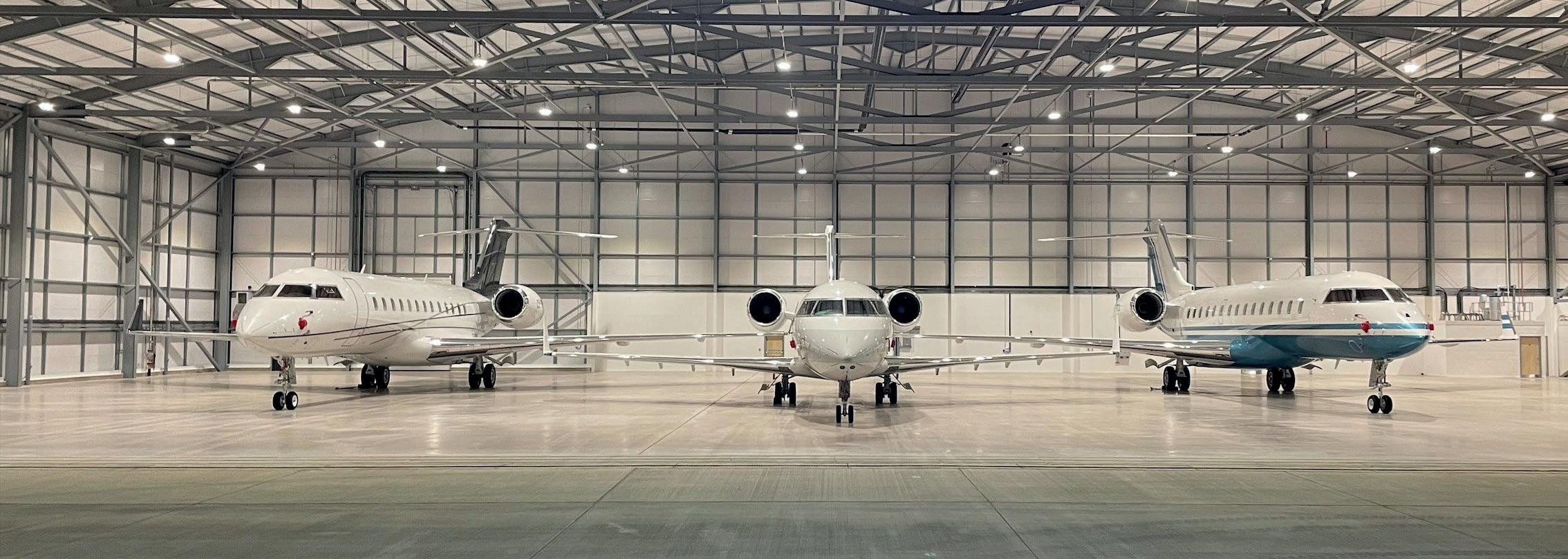



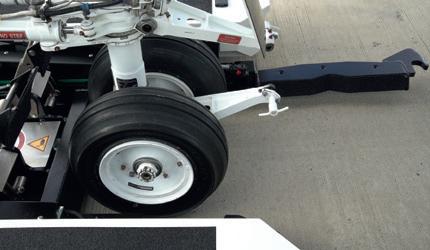










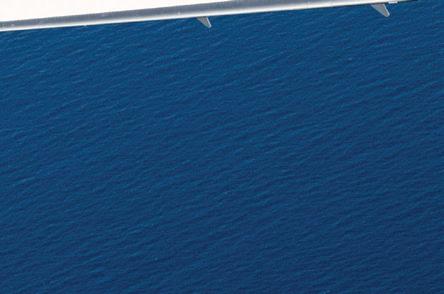


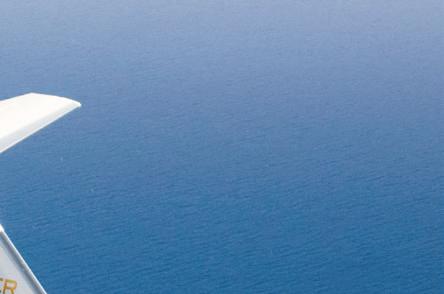 By Anthony Harrington
By Anthony Harrington
JI London 2022, held once again at the iconic Landmark Hotel, was another triumph for Alasdair and Louisa Whyte and the CJI team. The attendance was terrific and the speakers and panels were drawn from the best in the industry.
This is not an attempt to provide a thumbnail sketch of everything that went on. It was all good. These are simply some of the key standout moments.
Bart Demosky, CFO at Bombardier, headed up the morning session on the first day. He began by addressing the conflict in Ukraine, stating that Bombardier is supporting the humanitarian efforts to help the beleaguered Ukrainian citizenry with a $150,000 donation, made jointly with the J. Armand Bombardier Foundation, to the Canadian Red Cross.
Demosky pointed out that right at this moment absolutely no one knows how Russia’s assault on the Ukraine will end or what its impact on the global economy will be. “We all need to take a breath and pause,” he counselled, while we see how things go.

Bombardier will be complying in all respects with the sanctions against Russia and Russian oligarchs, as, doubtless, will other OEMs and companies in business aviation, he said.

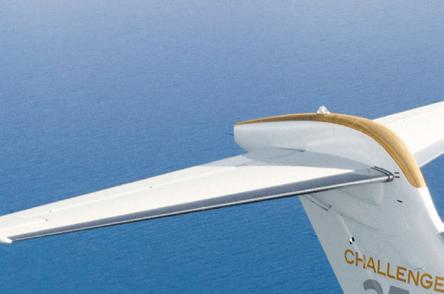
Having dealt with the bad news, Demosky turned to the good news. He pointed out that everyone in the industry is aware of the tremendous increase in flight hours over the last year.






“We set all time records as Bombardier, and everyone else’s flight hours are also up,” he noted.




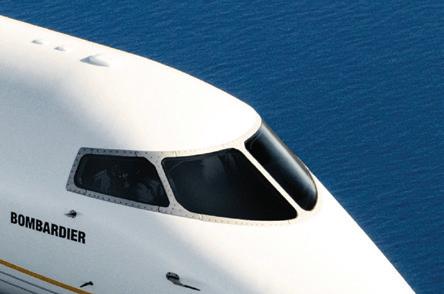
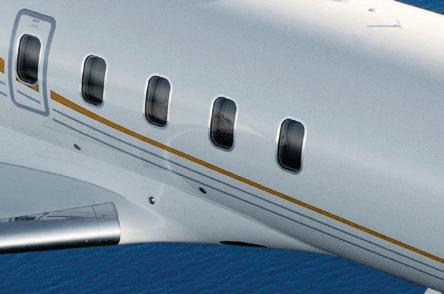

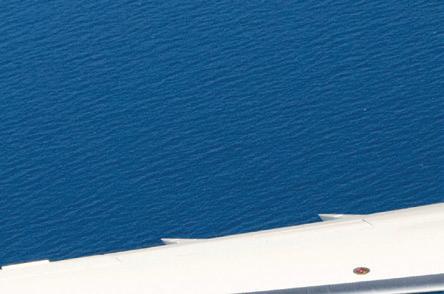

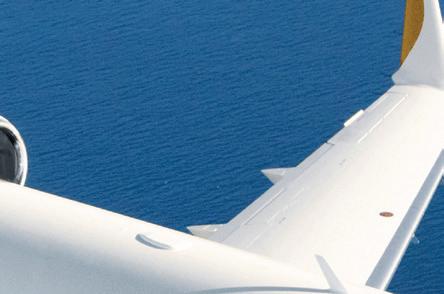





Flight hours are up 30% over January 2021, which bodes well for the industry. The fleet operators Bombardier talks to are all saying that they are setting new records and that business is stronger than at any time in the past. “They are seeing growth that ranges from 40% to 60%,” he commented,
The demographic for HNW individuals is also at an all-time high, with some 600,000 individuals now having a net worth of $30 million or better.
“They have the means to fly privately for the rest of their lives. This is a very under-penetrated market, with single digit penetration,” he said. Looking ahead, the market could easily see 100% growth over the next decade.
Spectrum Networks’ Jay McGrath introduced delegates to the concept of LiFi, a light-based, ultra-secure way of distributing data inside a business jet cabin. See the feature in this issue for Jay’s take on the revolutionary potential of LiFi.

Nel Stubbs, VP at the JSSI company, Conklin and de Decker, helped to educate delegates on the tax complexities of bringing European registered aircraft into the US for sale. She pointed out that the first point that anyone involved in this kind of transaction needs to grasp is that all 50 States have their own unique tax laws.
“Just because you have successfully brought a European aircraft into Texas for a buyer there, don’t assume that the tax side of things will be the same if you have a similar transaction to do in Florida,” she warned.
All 50 states pose their own risks for the unwary buyer or seller. States like California and Illinois can be really aggressive when it comes to piling on the taxes on a European aircraft sale into their state. At the same time, there are states like Montana, Alaska, Massachusetts, Rhode Island and New York that impose no tax at all on a biz jet sale.
Another thing to be wary of, she pointed out, was that even where there are no taxes on the sale, a state like Connecticut or New Jersey will probably try to impose a ‘doing business in the state’ tax if you are selling several jets to buyers in their state.
There were a number of very lively panel discussions. To single out one, Embraer Chief Commercial Officer Stephen Friedrich was the moderator on the ‘New Aircraft Management Market’ panel. He reminded delegates that OEM backlogs are currently at an all-time high.
“We have 18-to-24-month backlogs on our models as do all the OEMs,” he noted. At the same time, there has been a significant increase in the size of the market and in market demand, with first-time-buyers coming into the market and existing owners expanding their fleets, while smaller operators are moving into multi-aircraft operations.
There are new dynamics in the market and the increased demand is global, rather than being a feature of any one market, he commented.
“We knew the North American market would be great but we have been surprised by a real resurgence in the European and Eastern European markets,” he commented.
There have also been changing buying patterns in the Australasian market. The paucity of pre-owned models has led a number of buyers to change their habits and go into the new aircraft market.
So, what do buyers need from aircraft management companies and what are the implications for infrastructure in the industry. Product support is vital as we navigate this new demand. “We want customers to have a positive experience and to stay in this market,” he warned. |BAM

